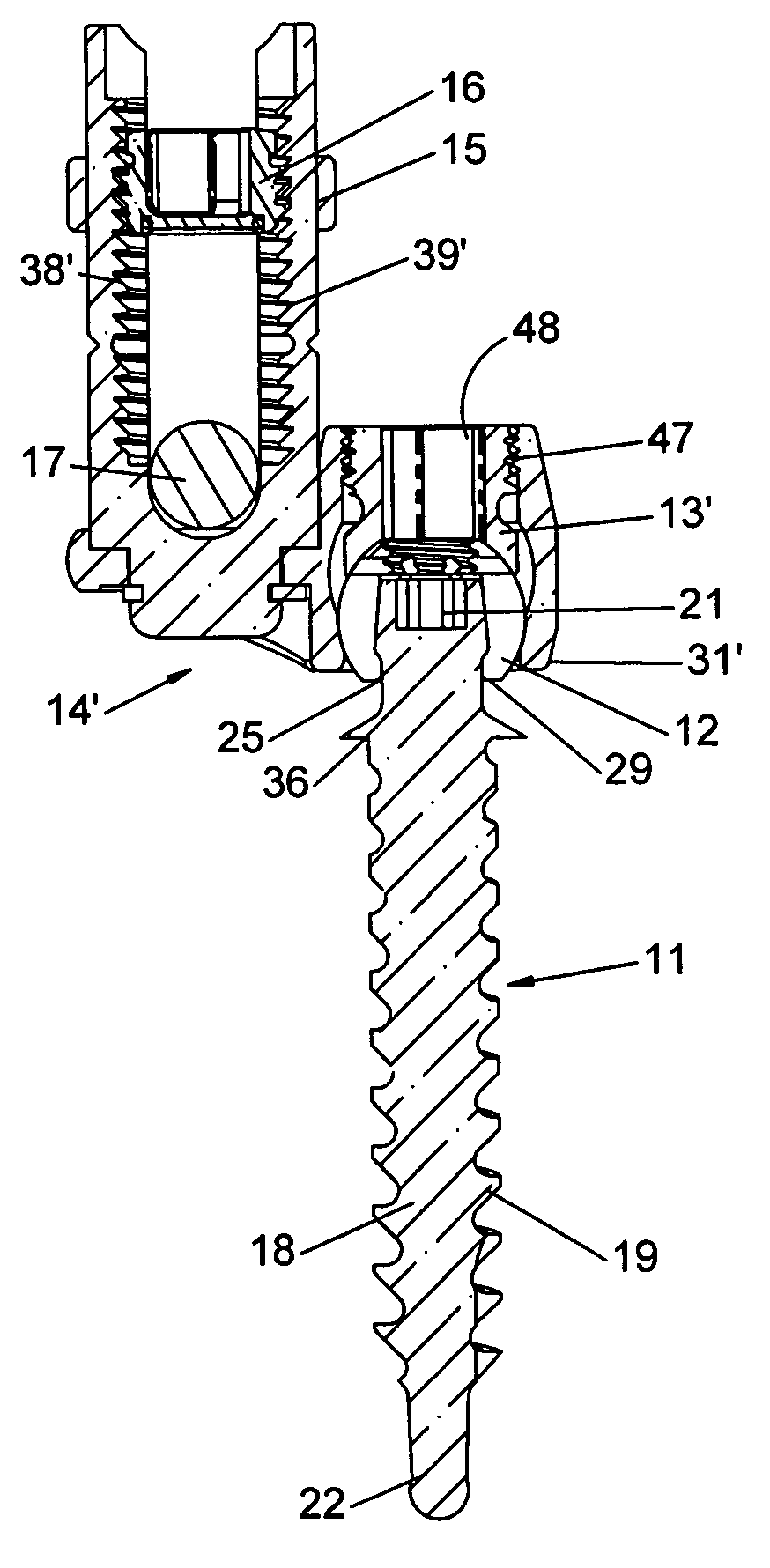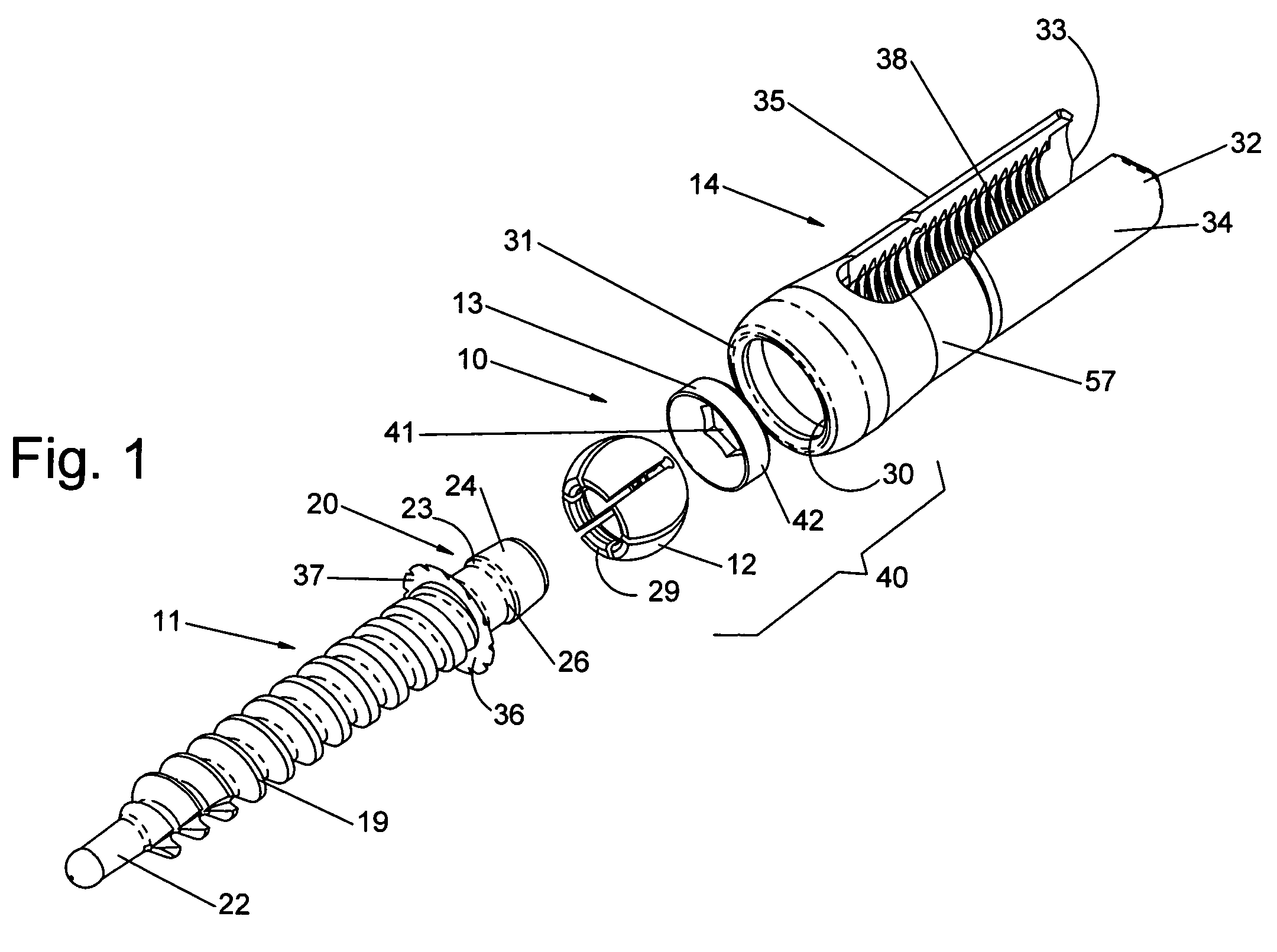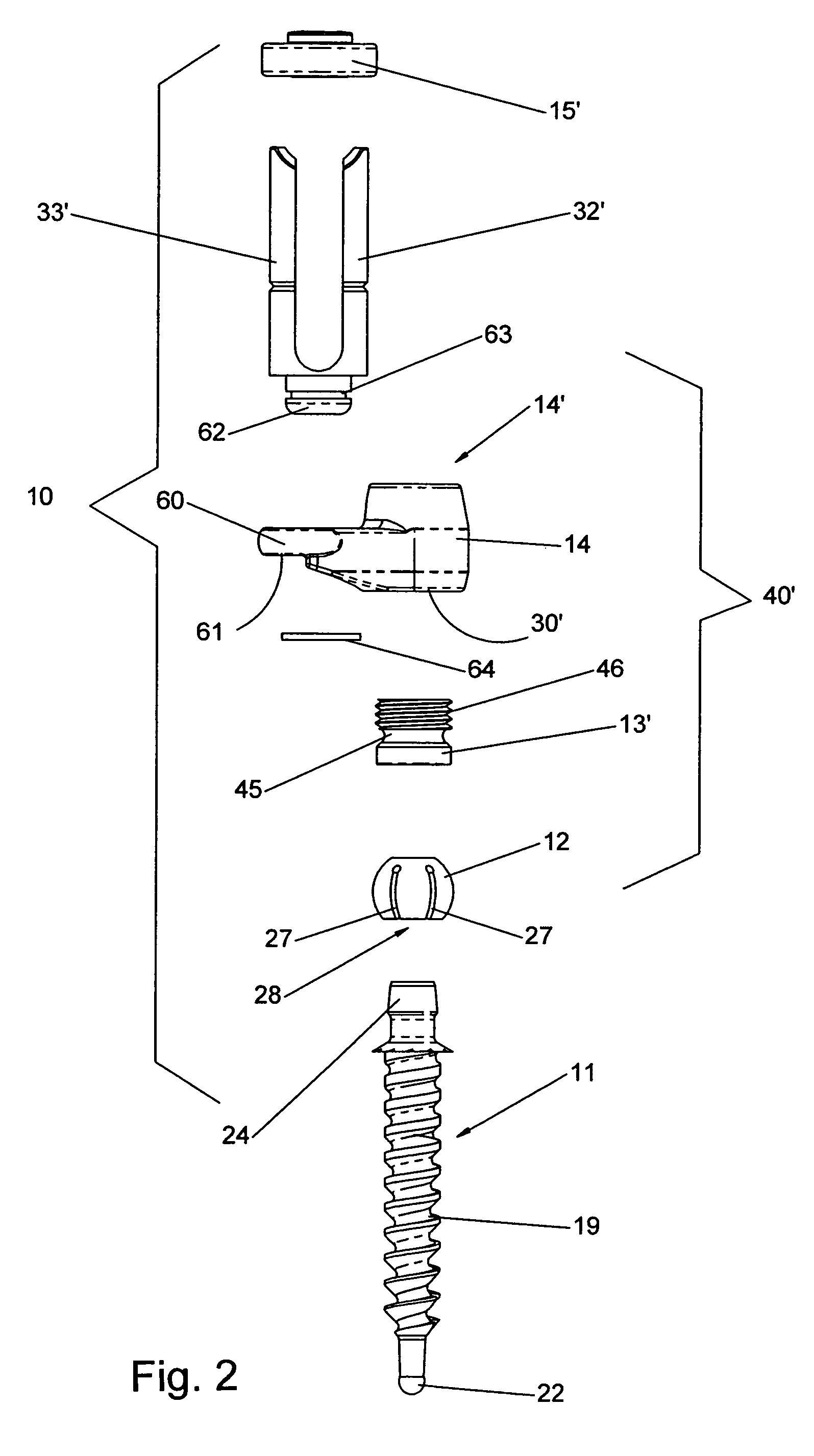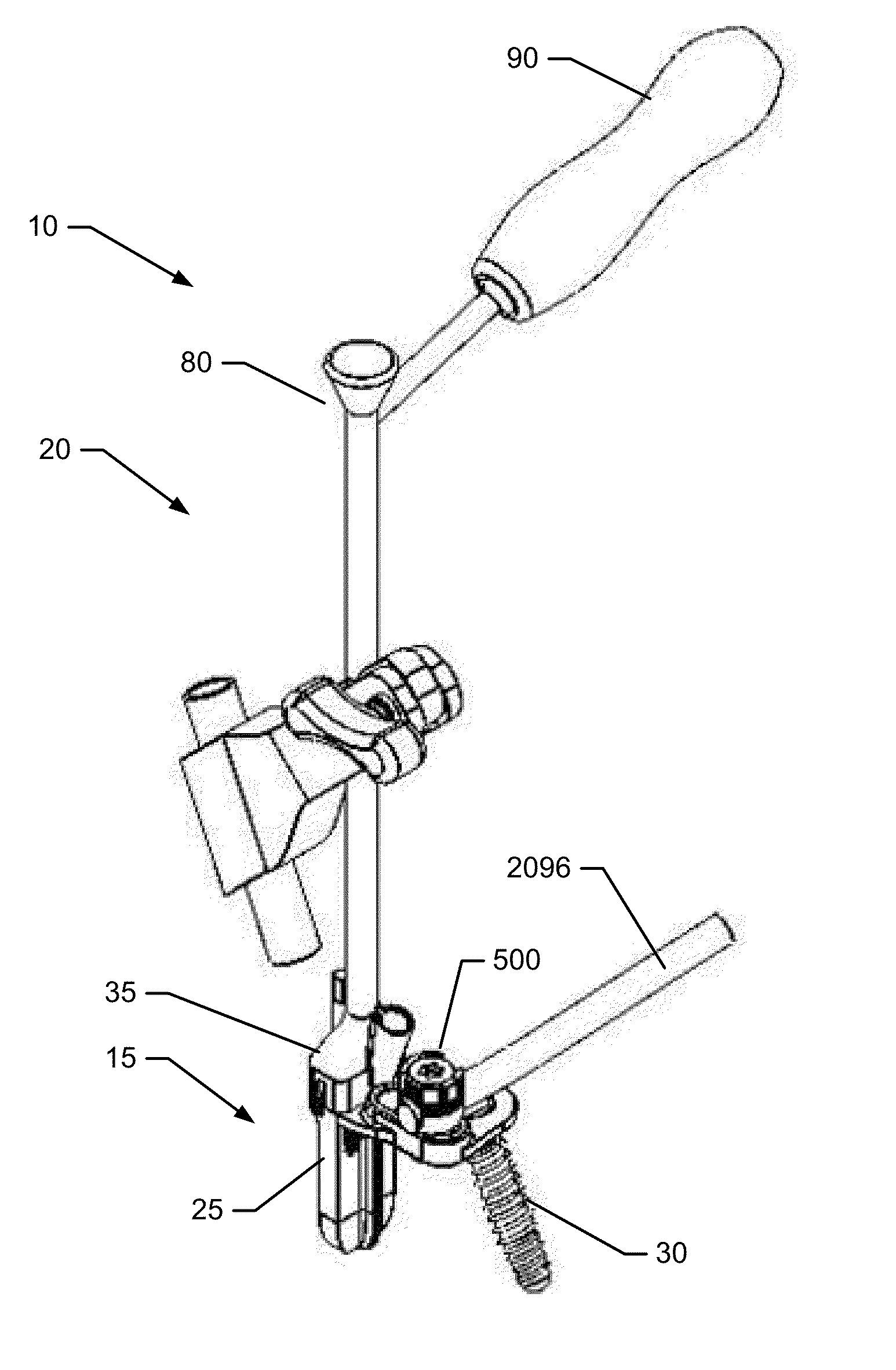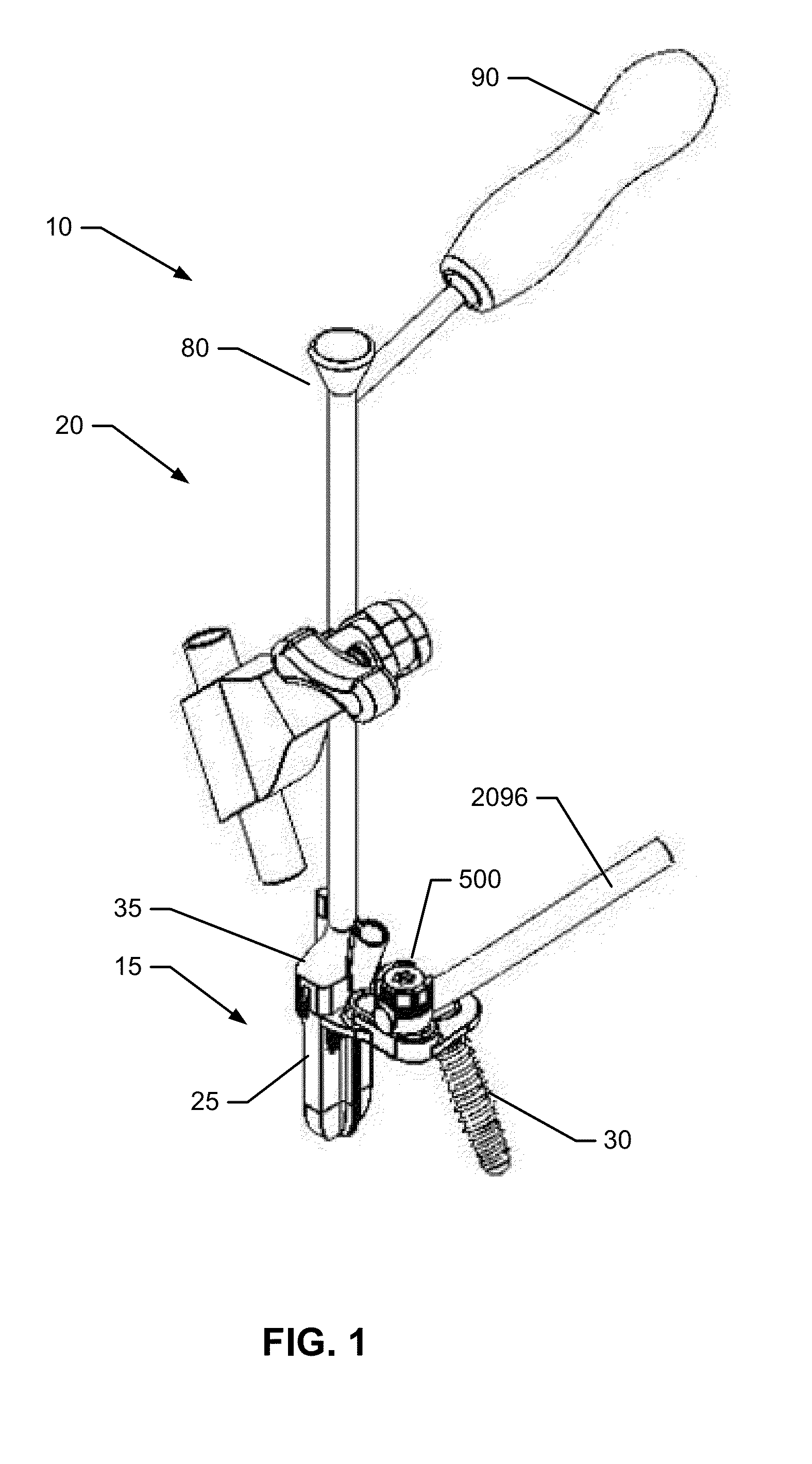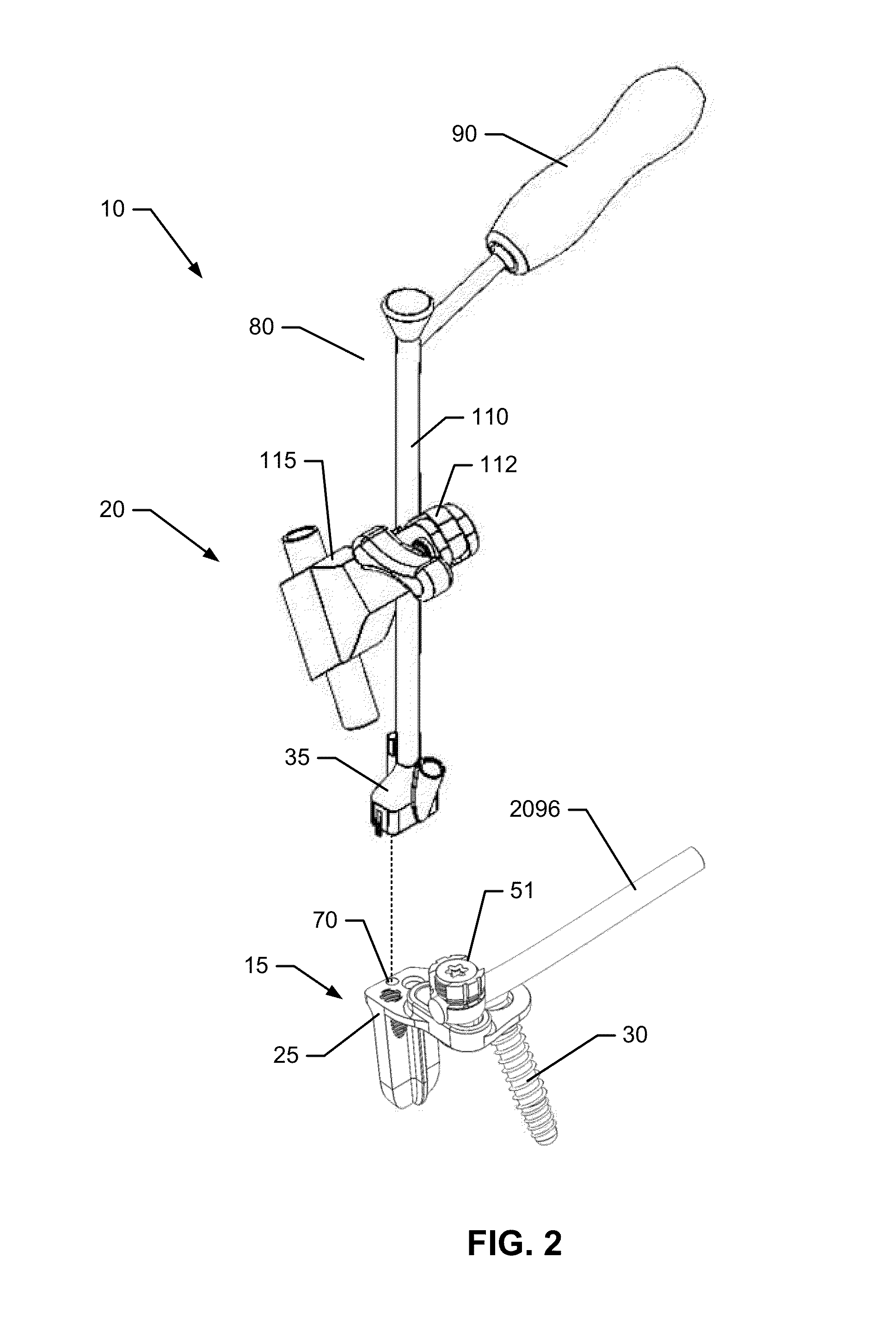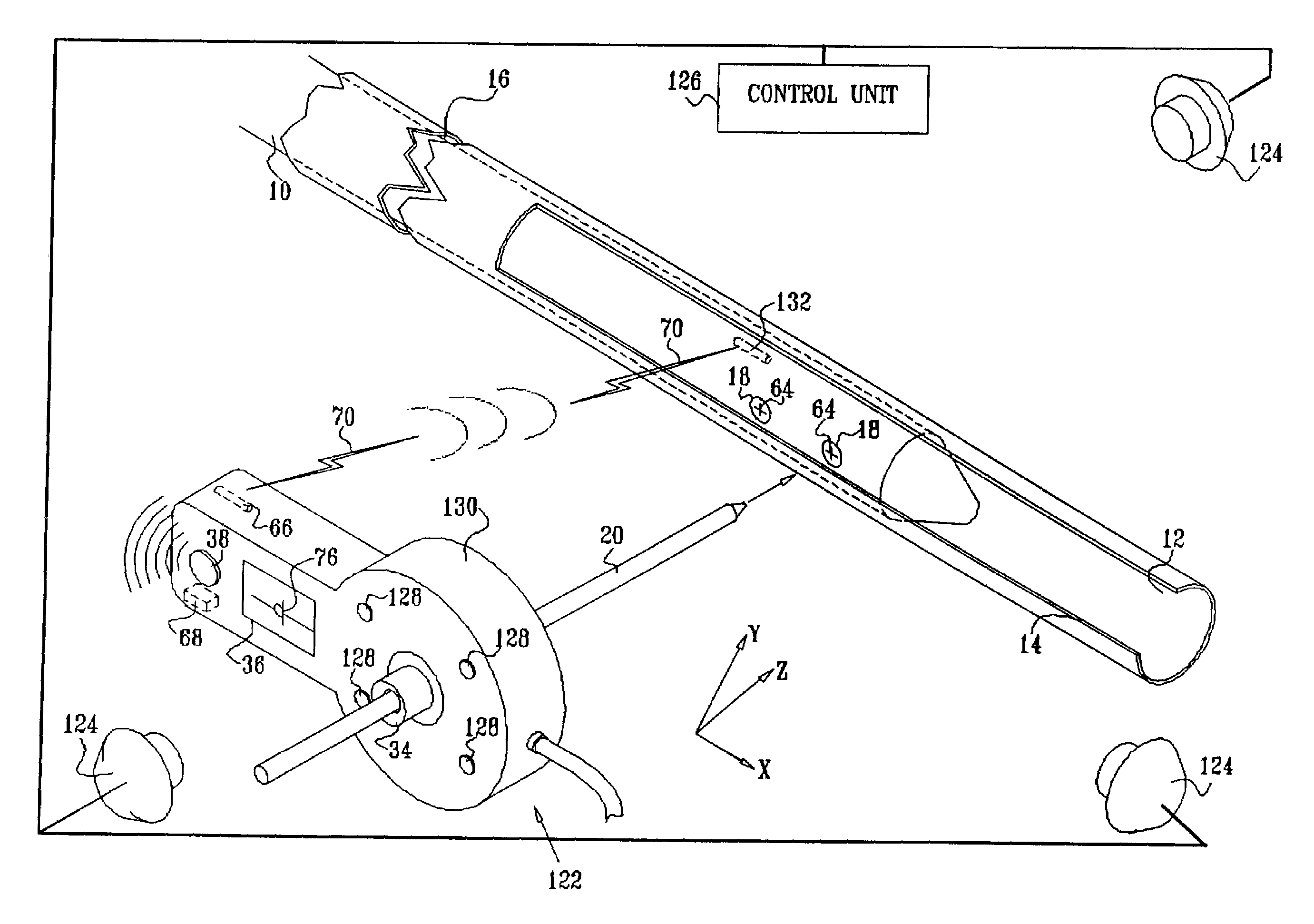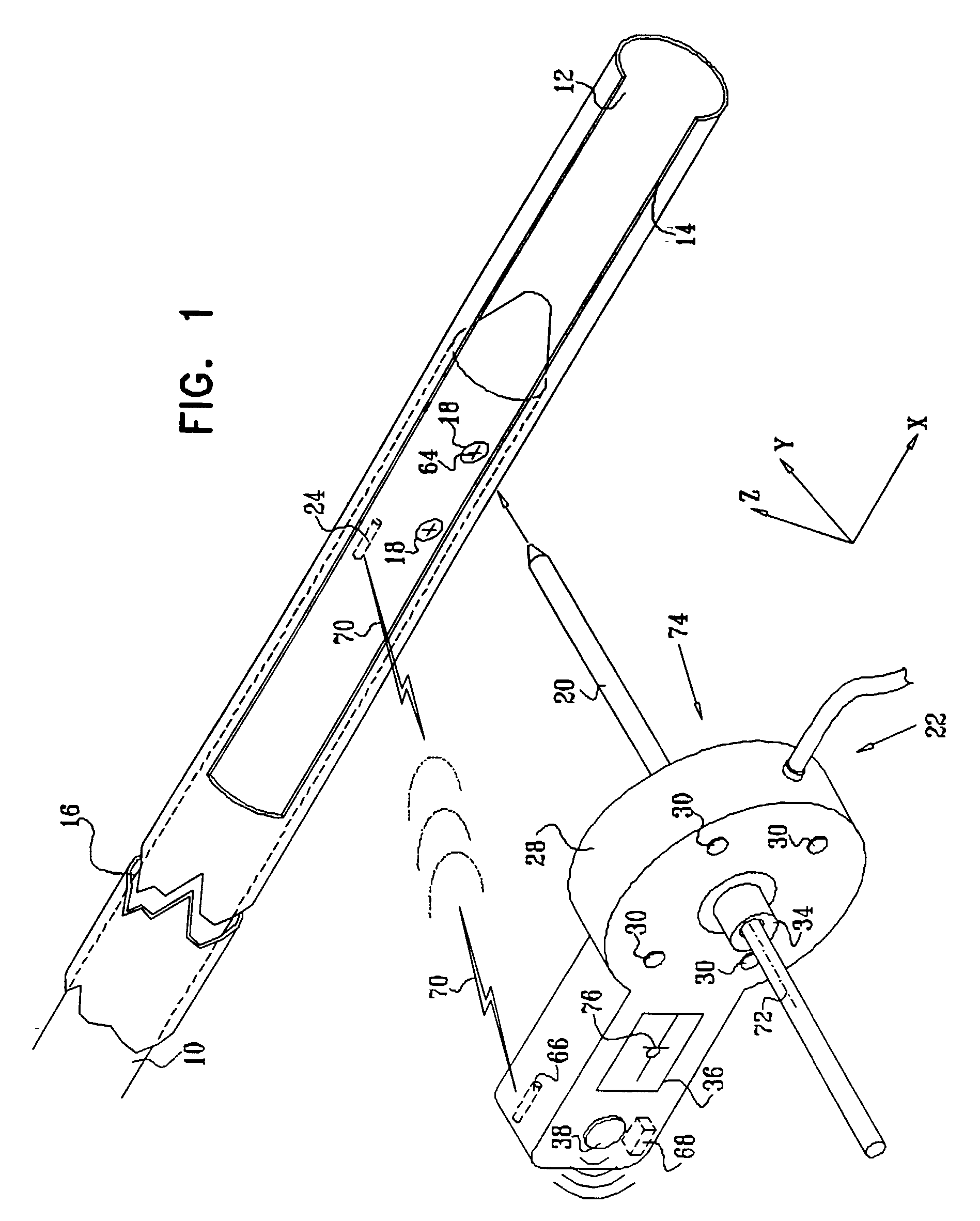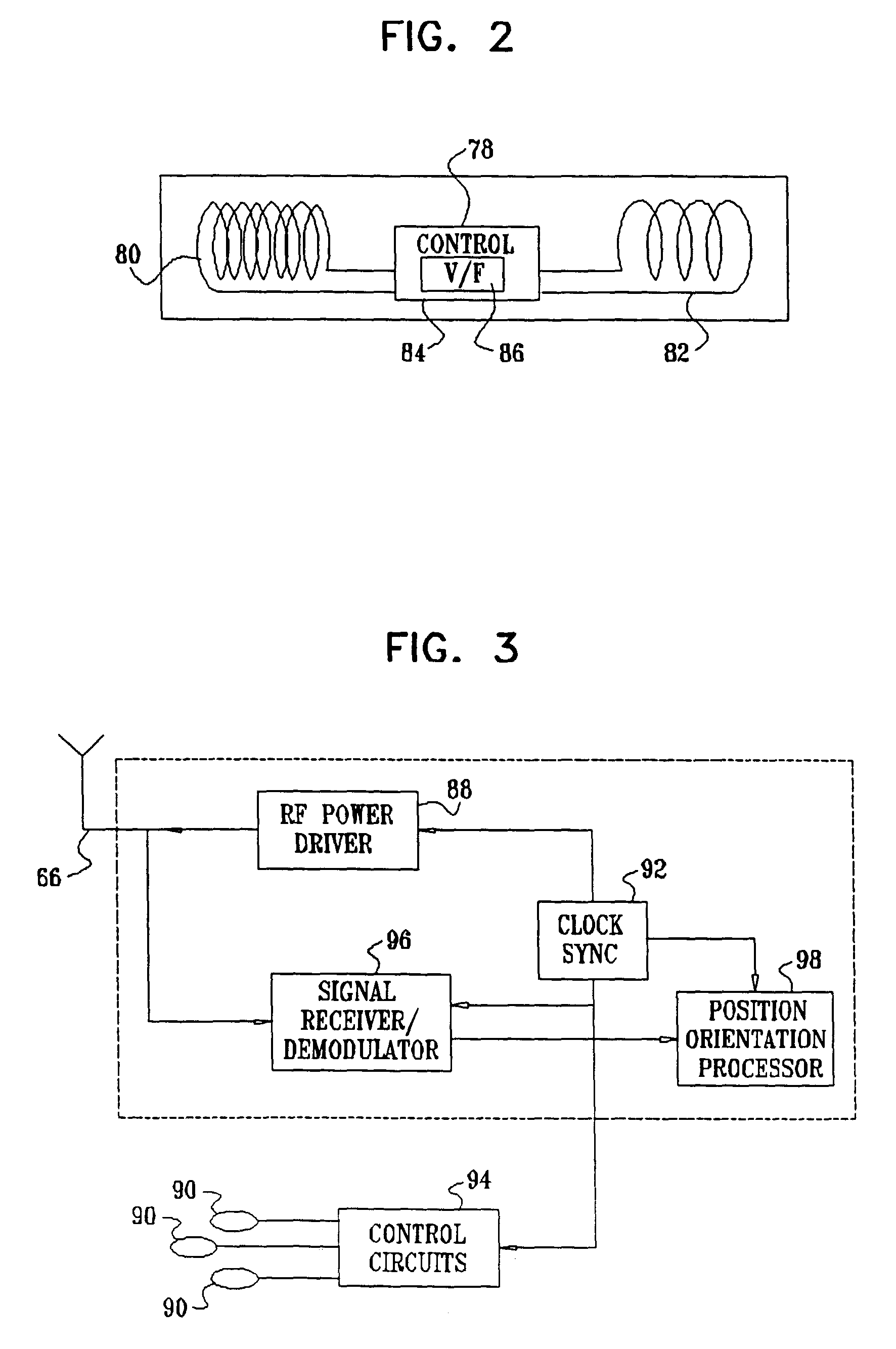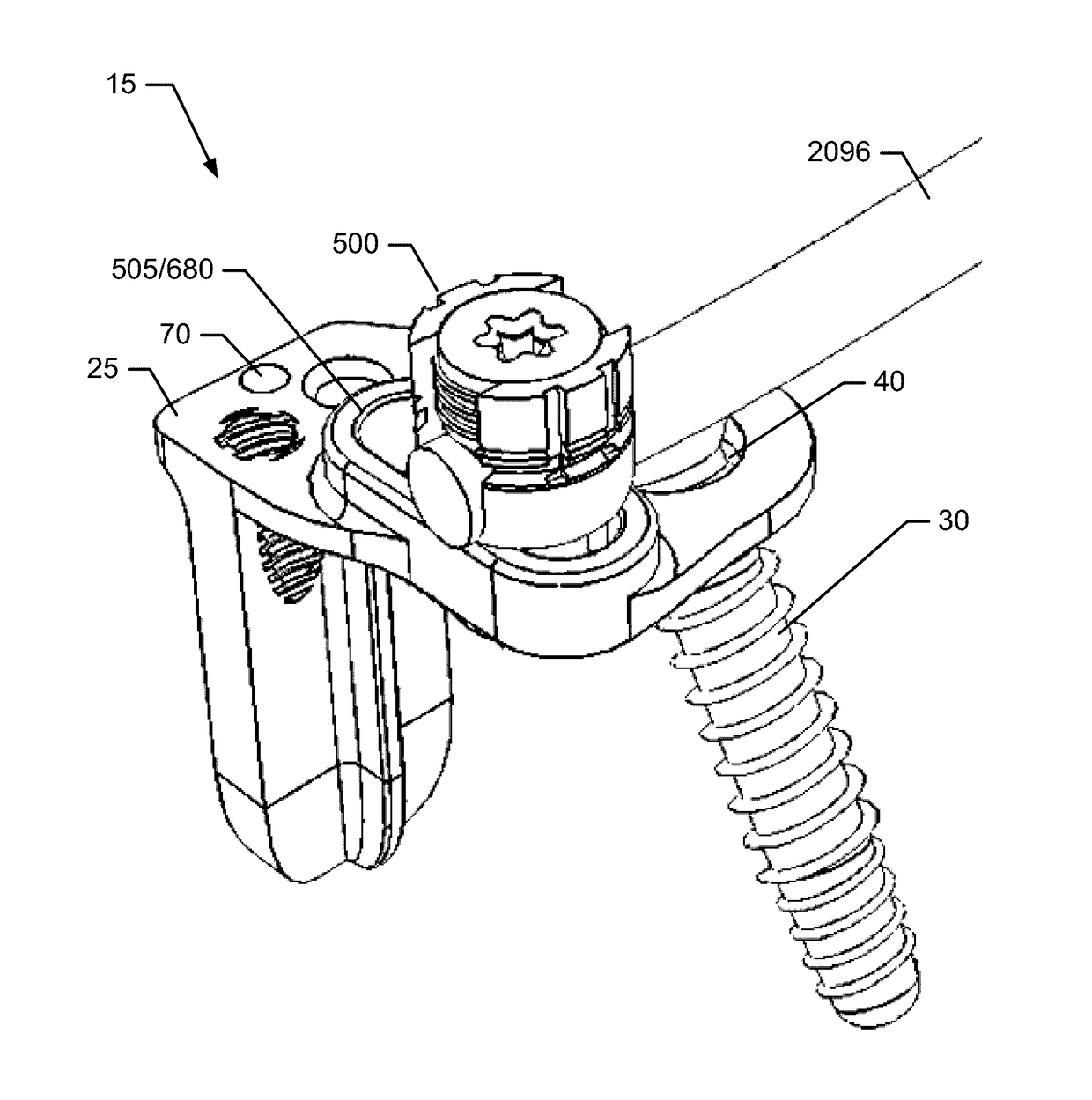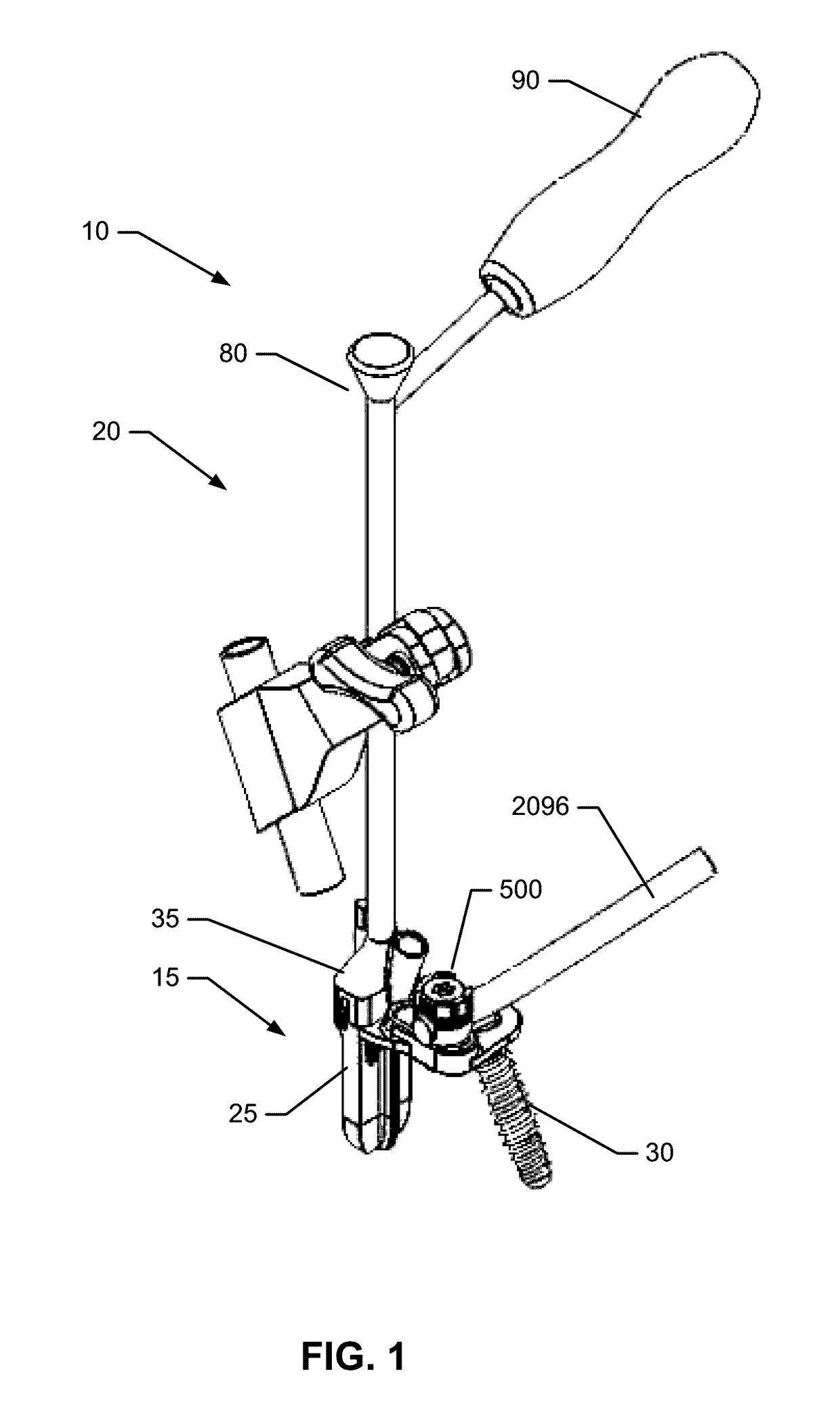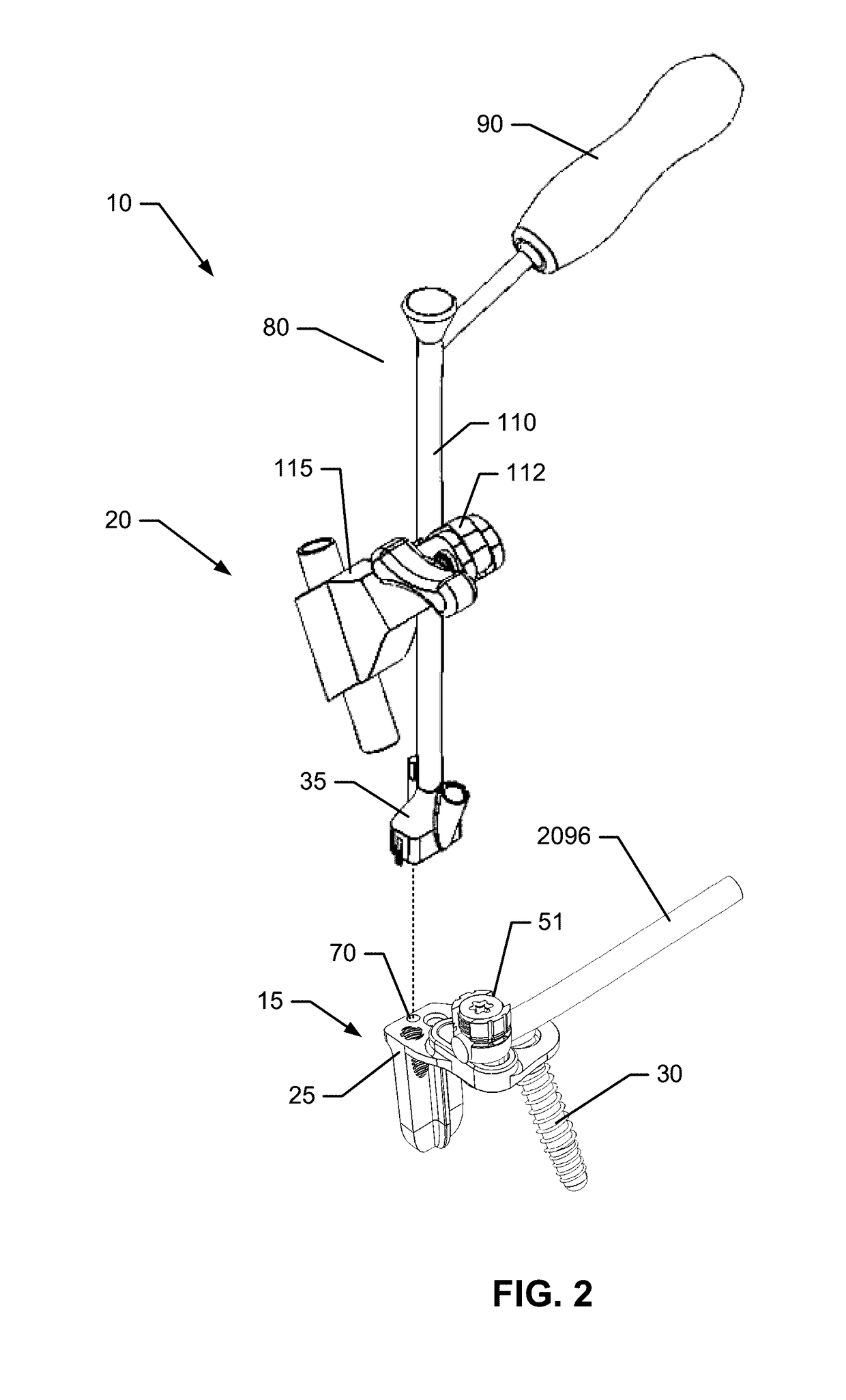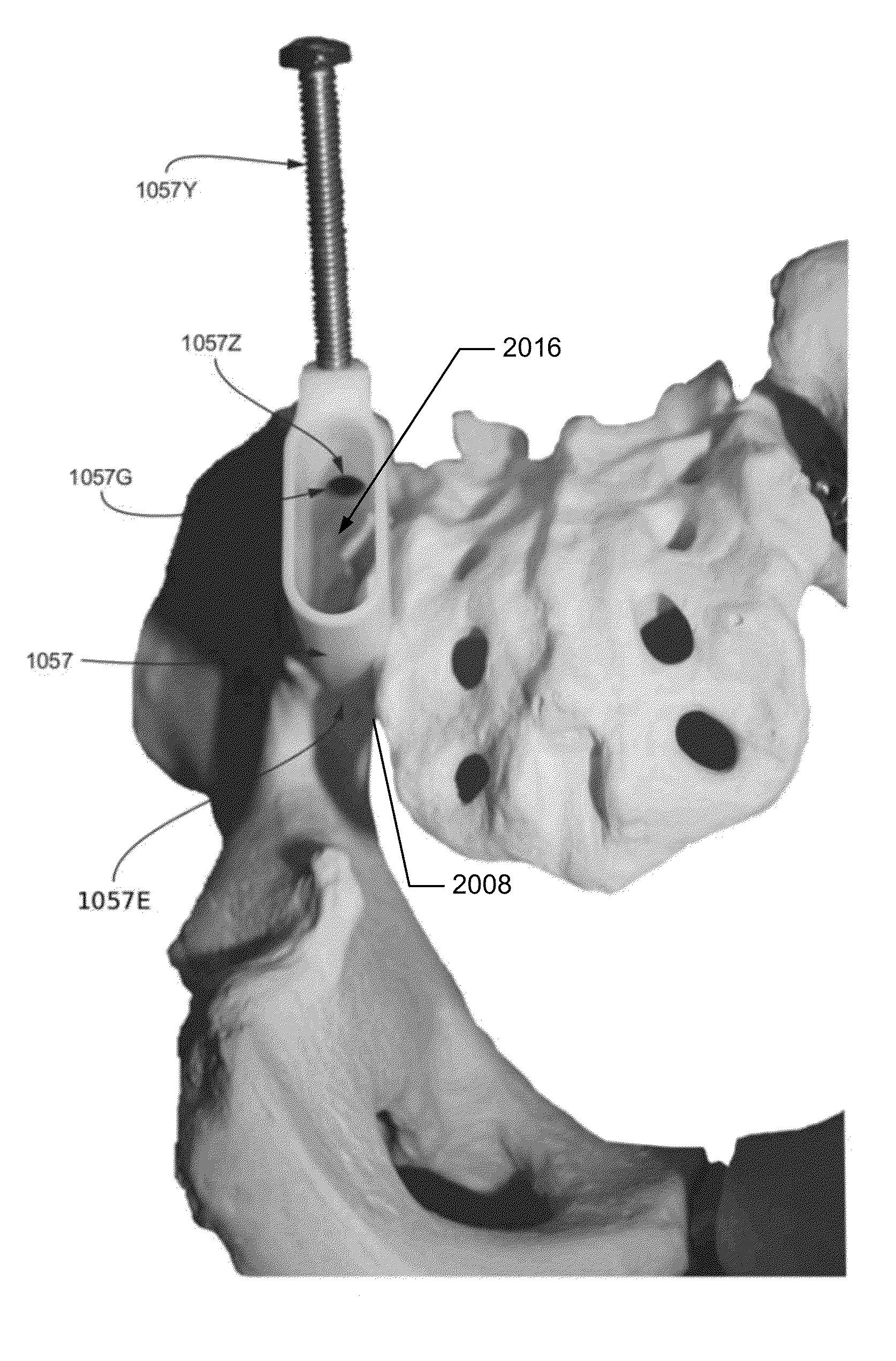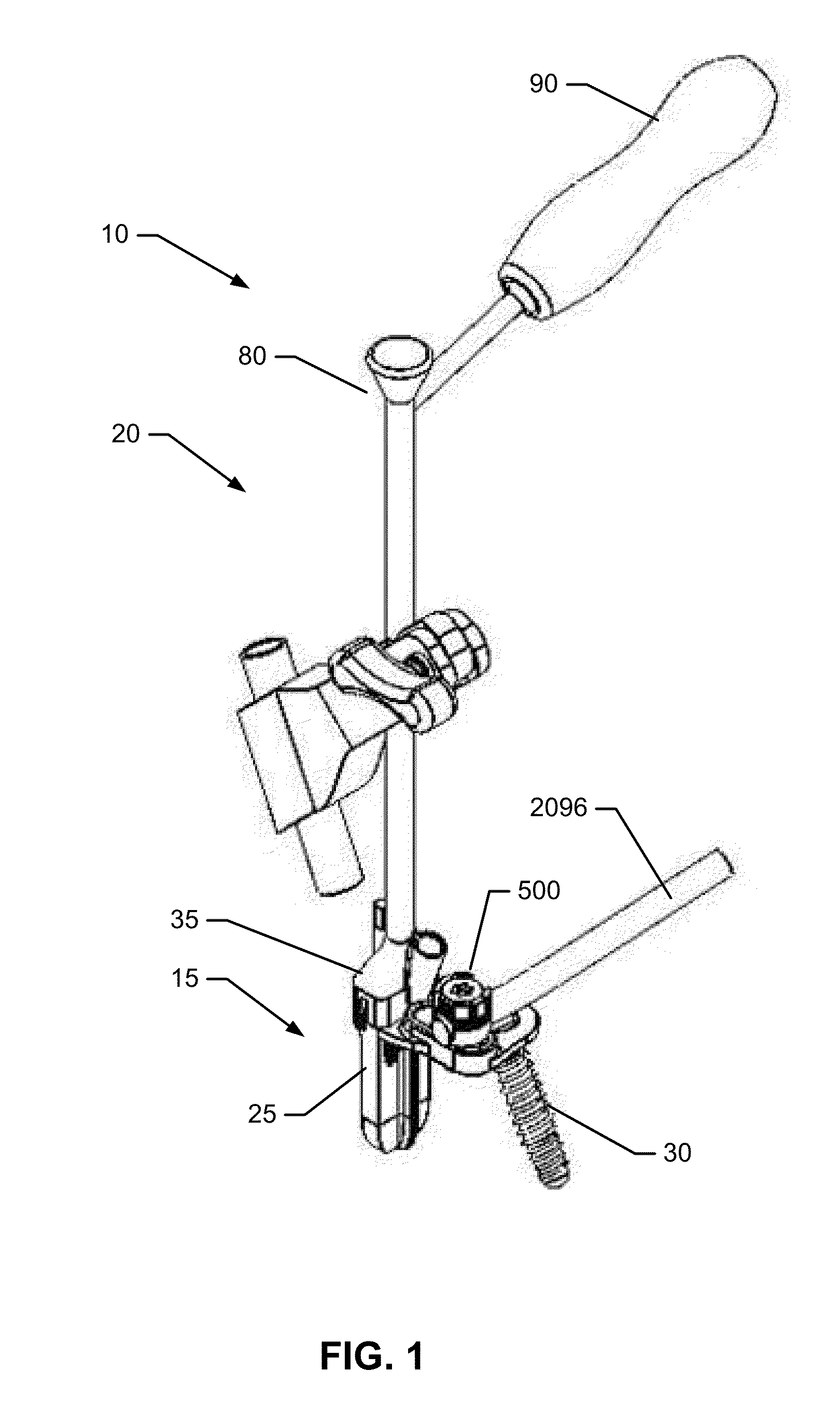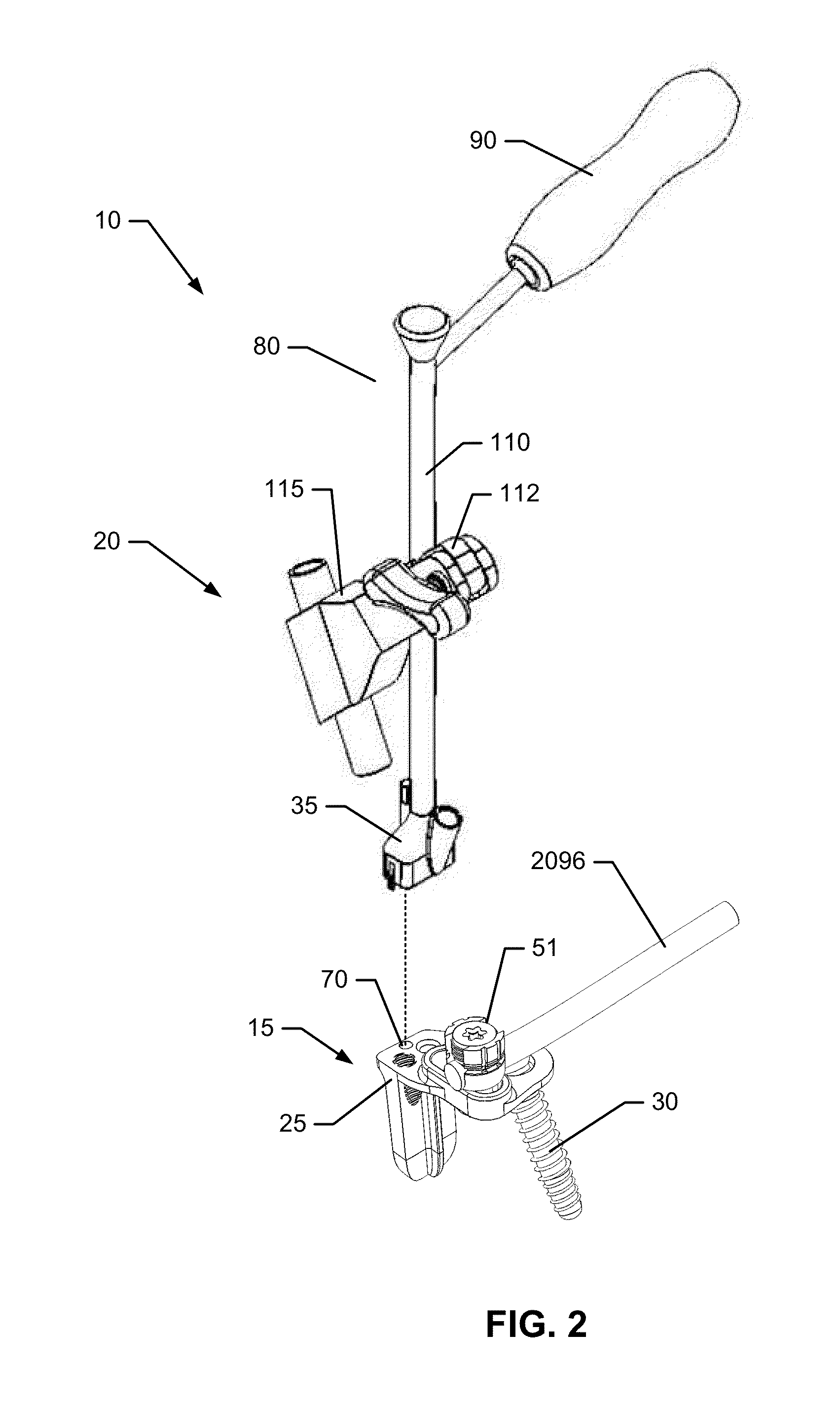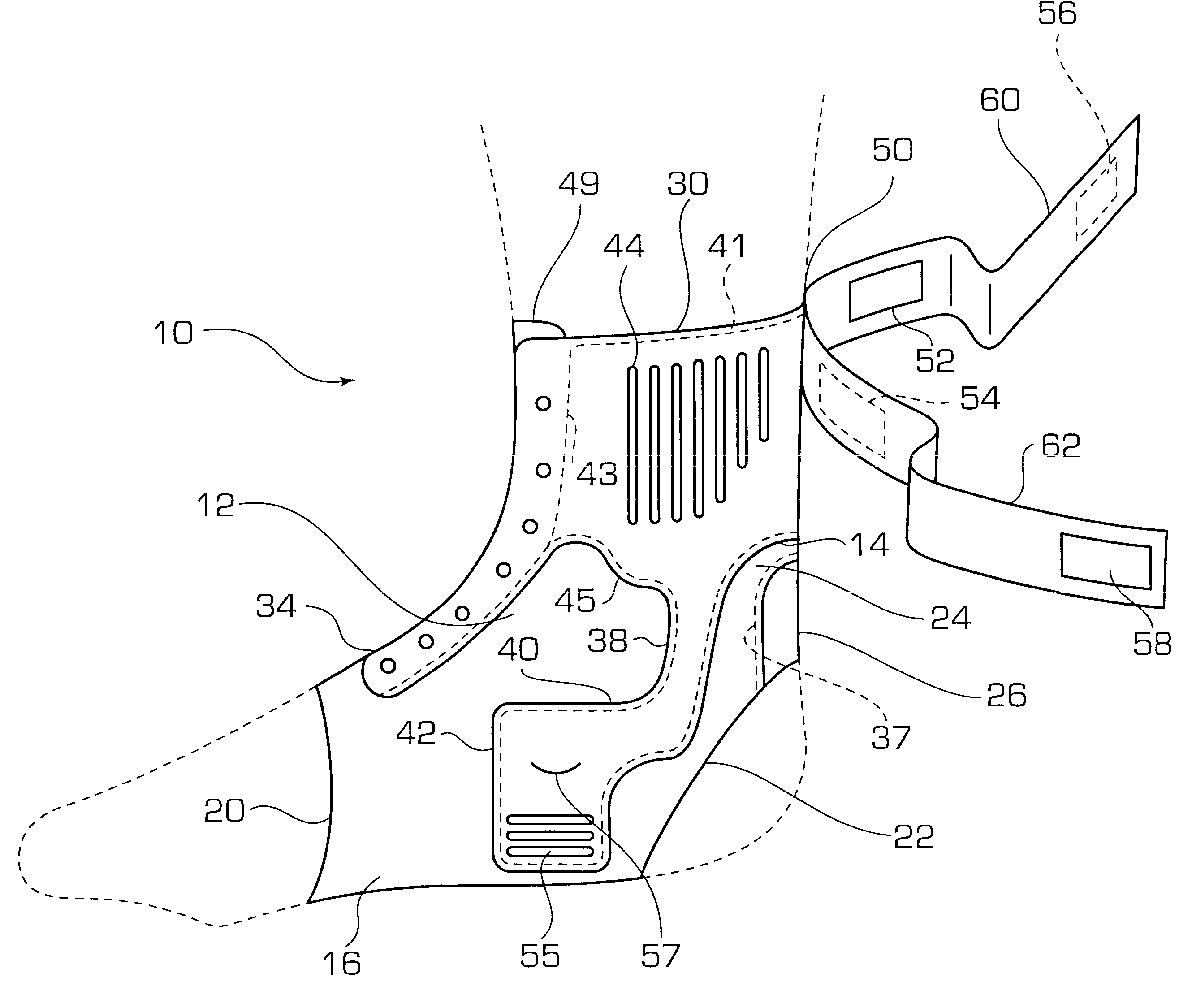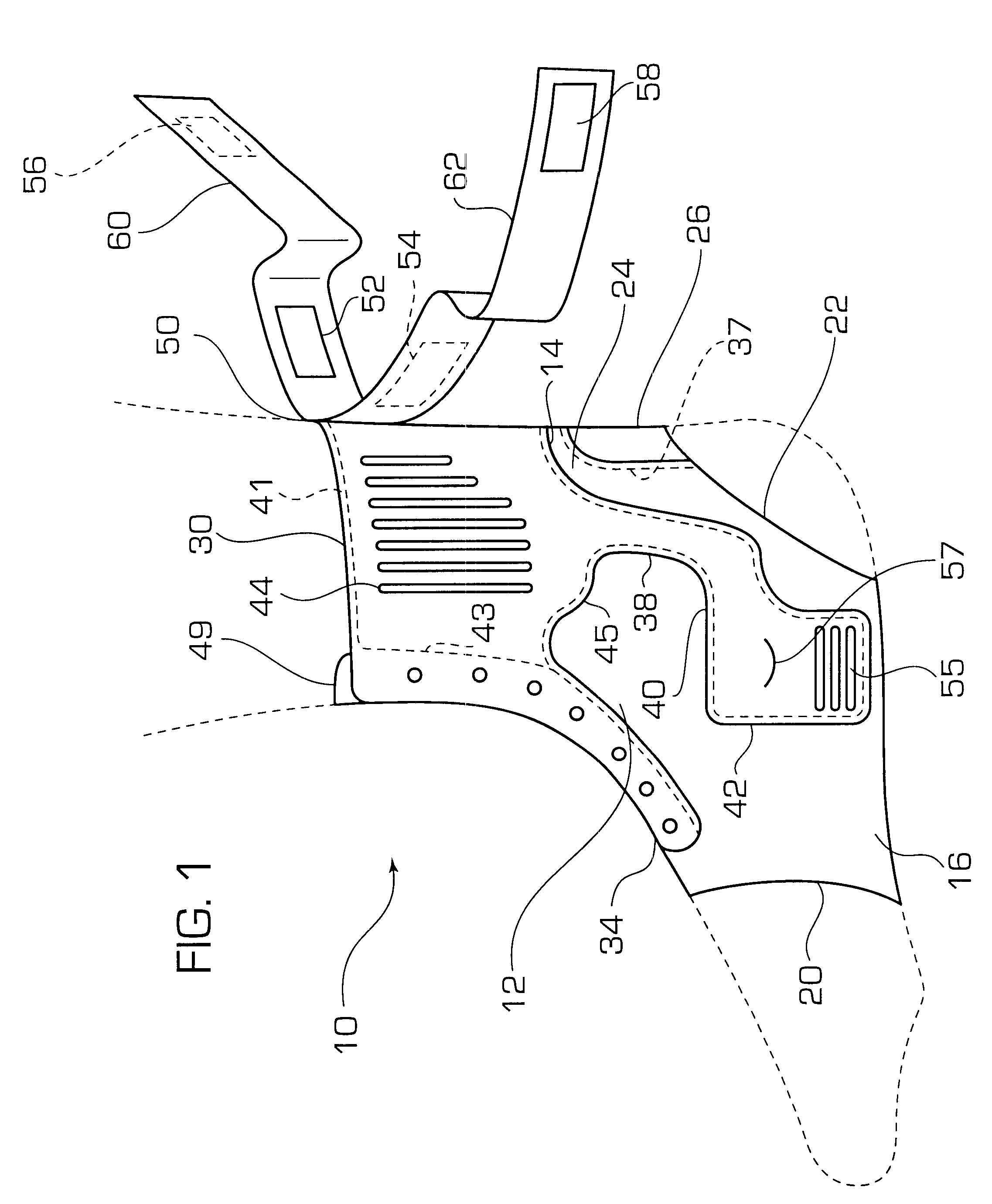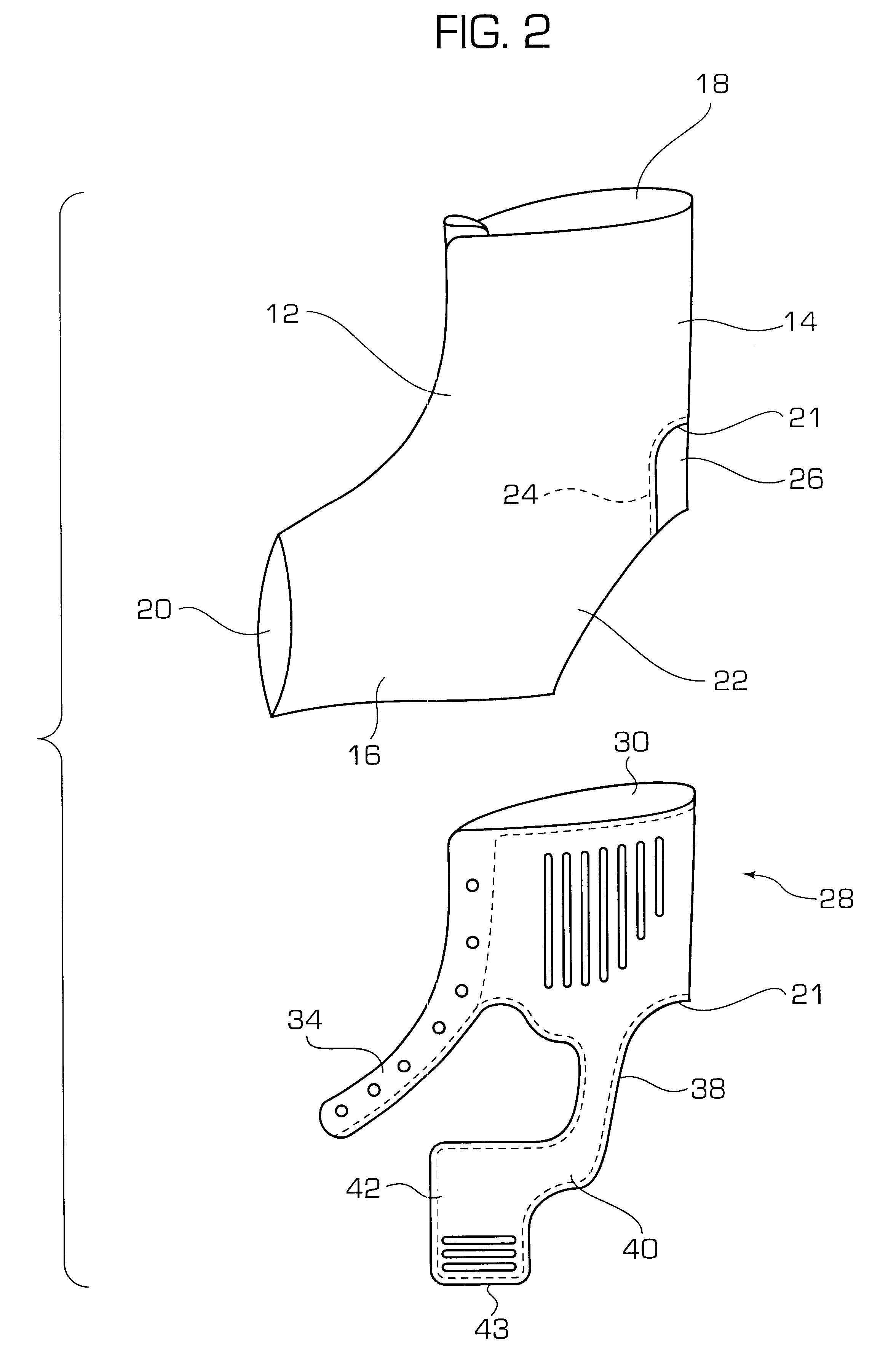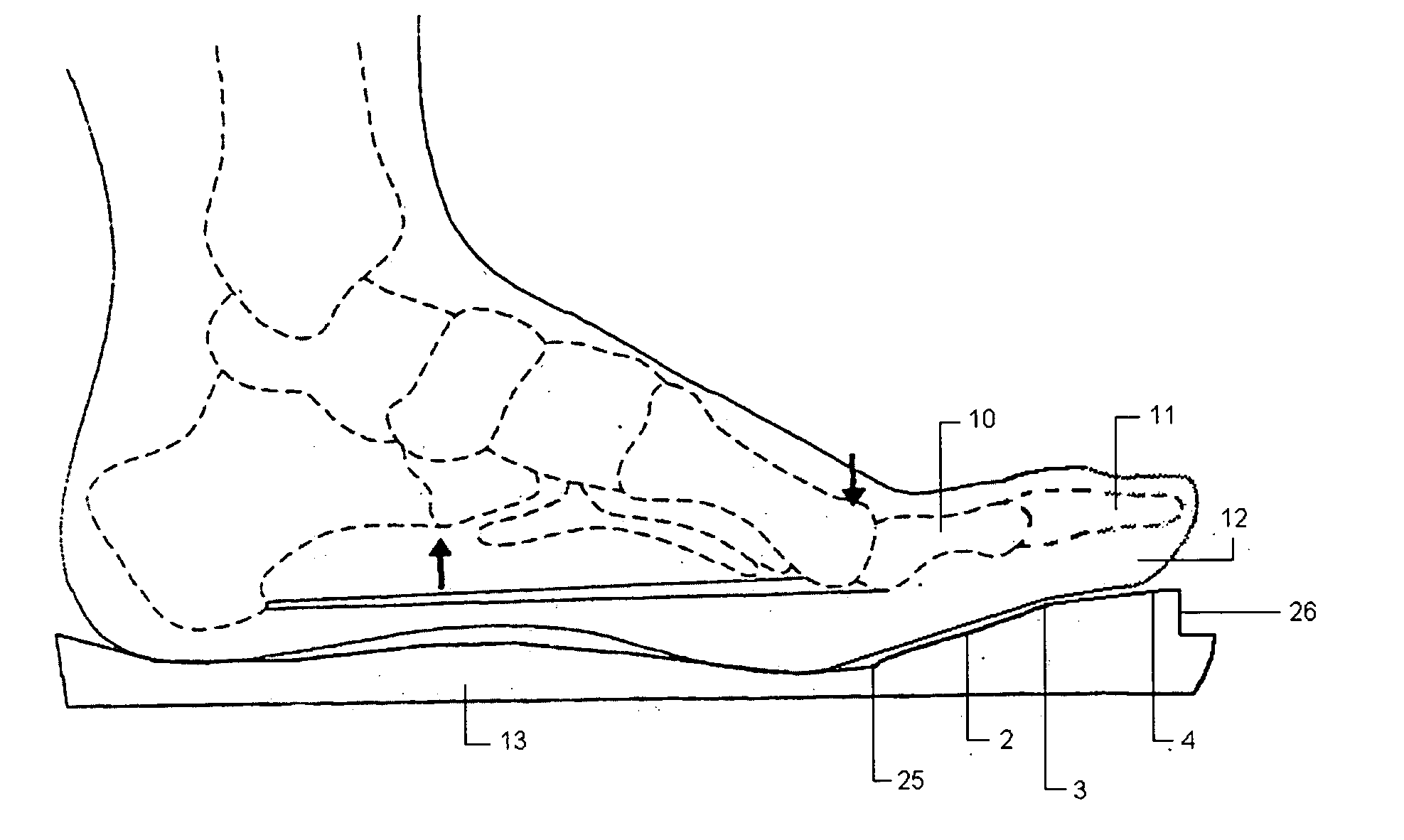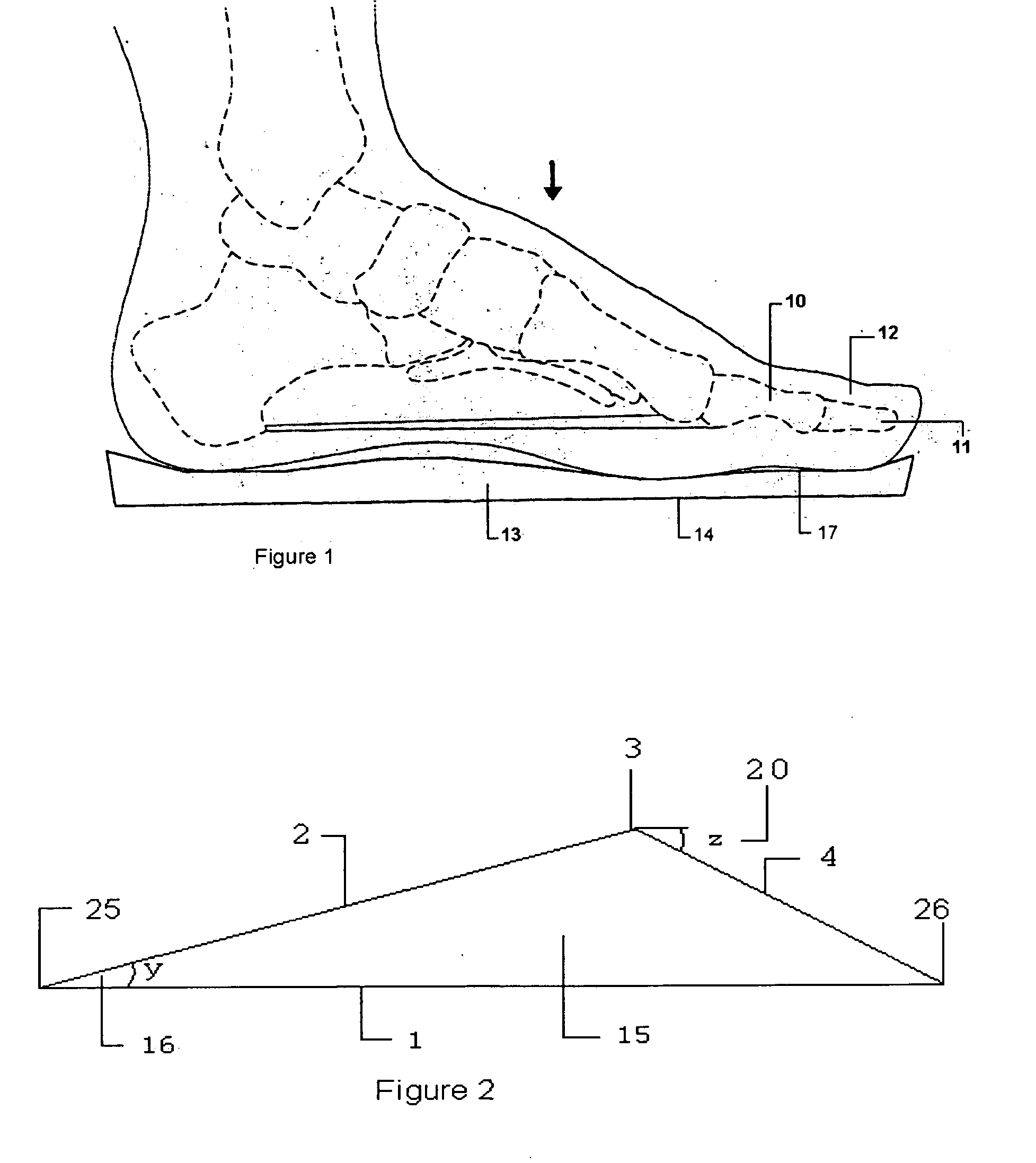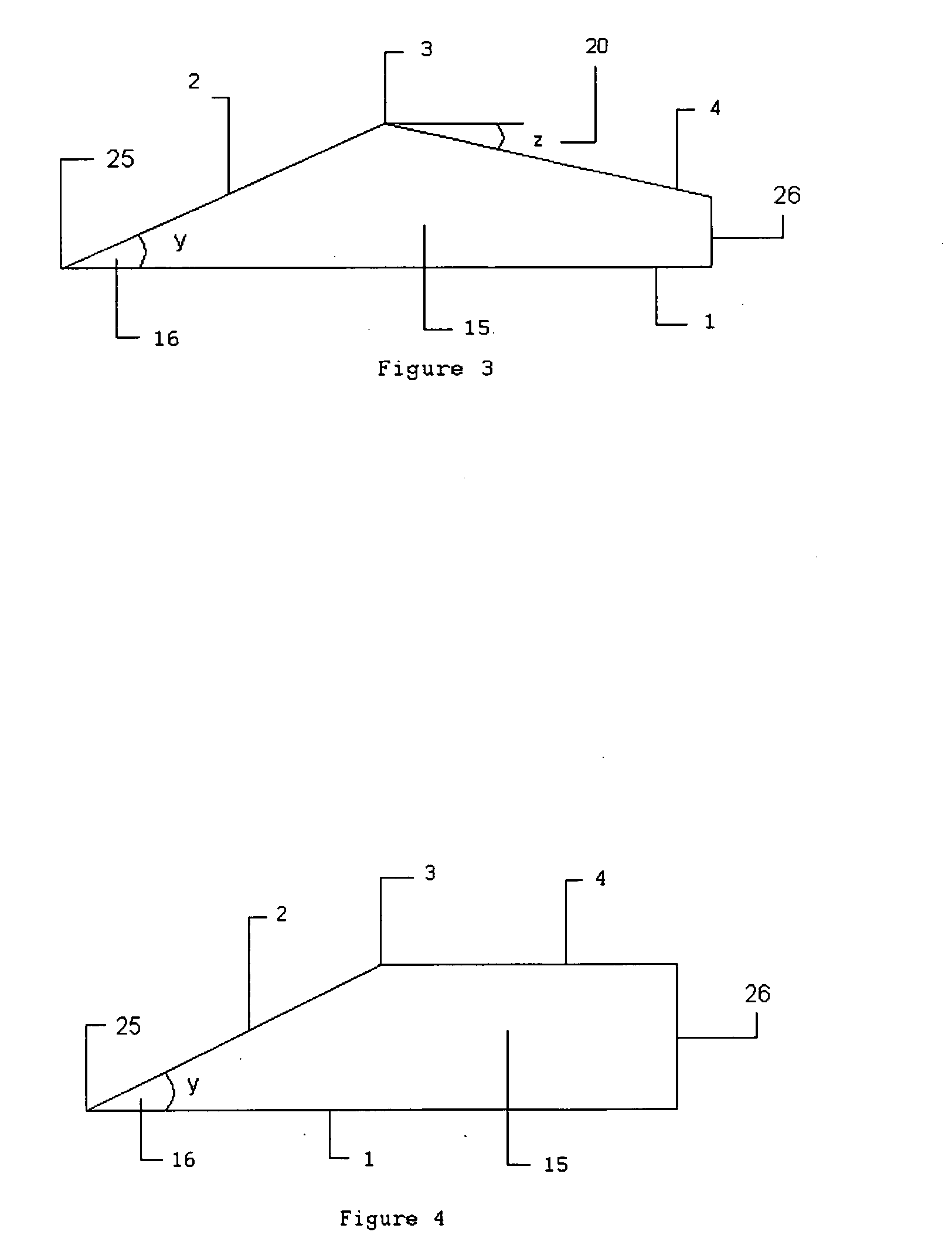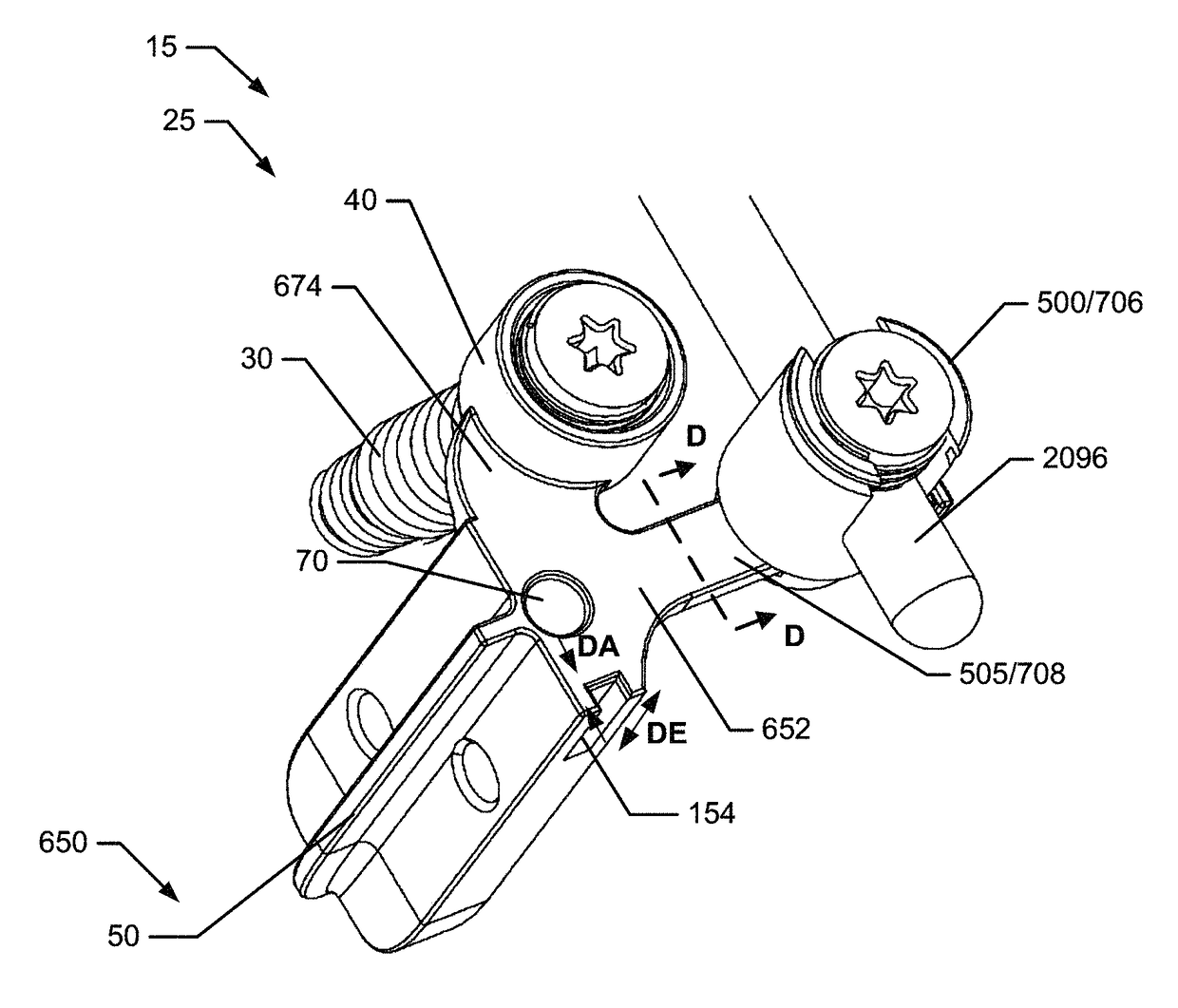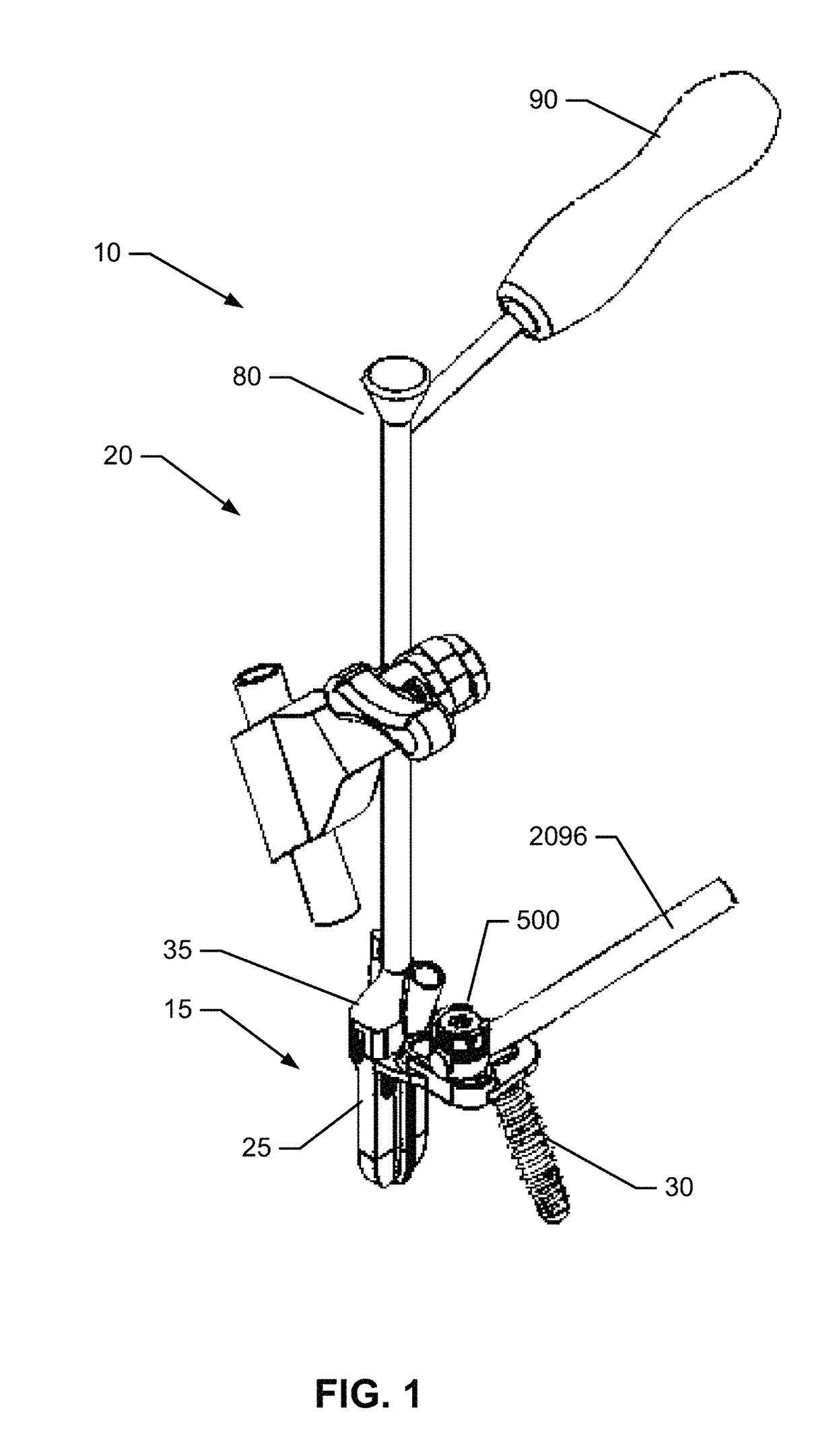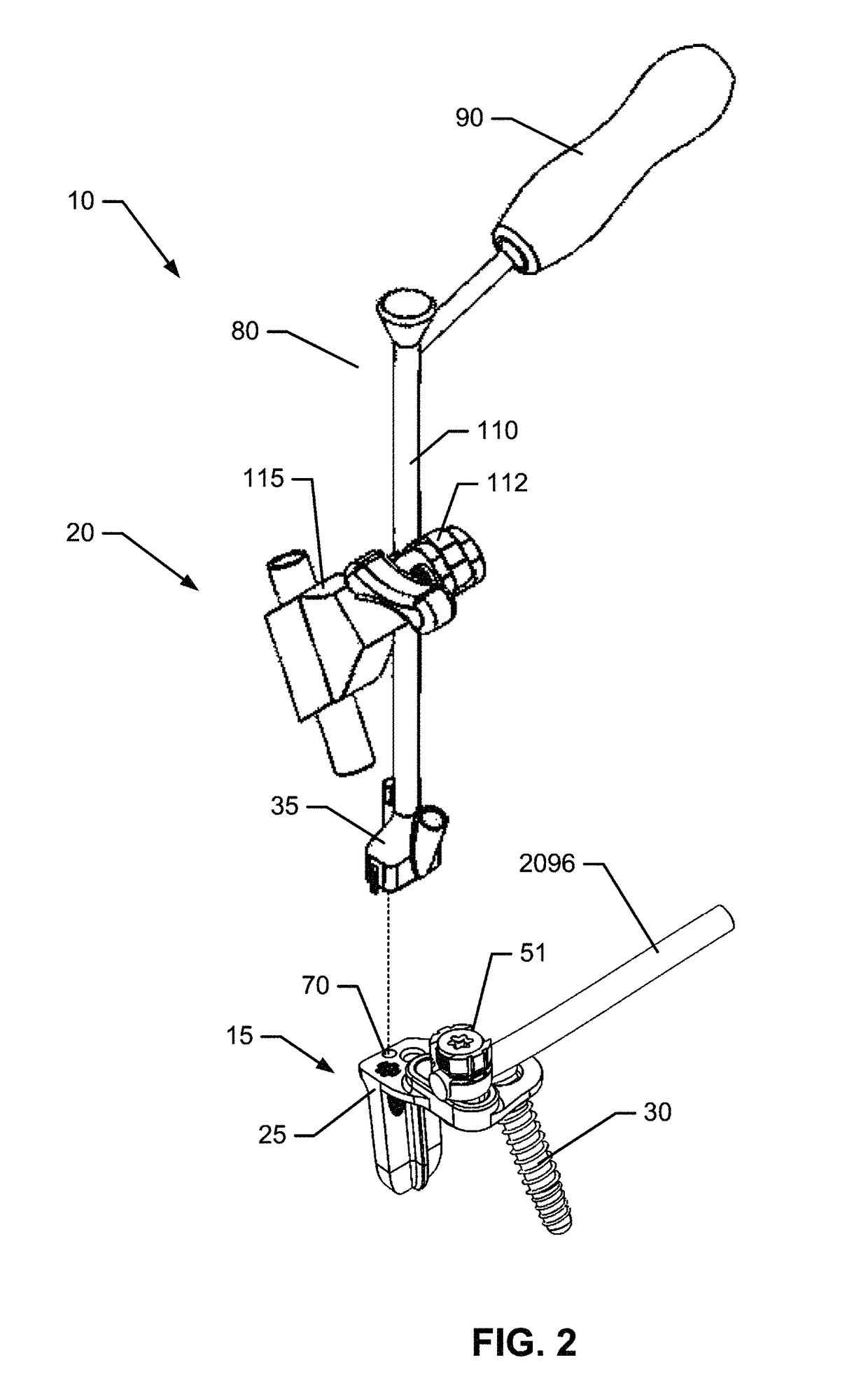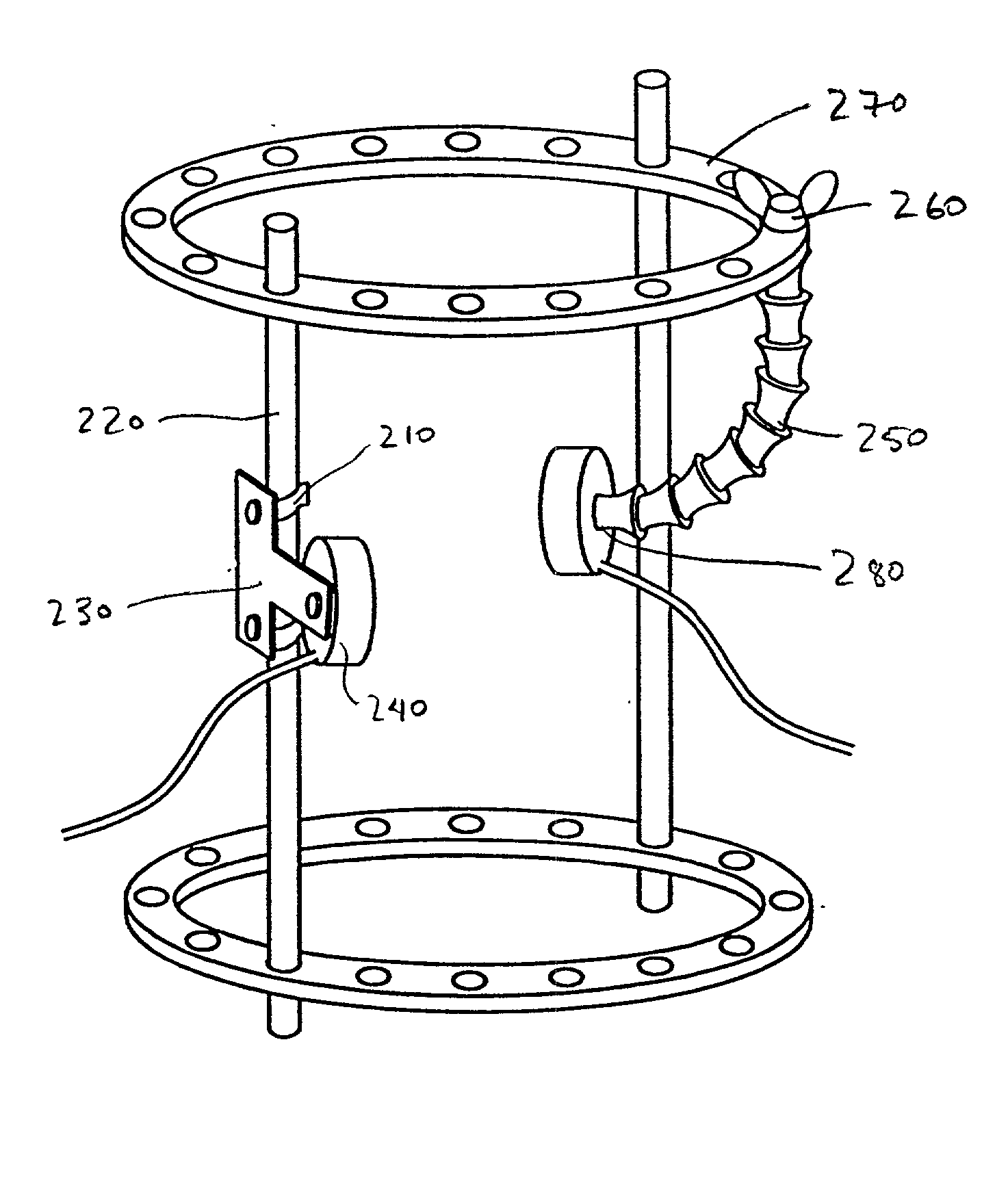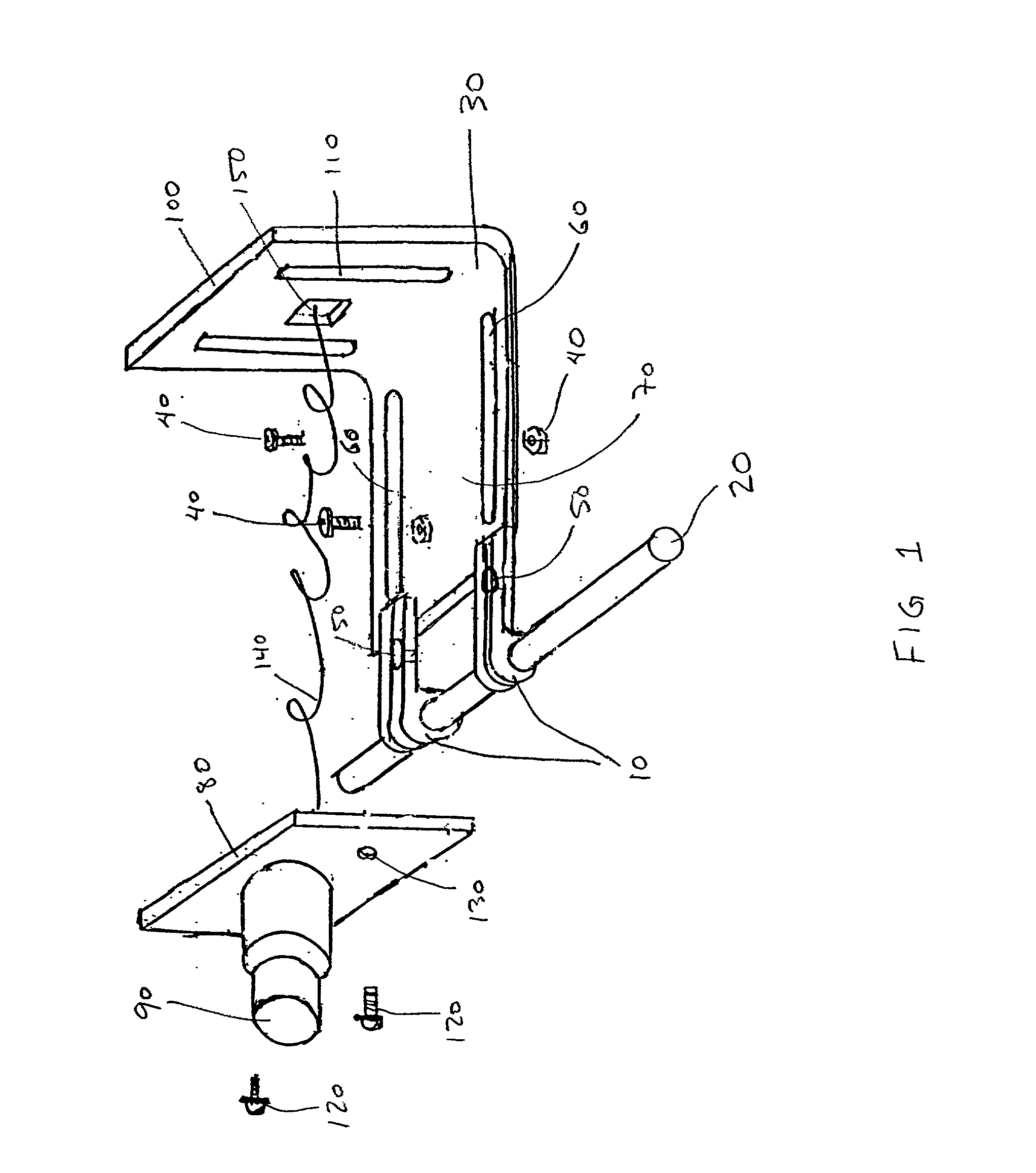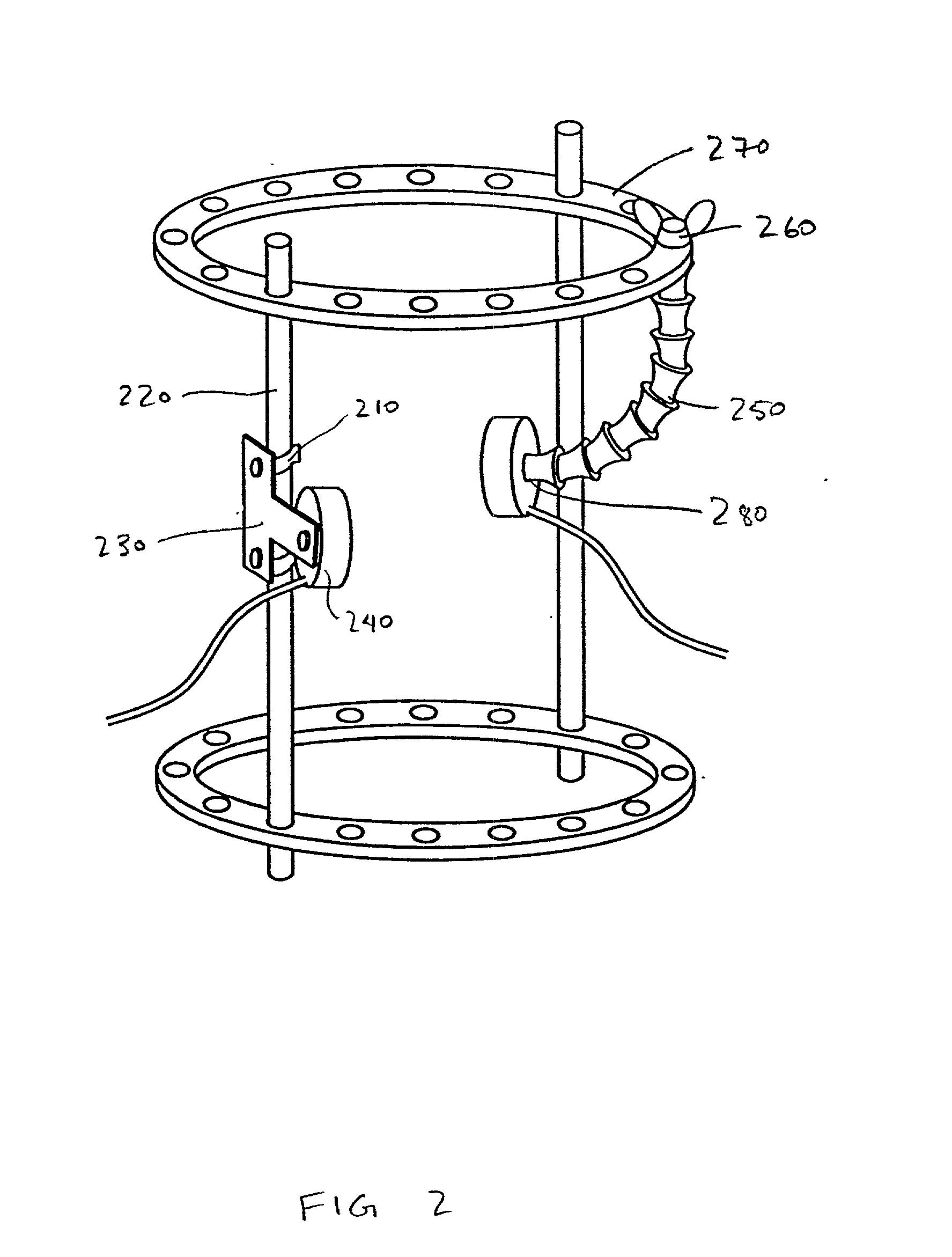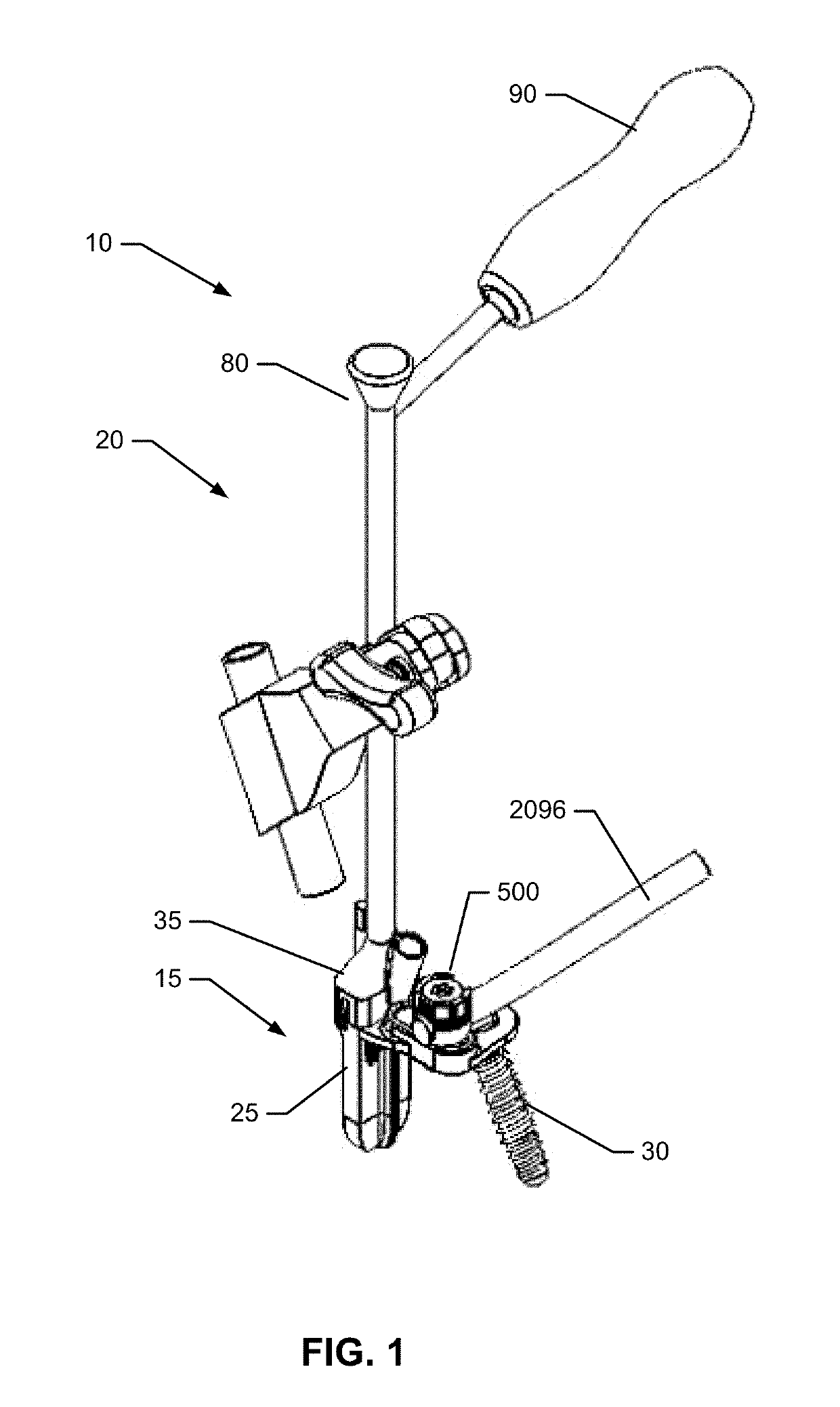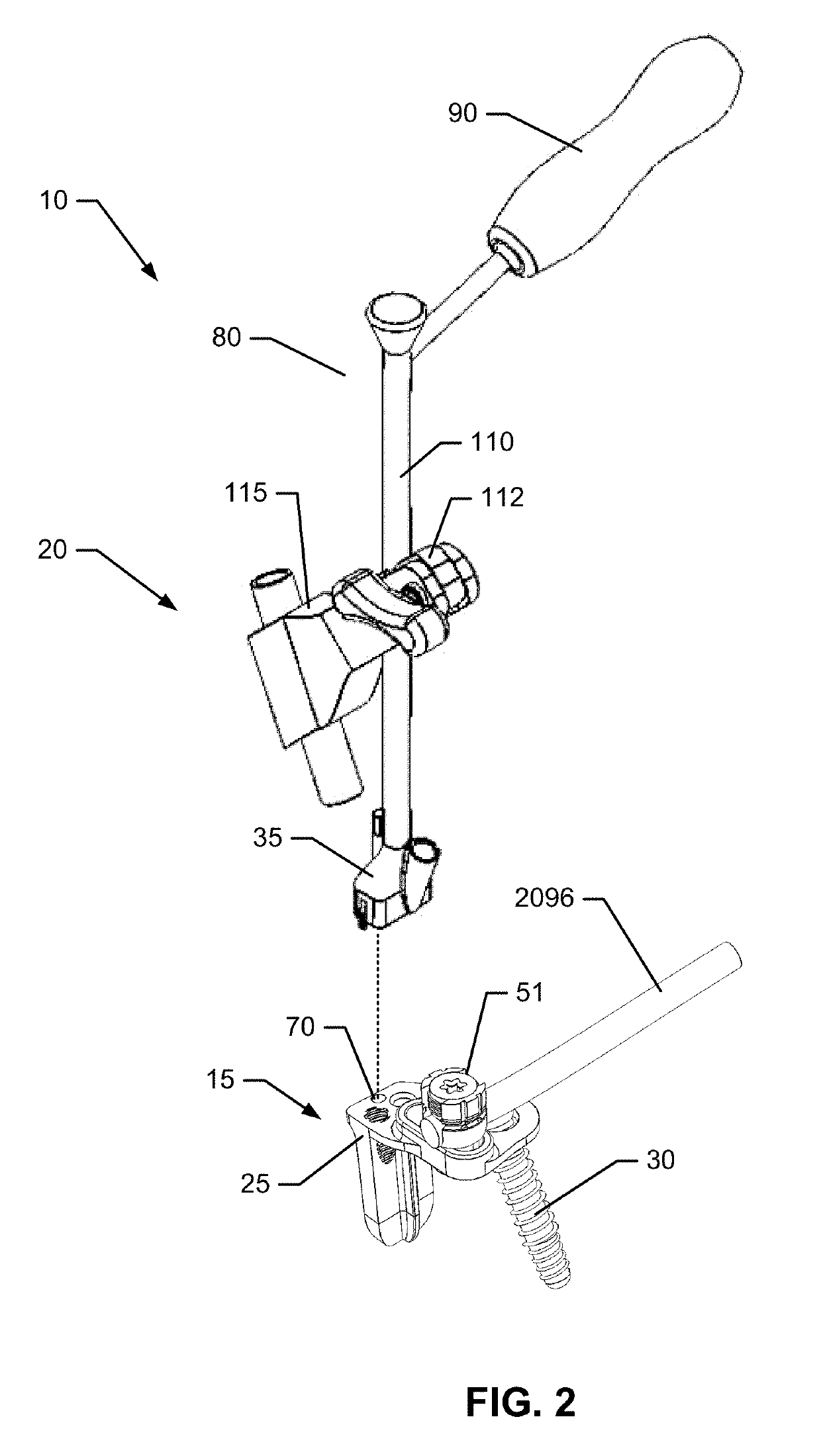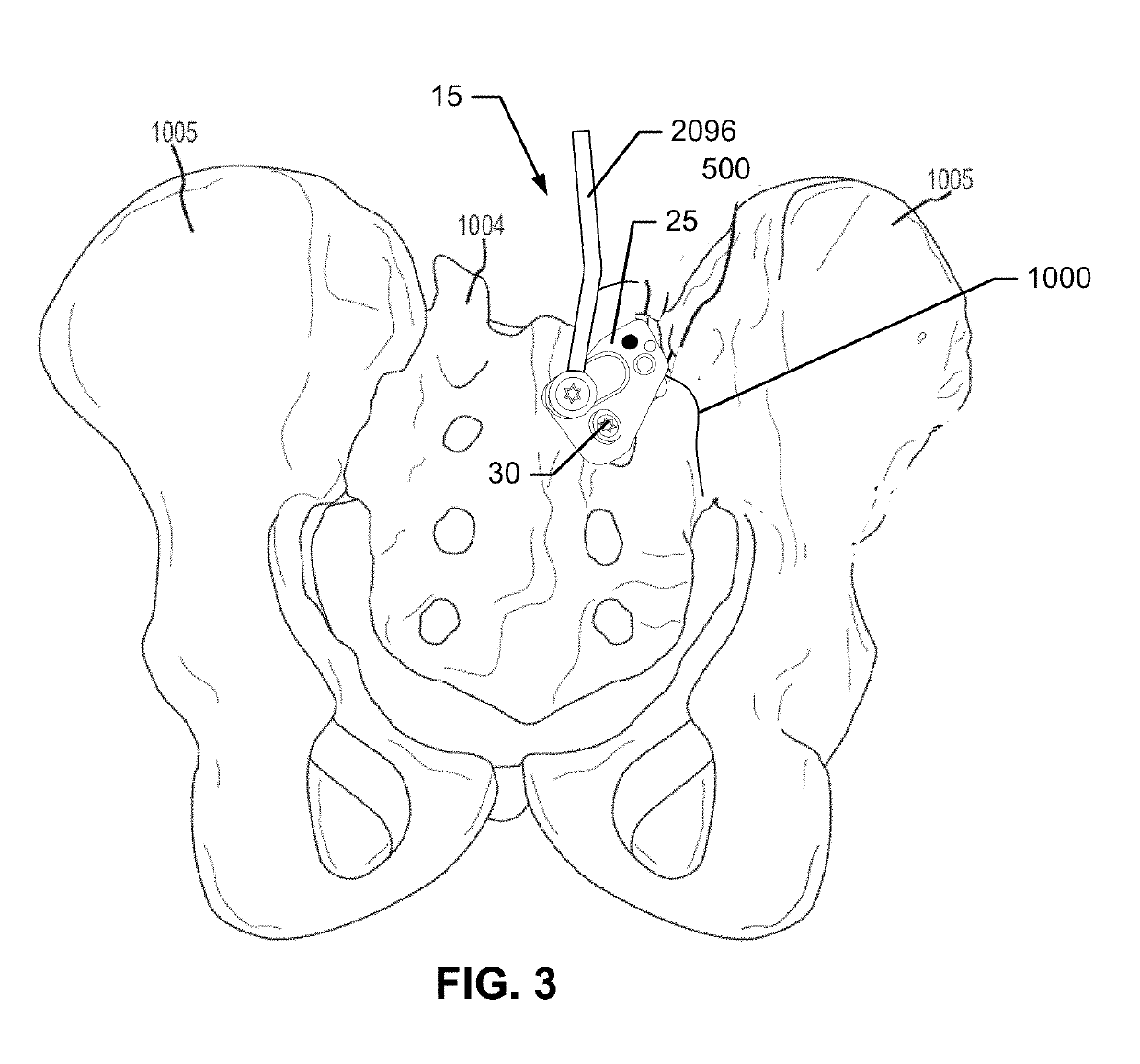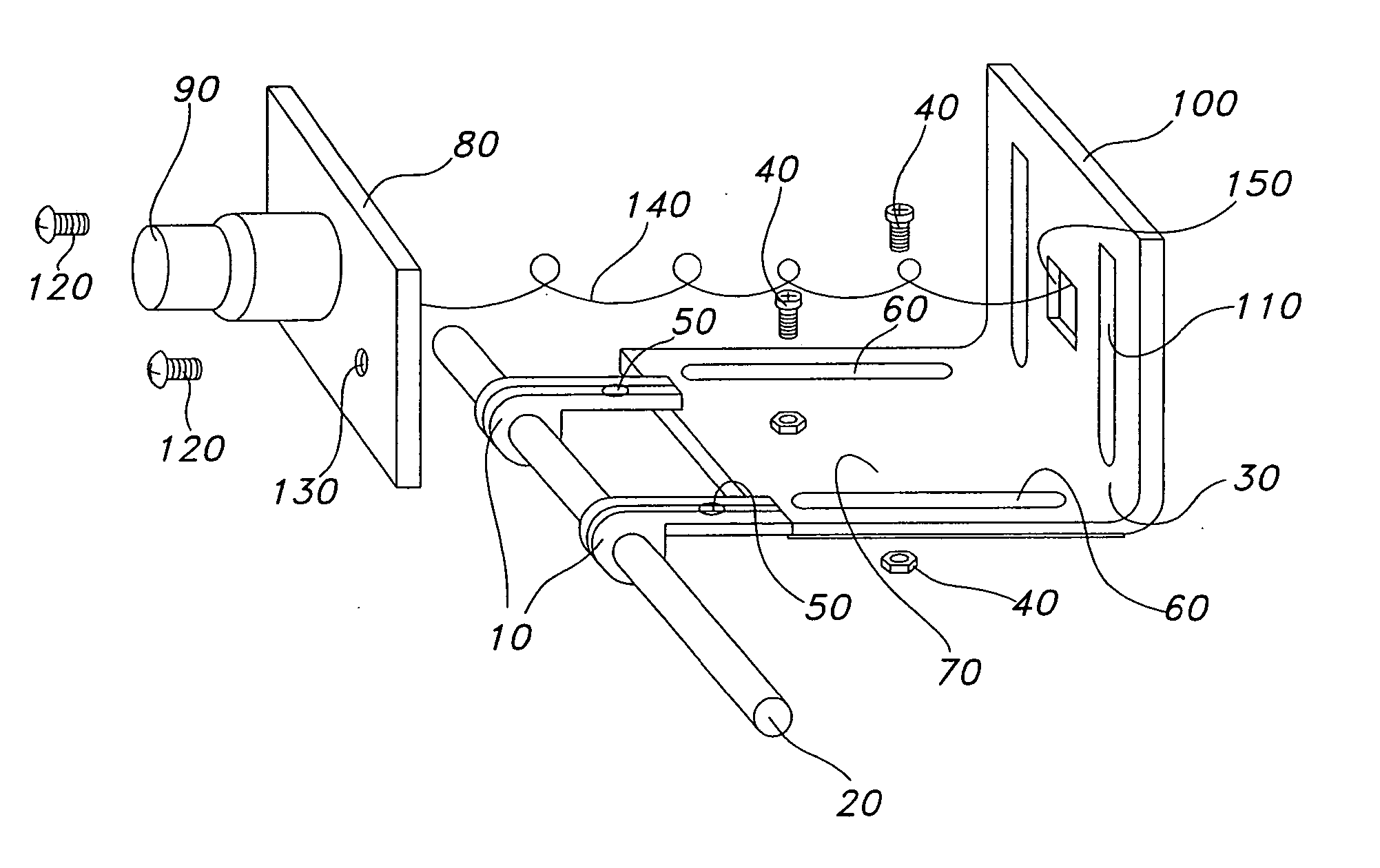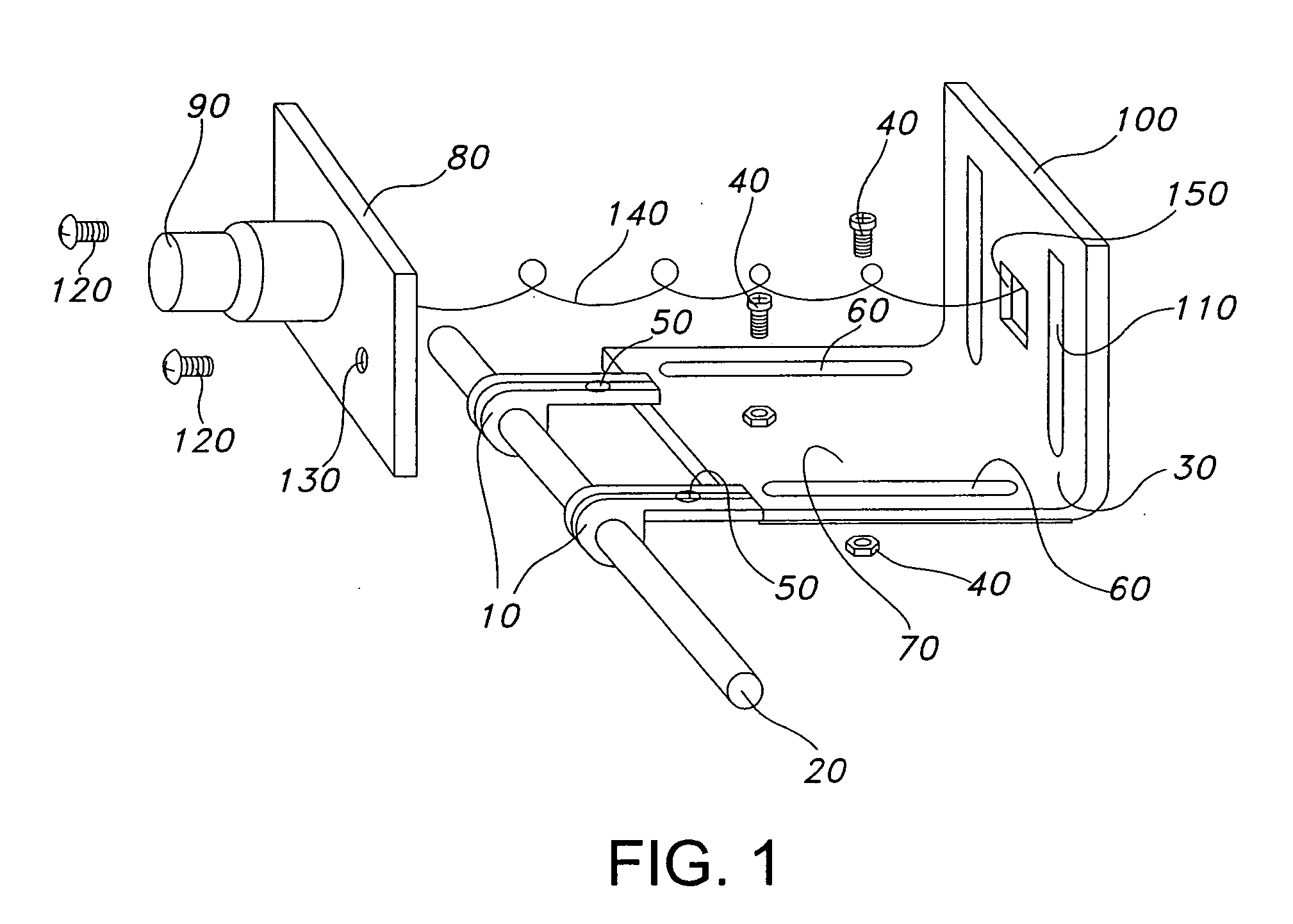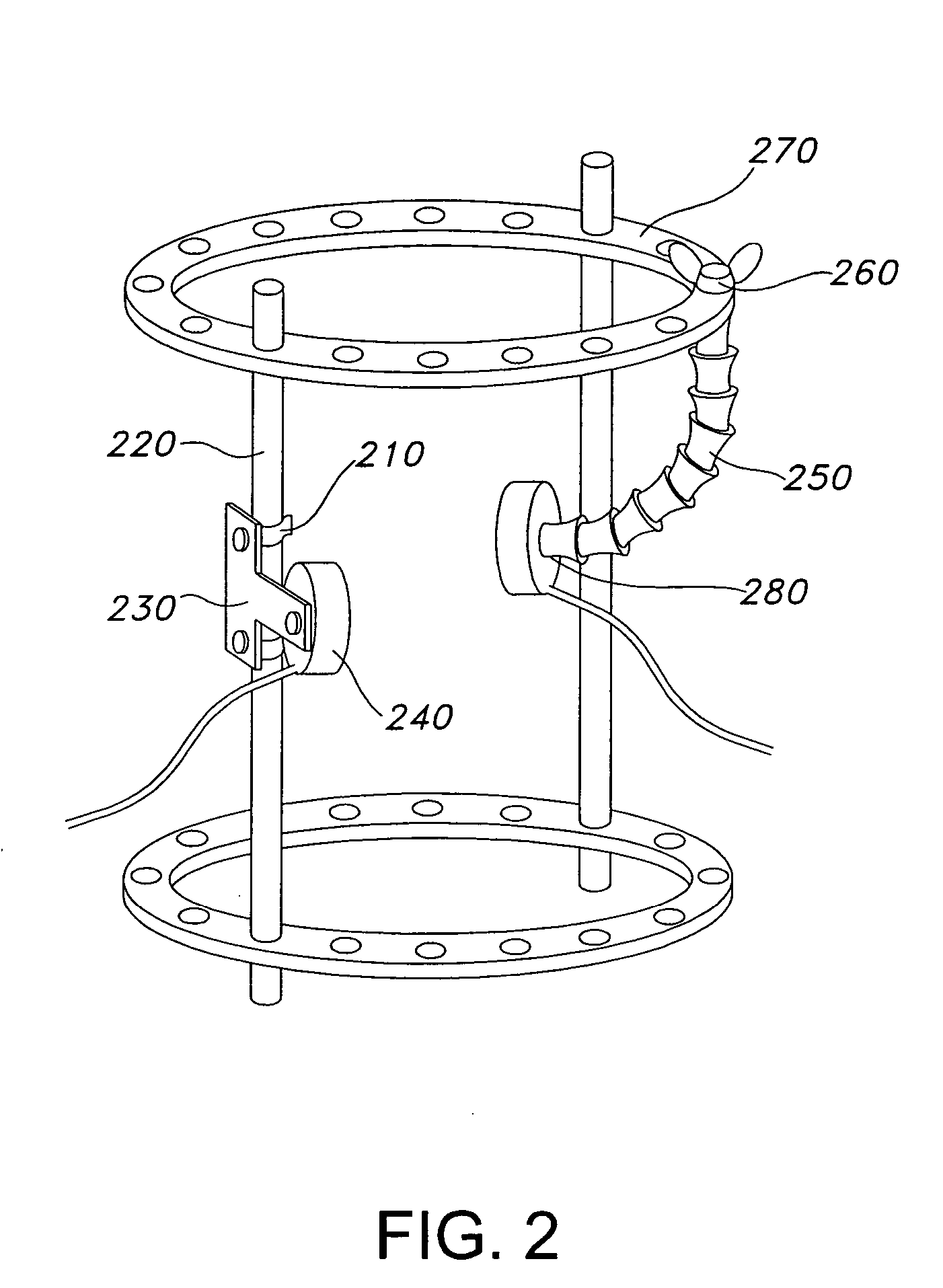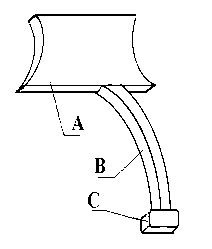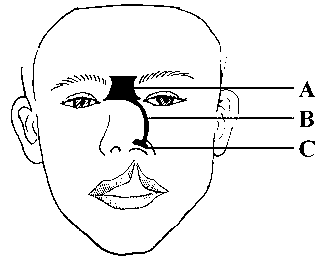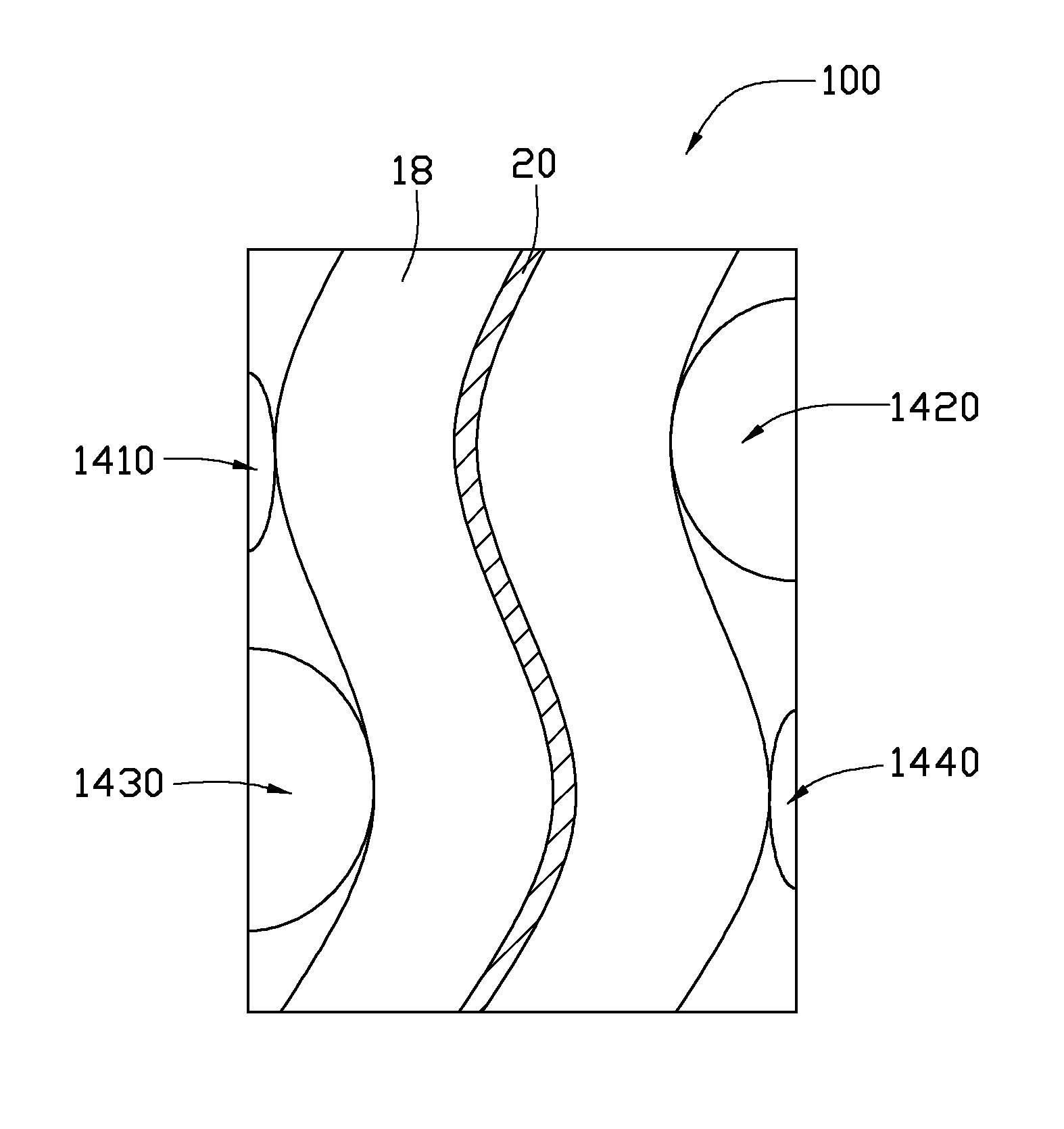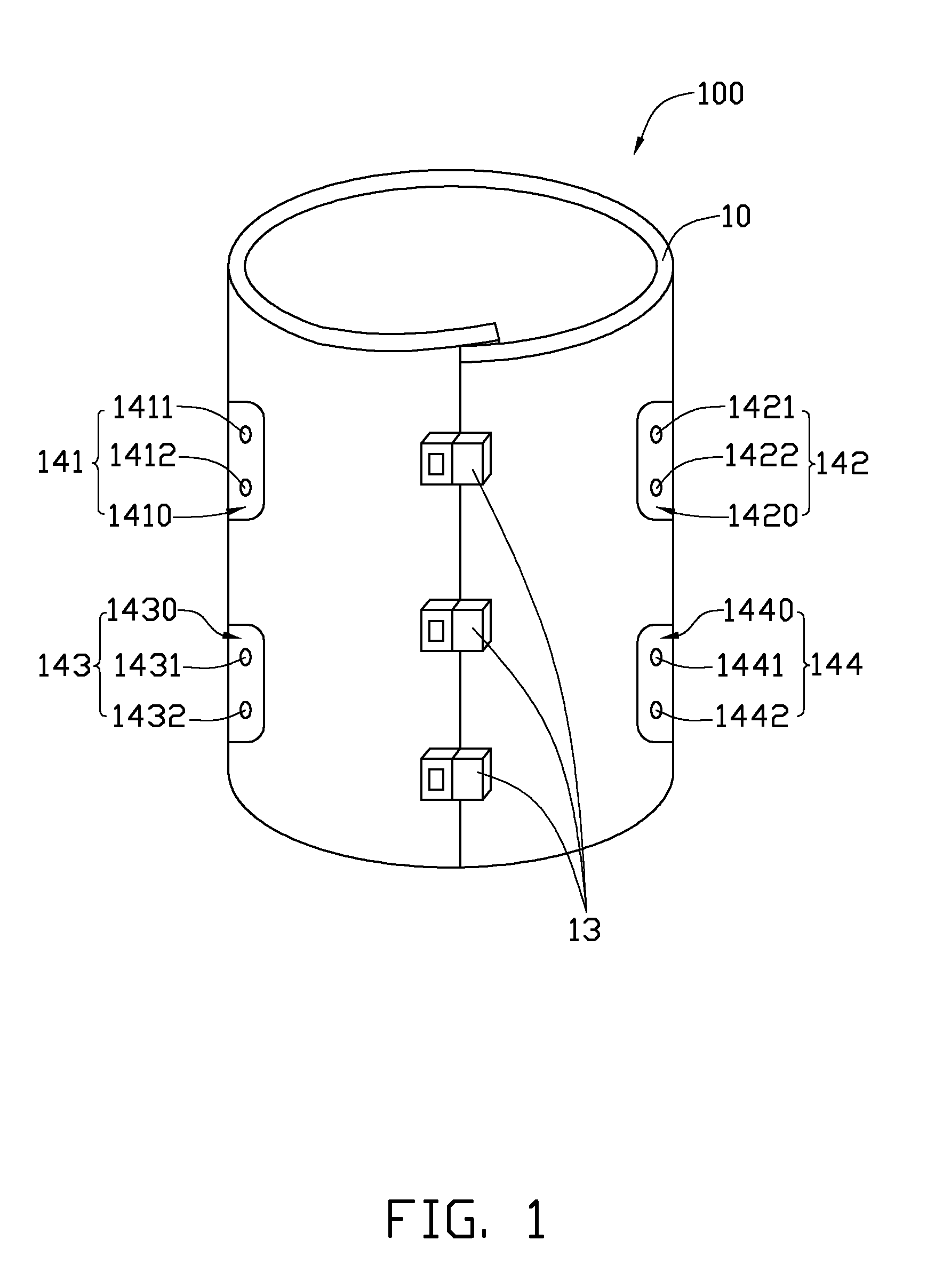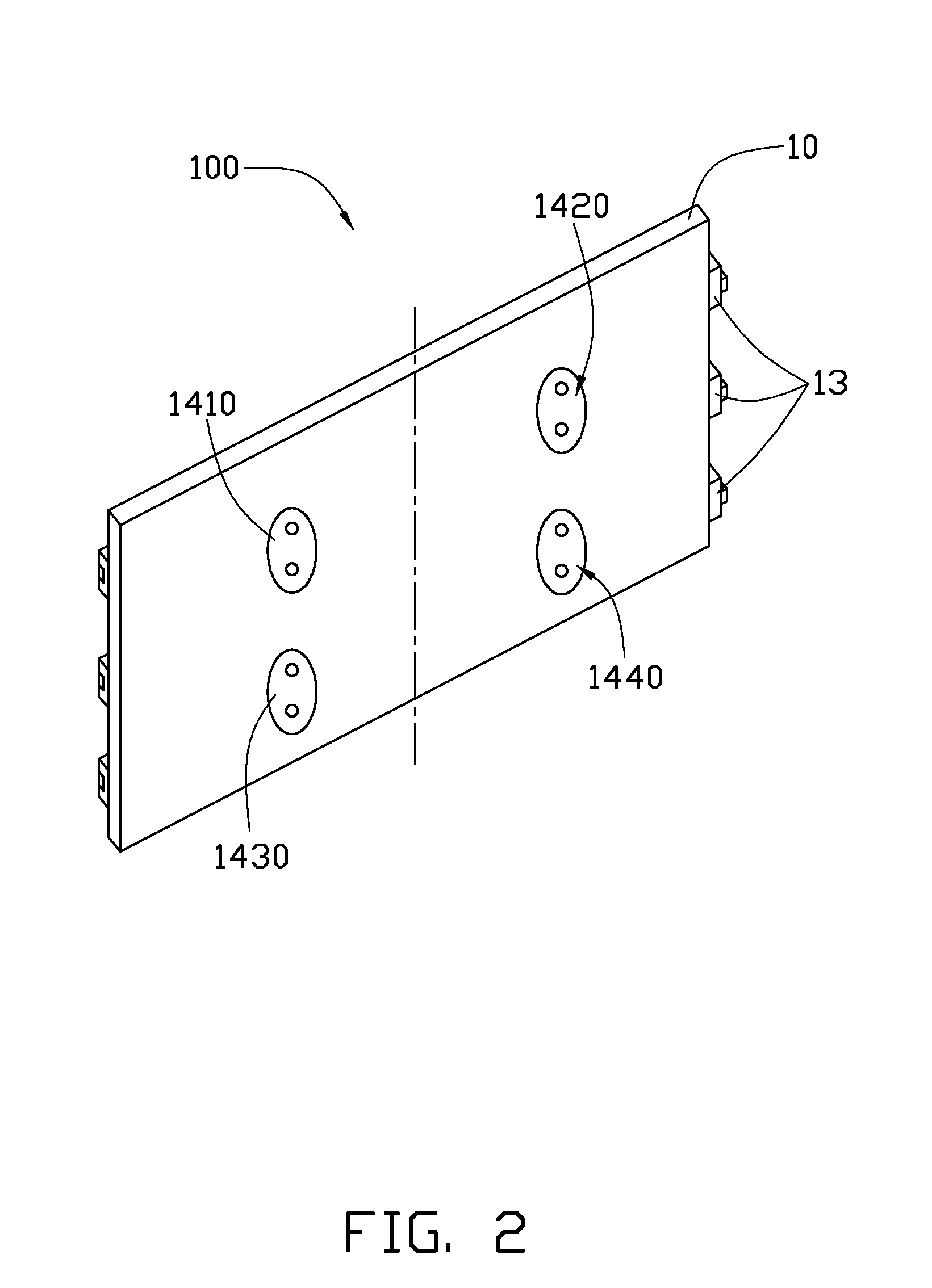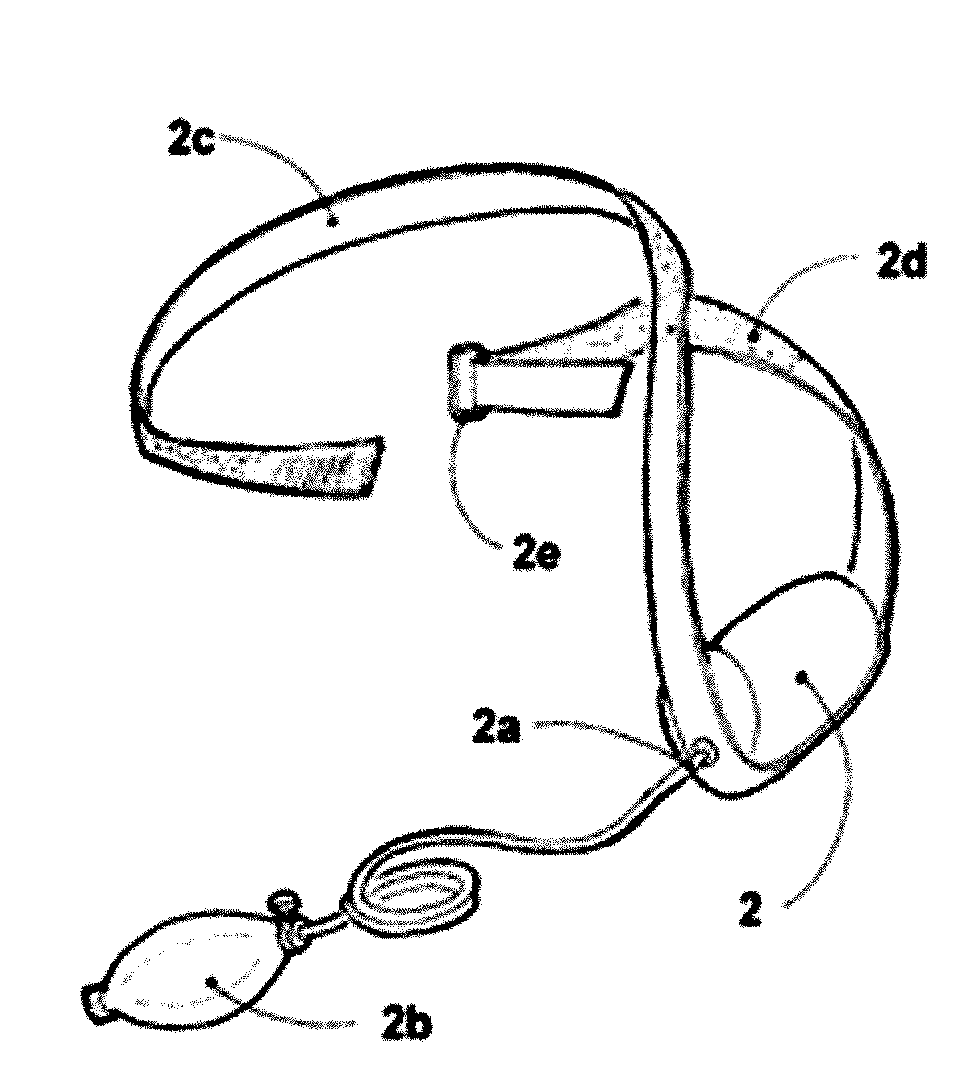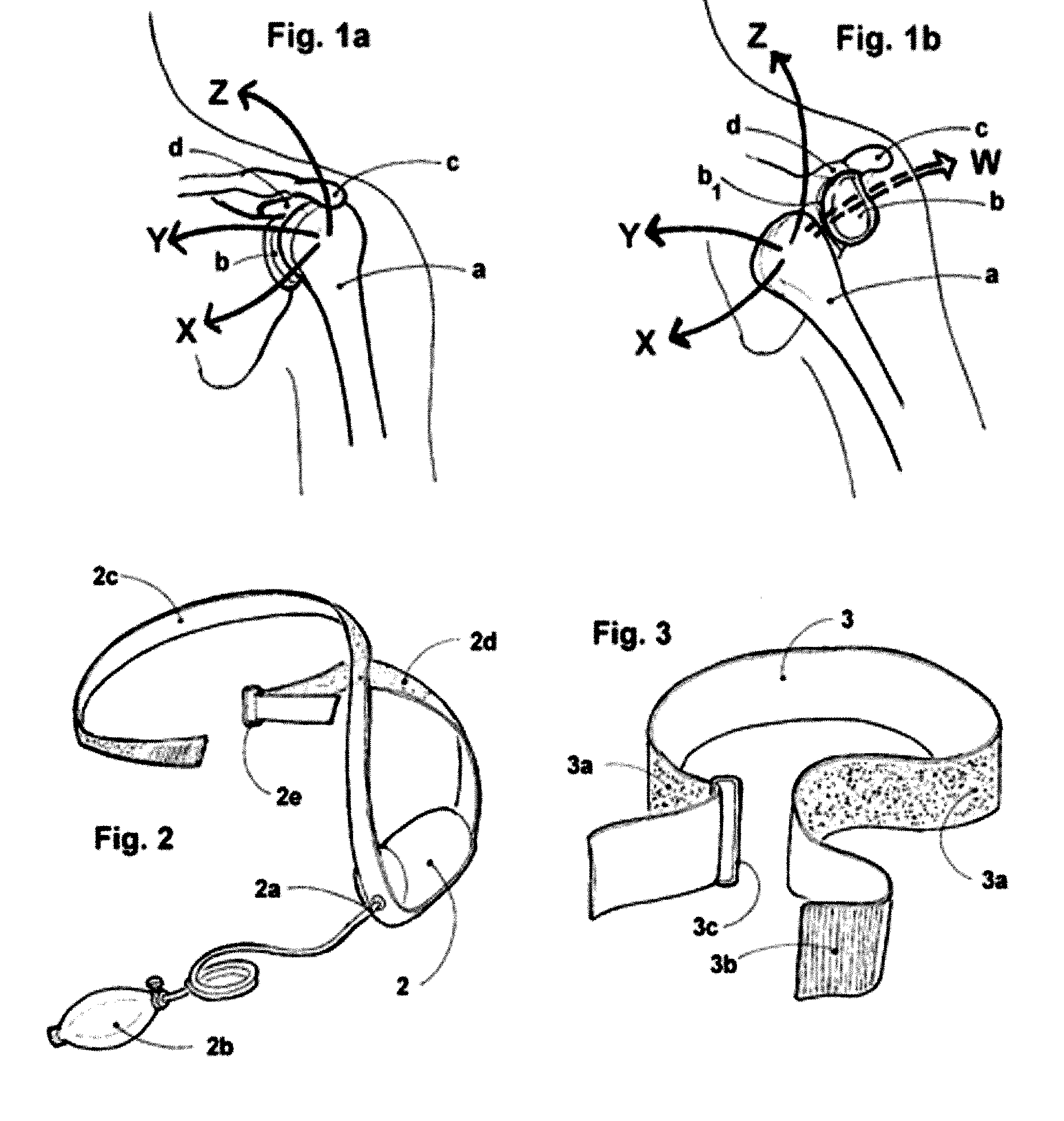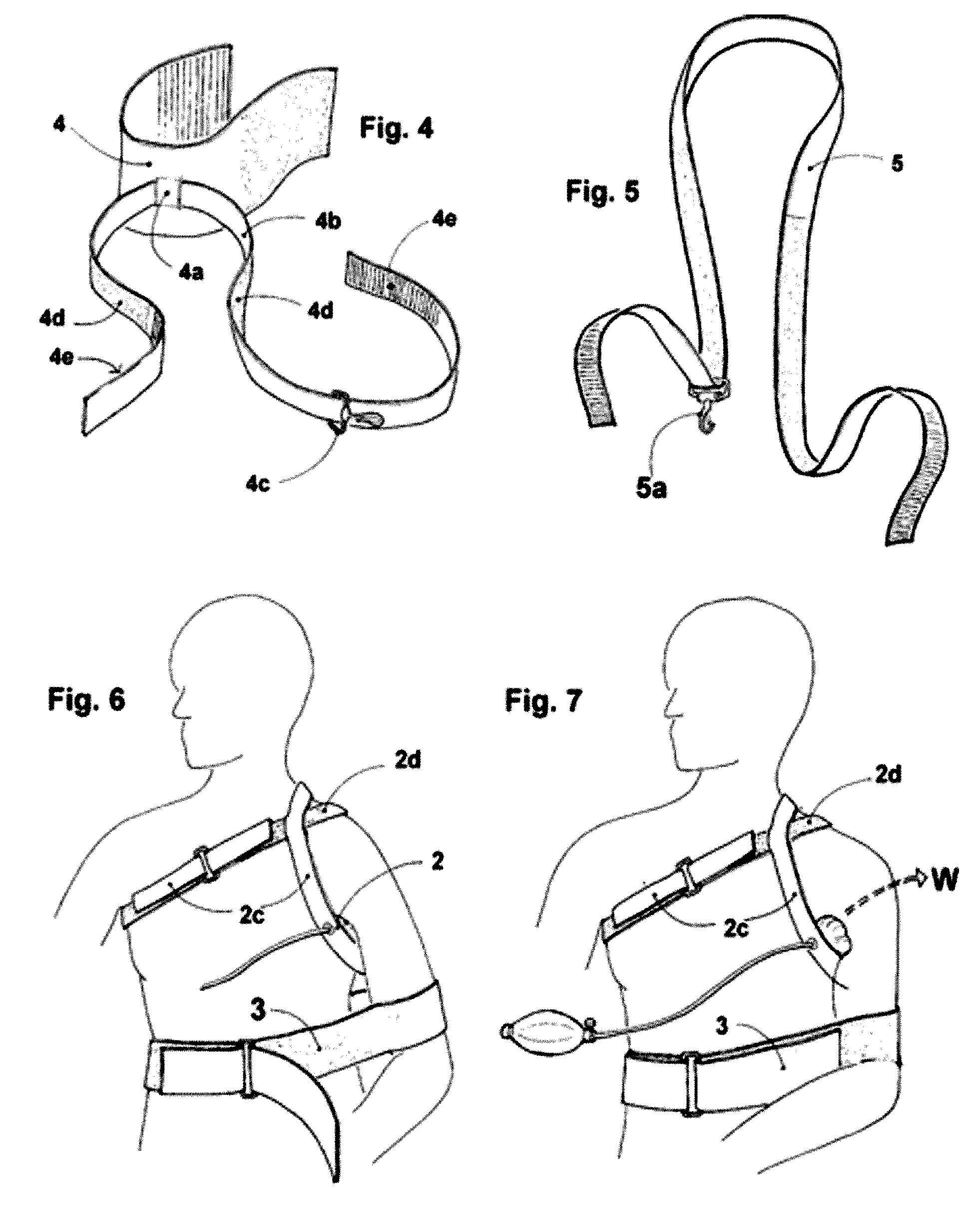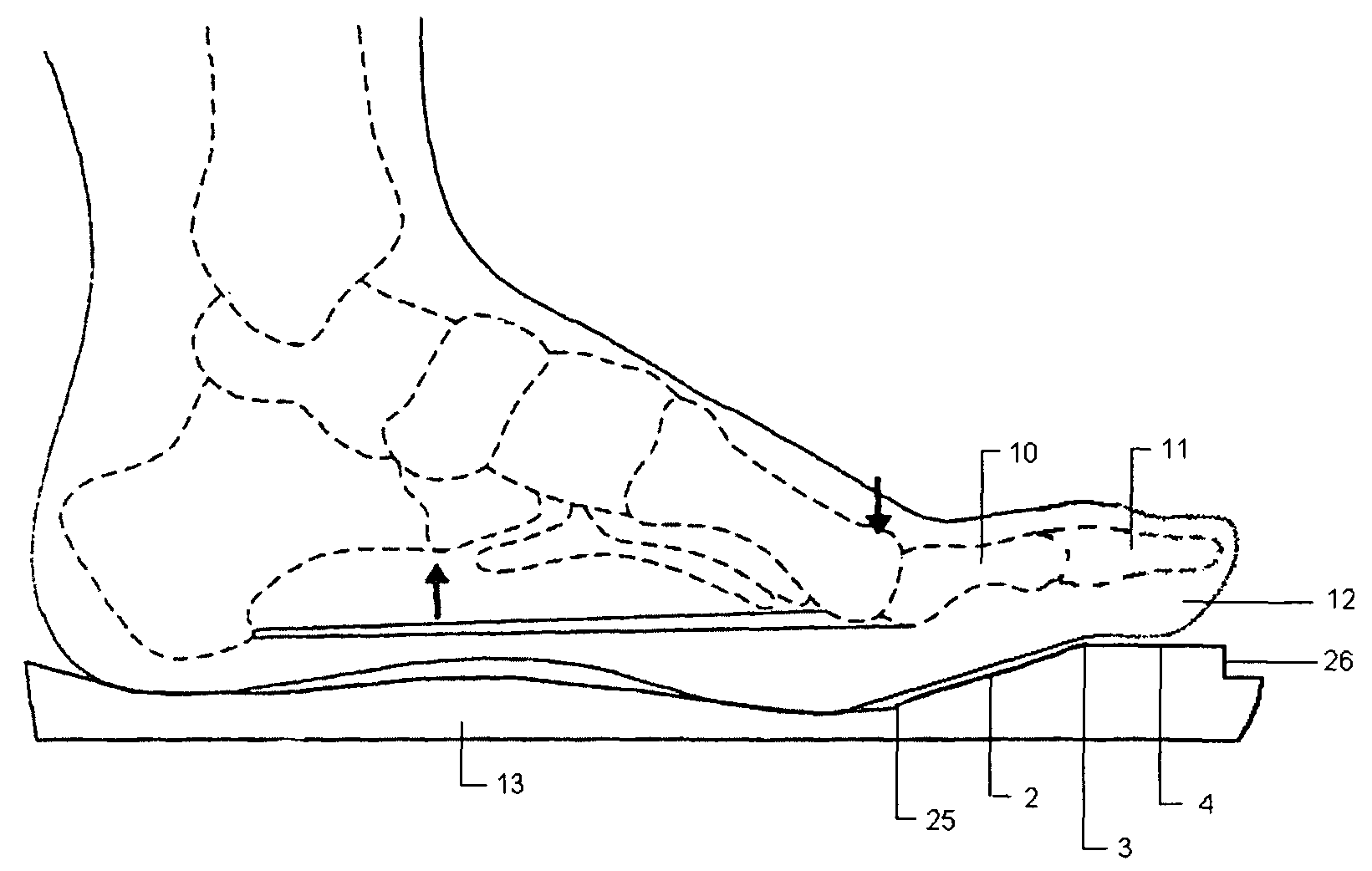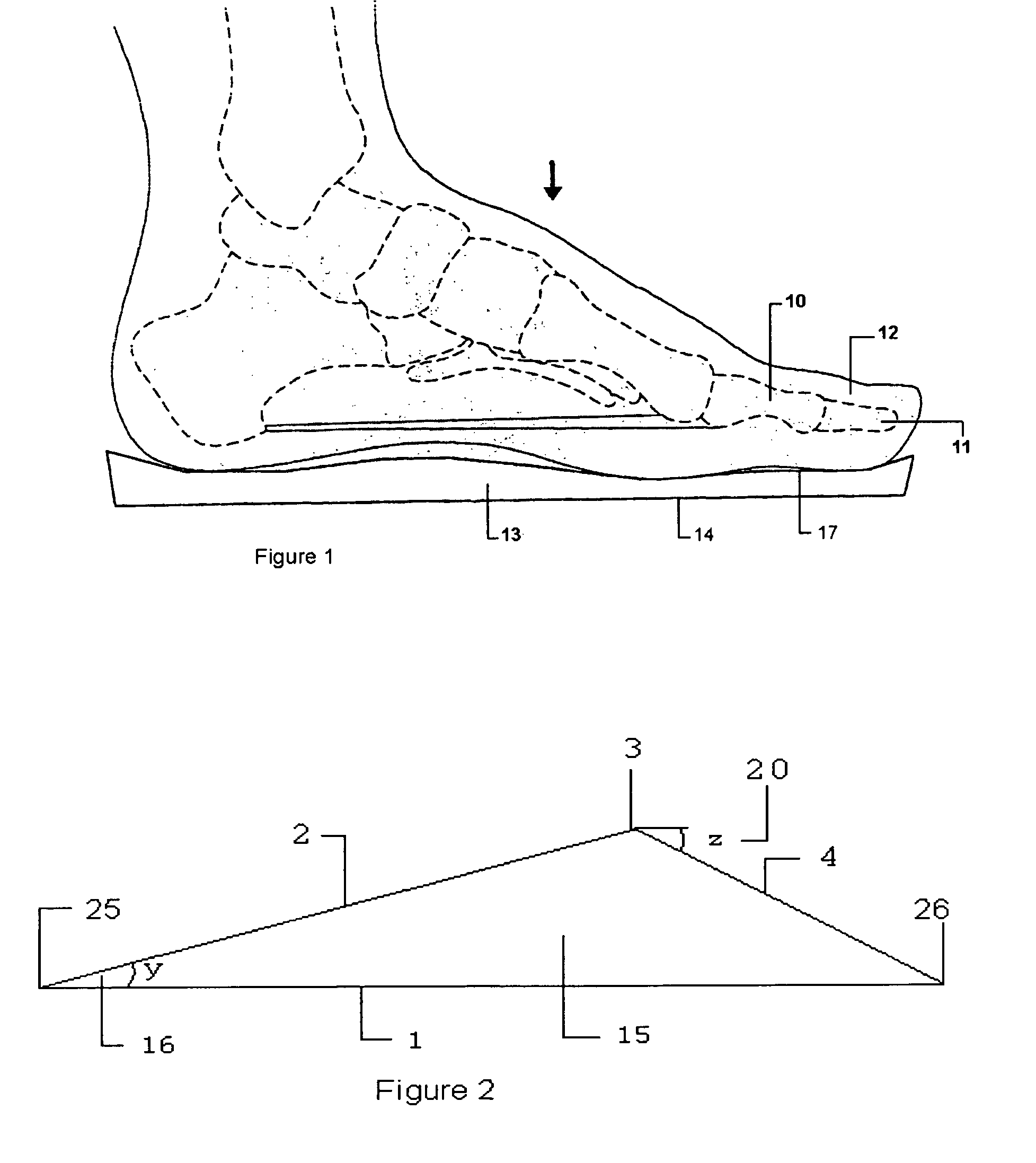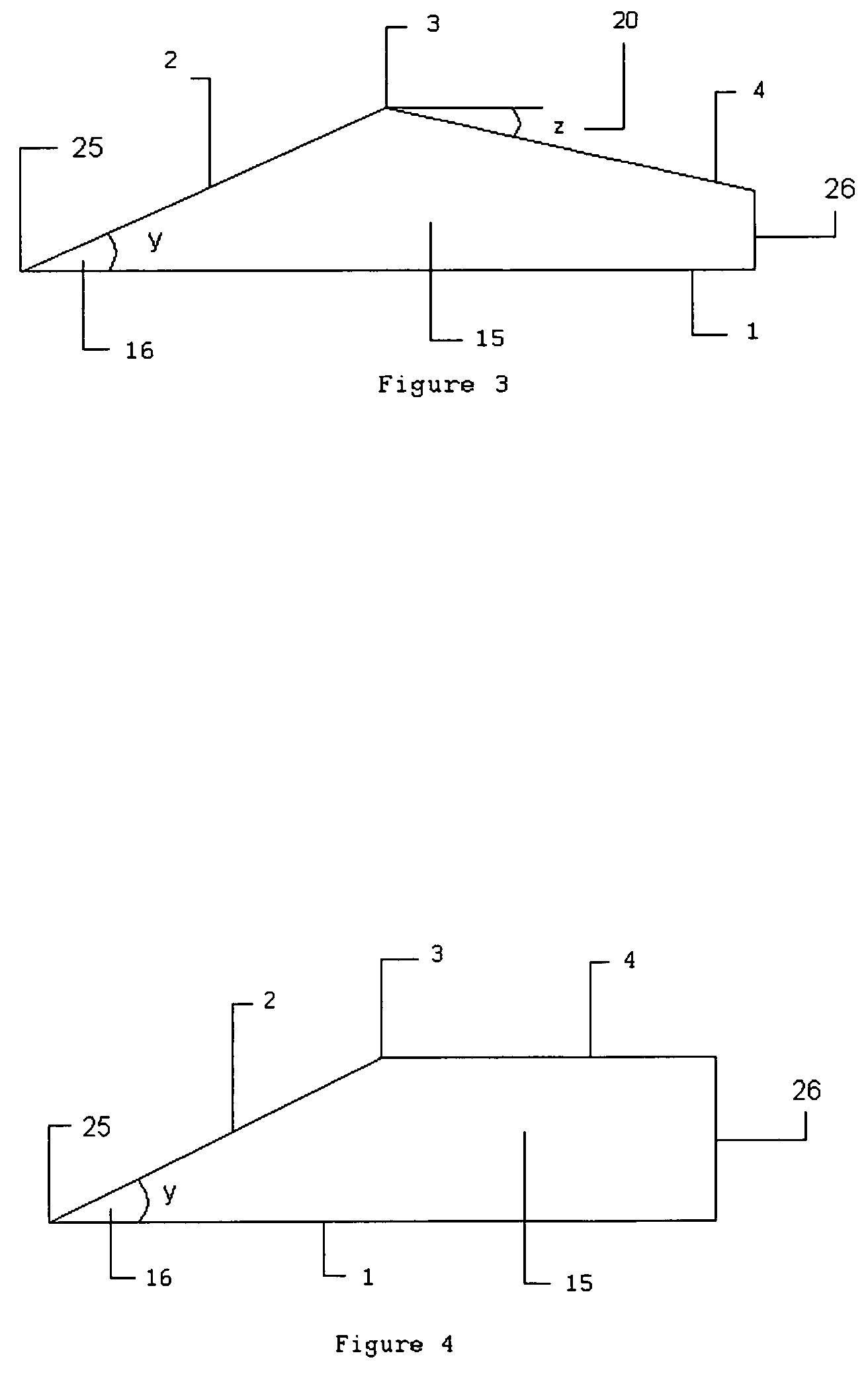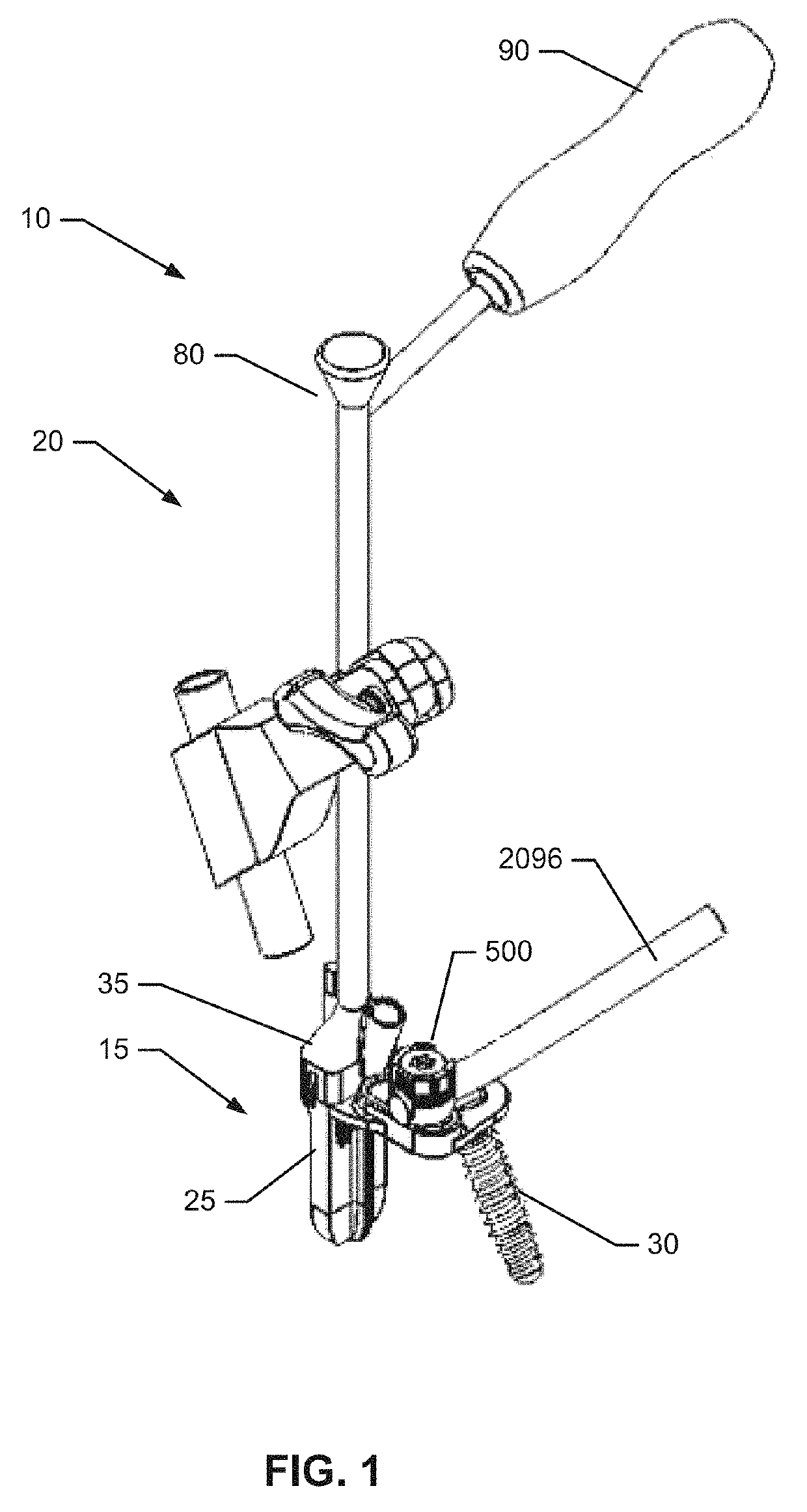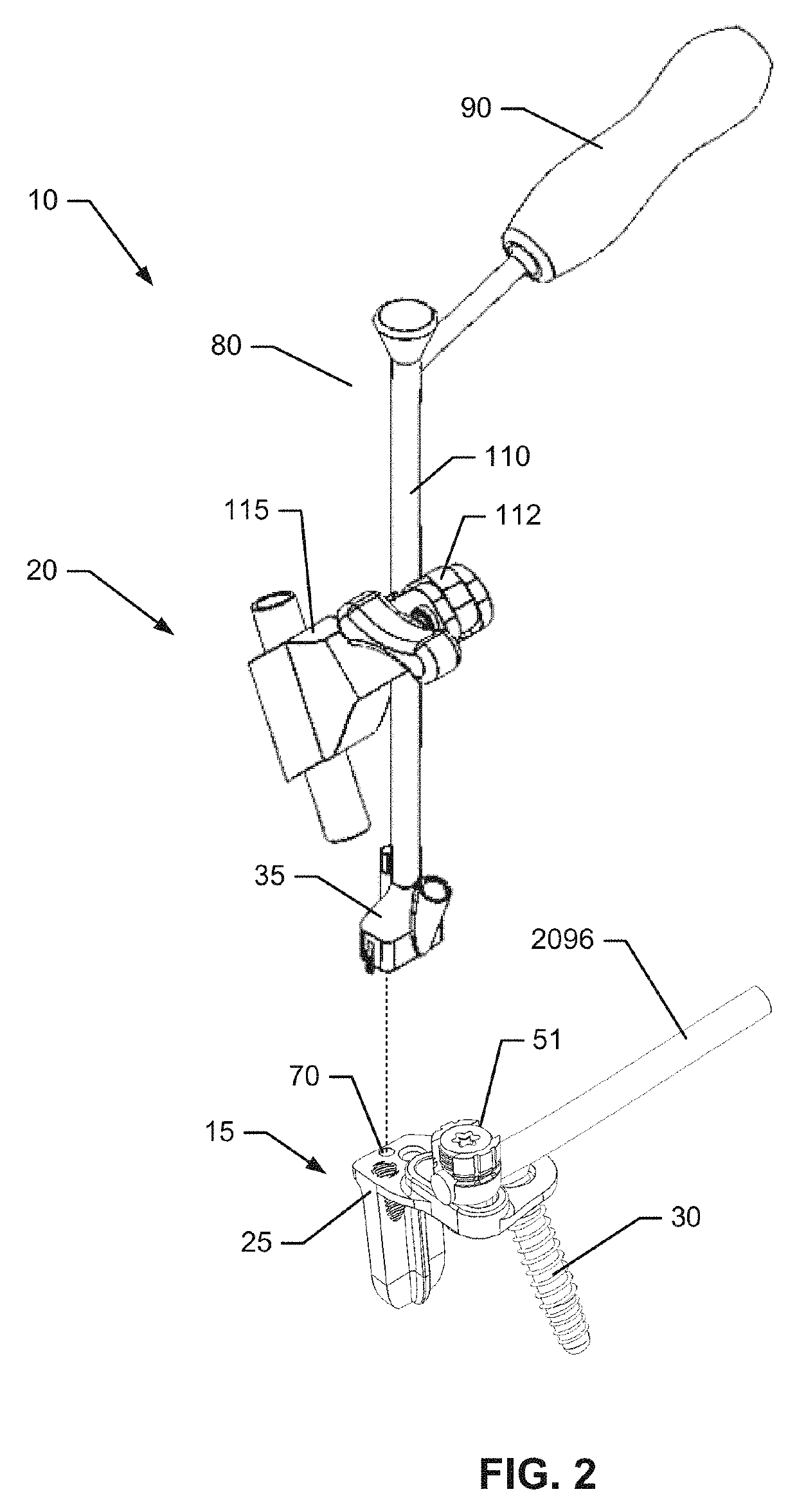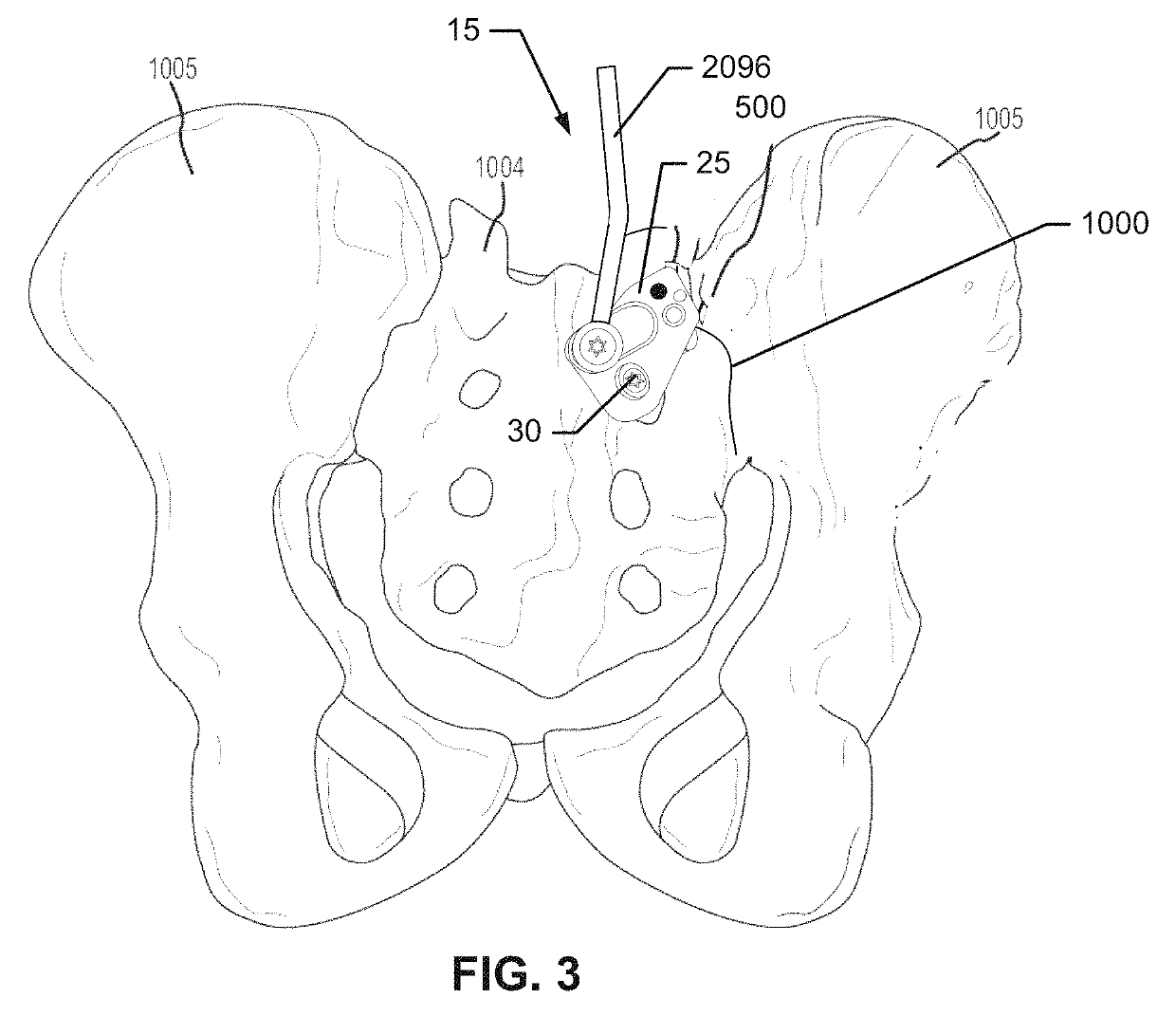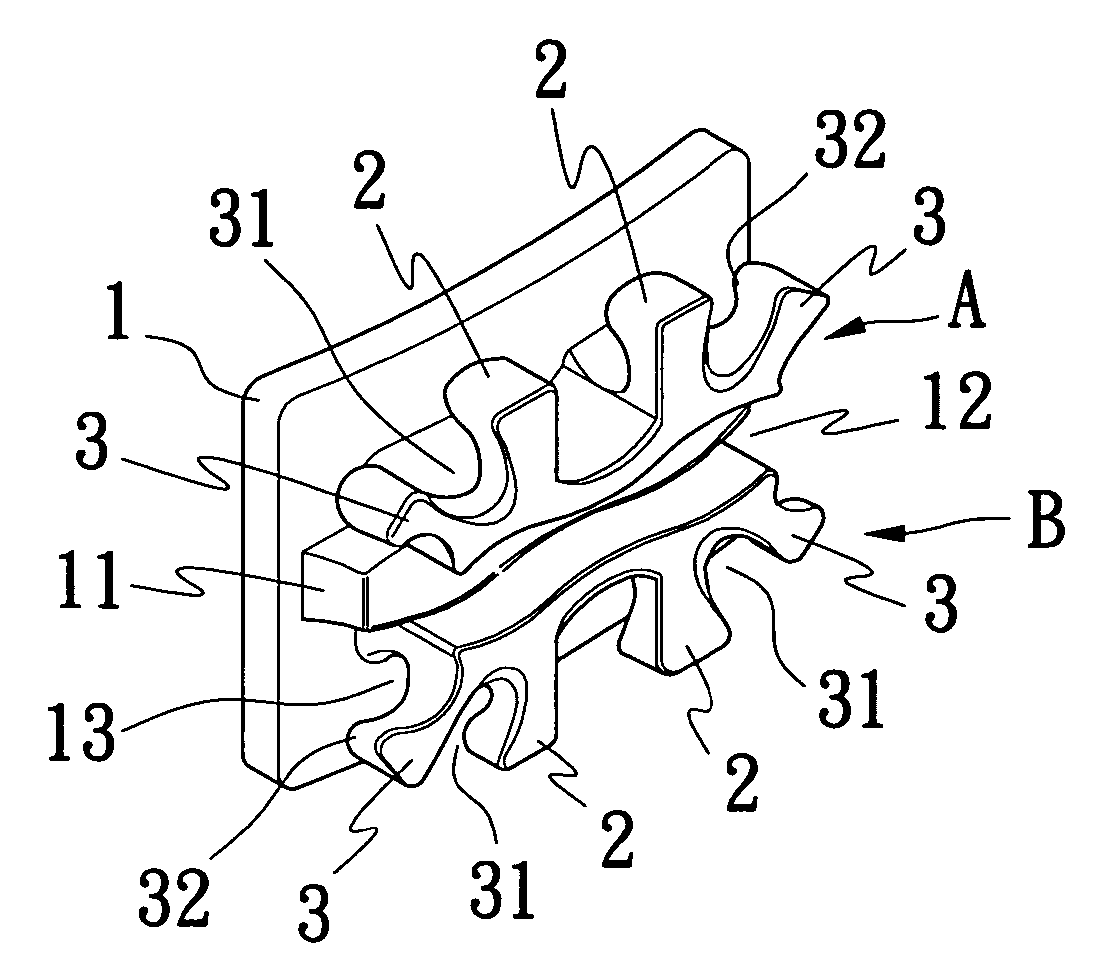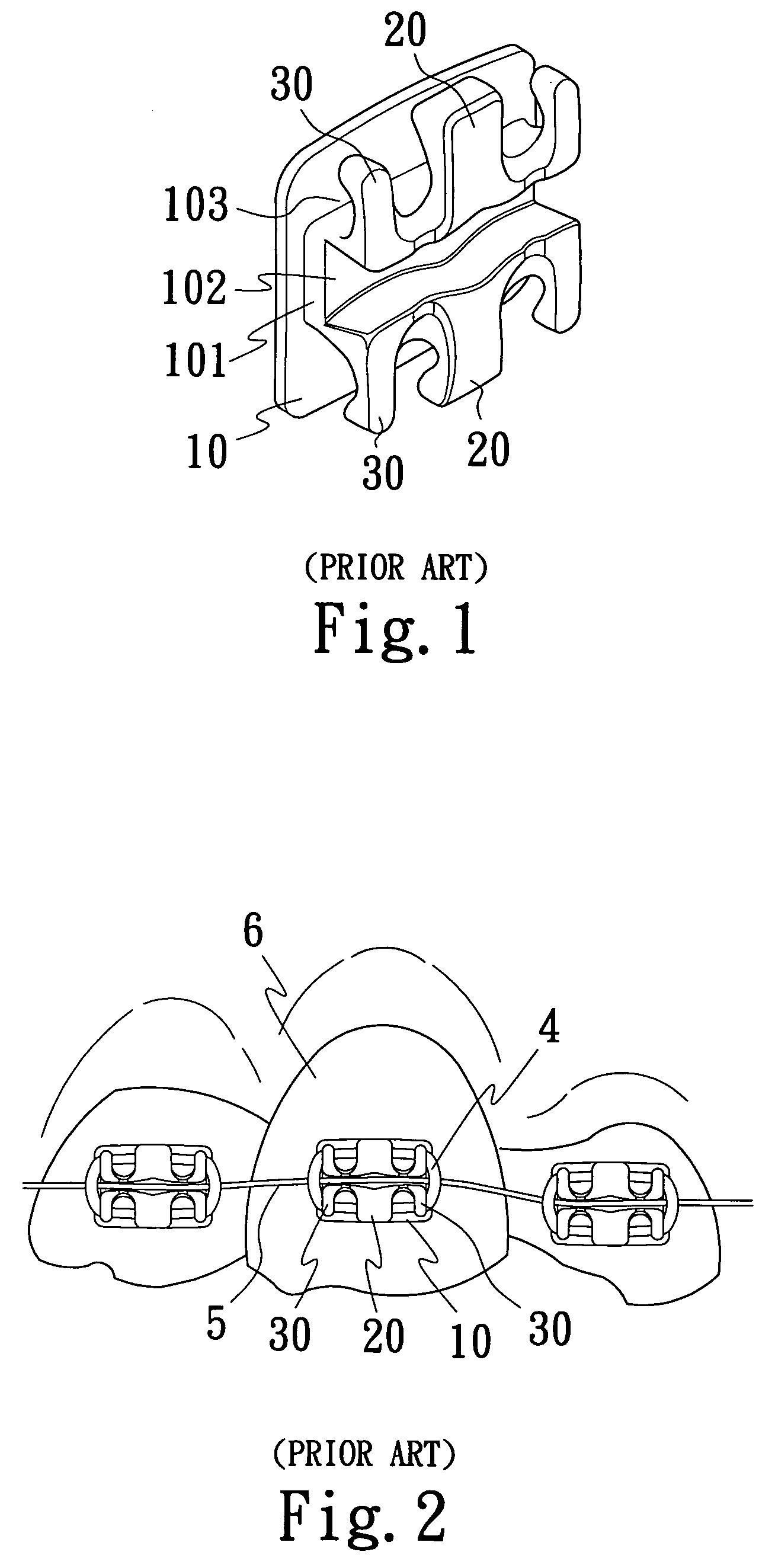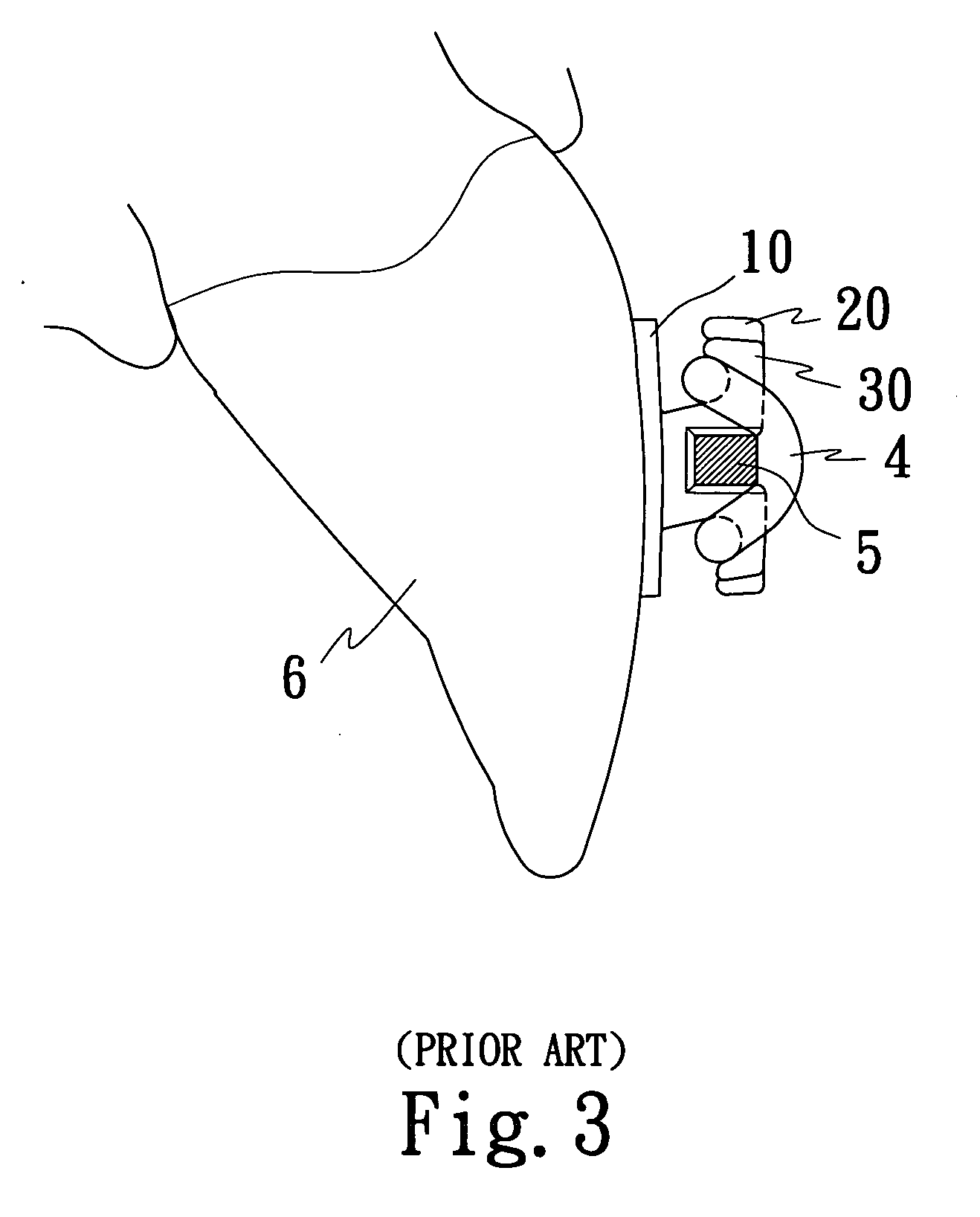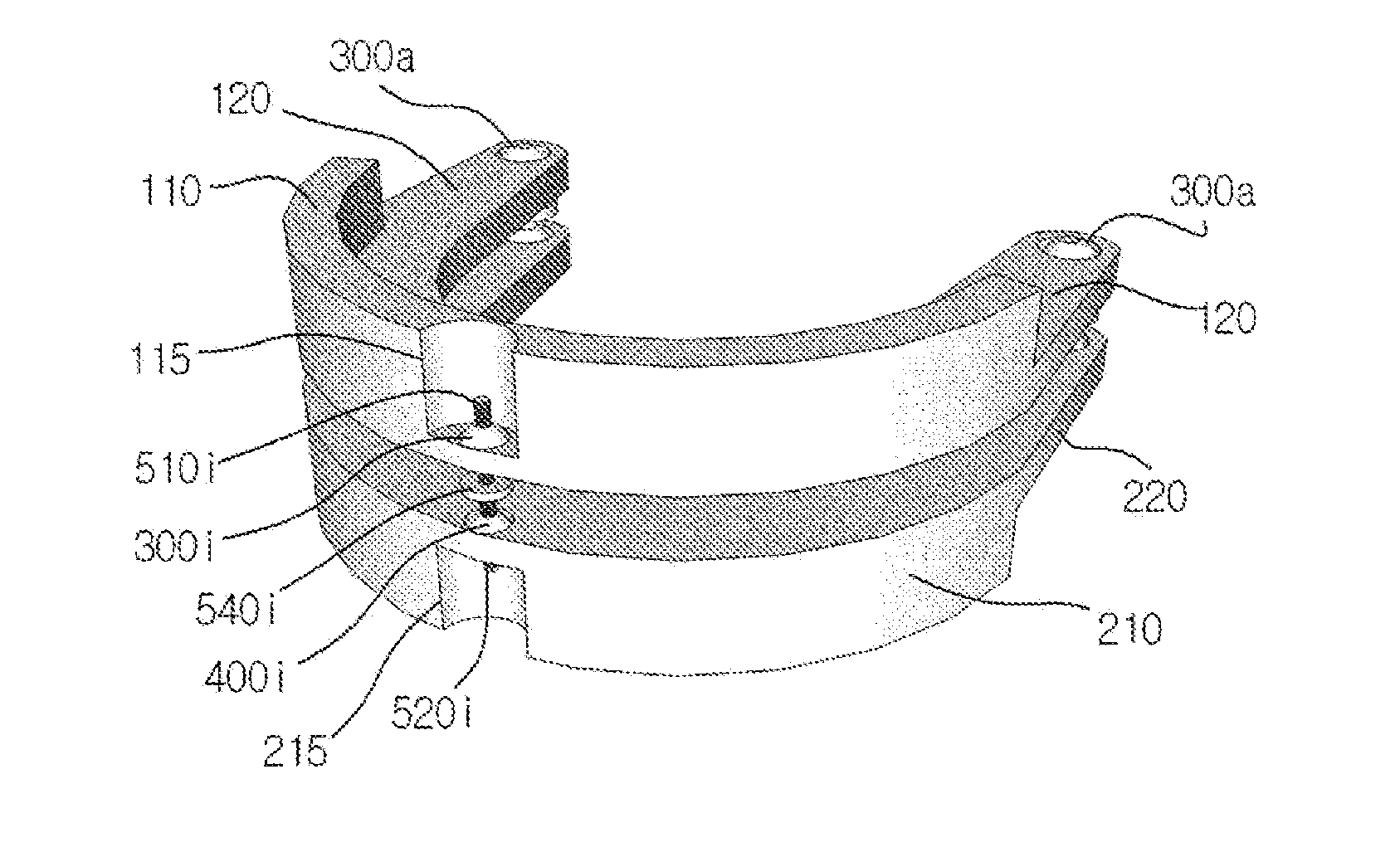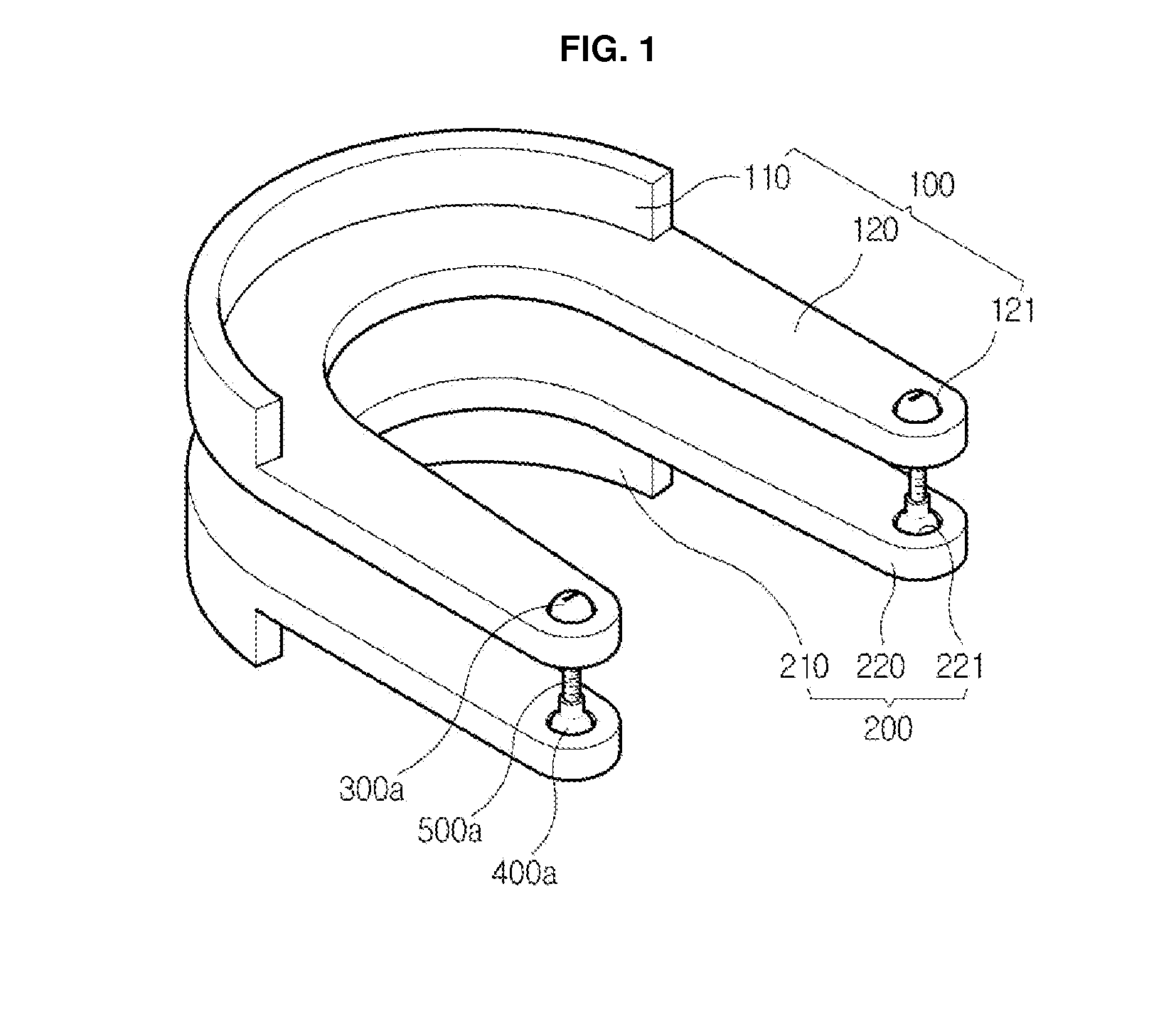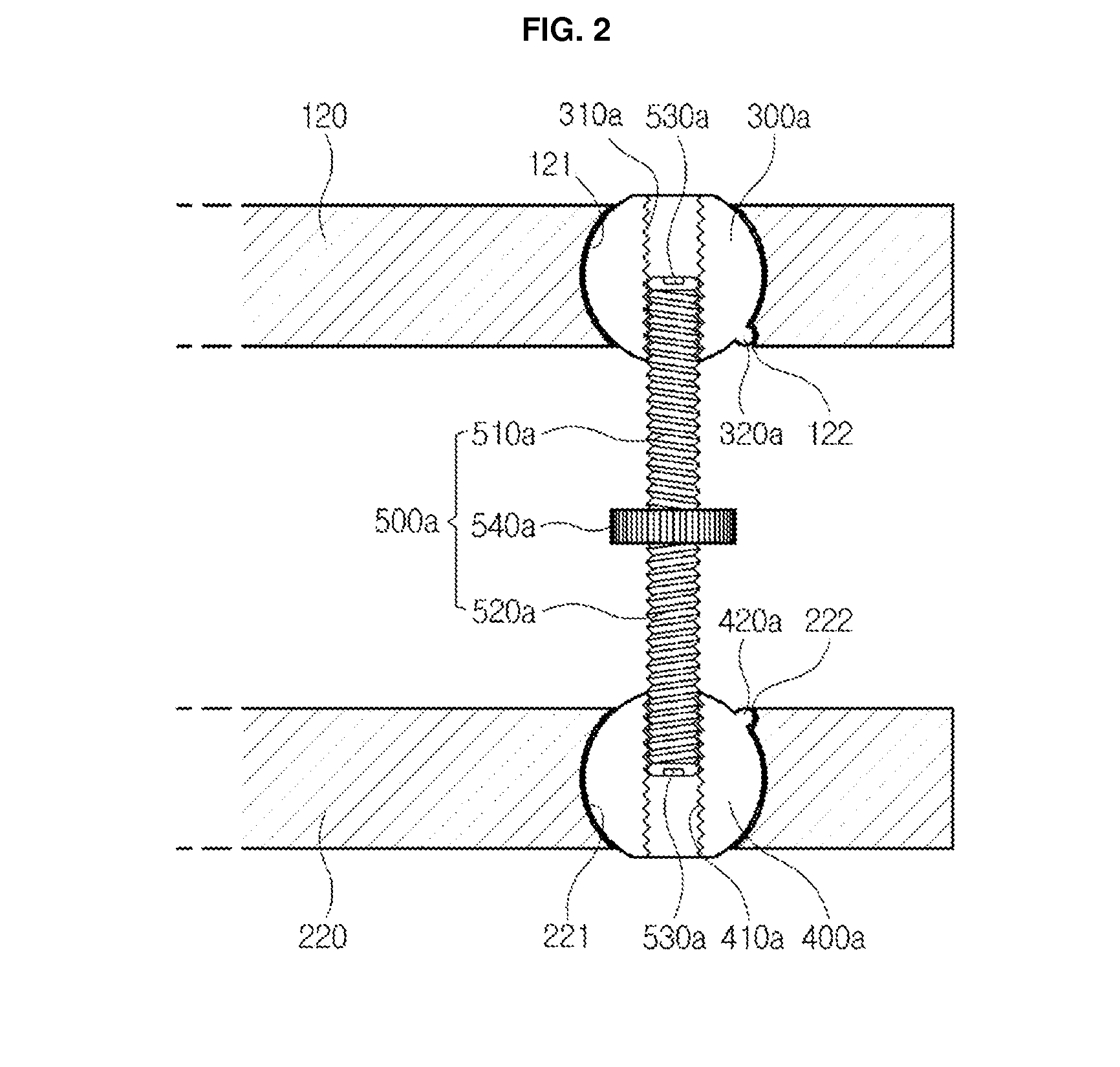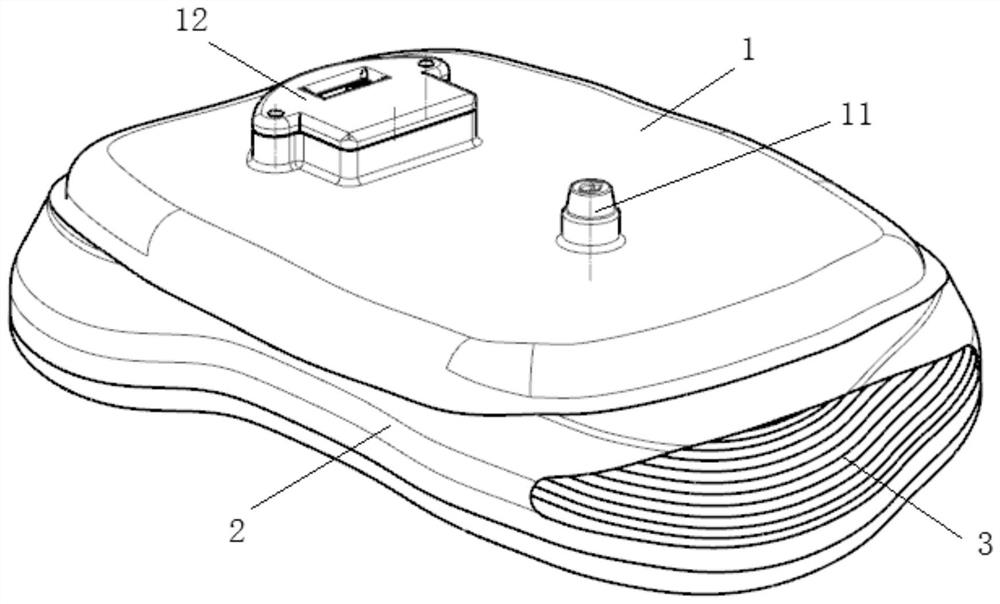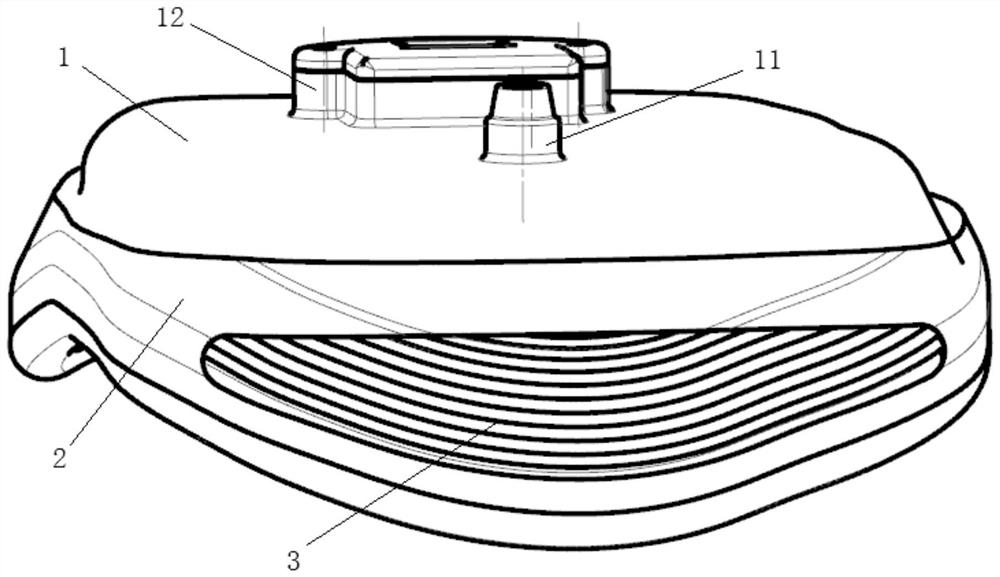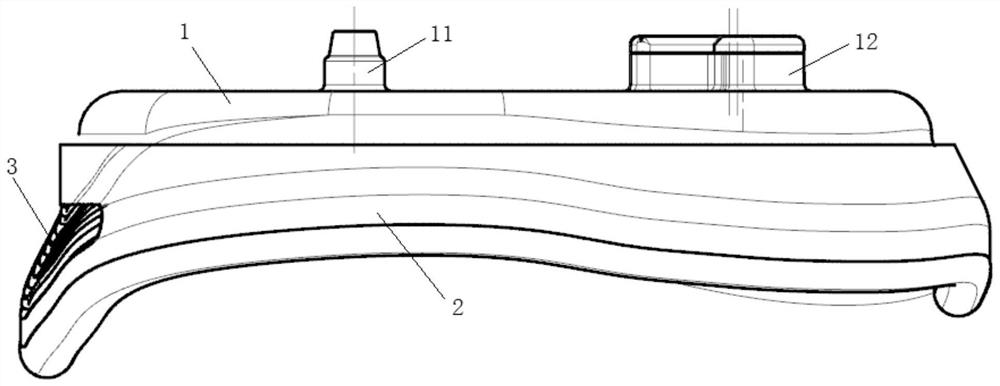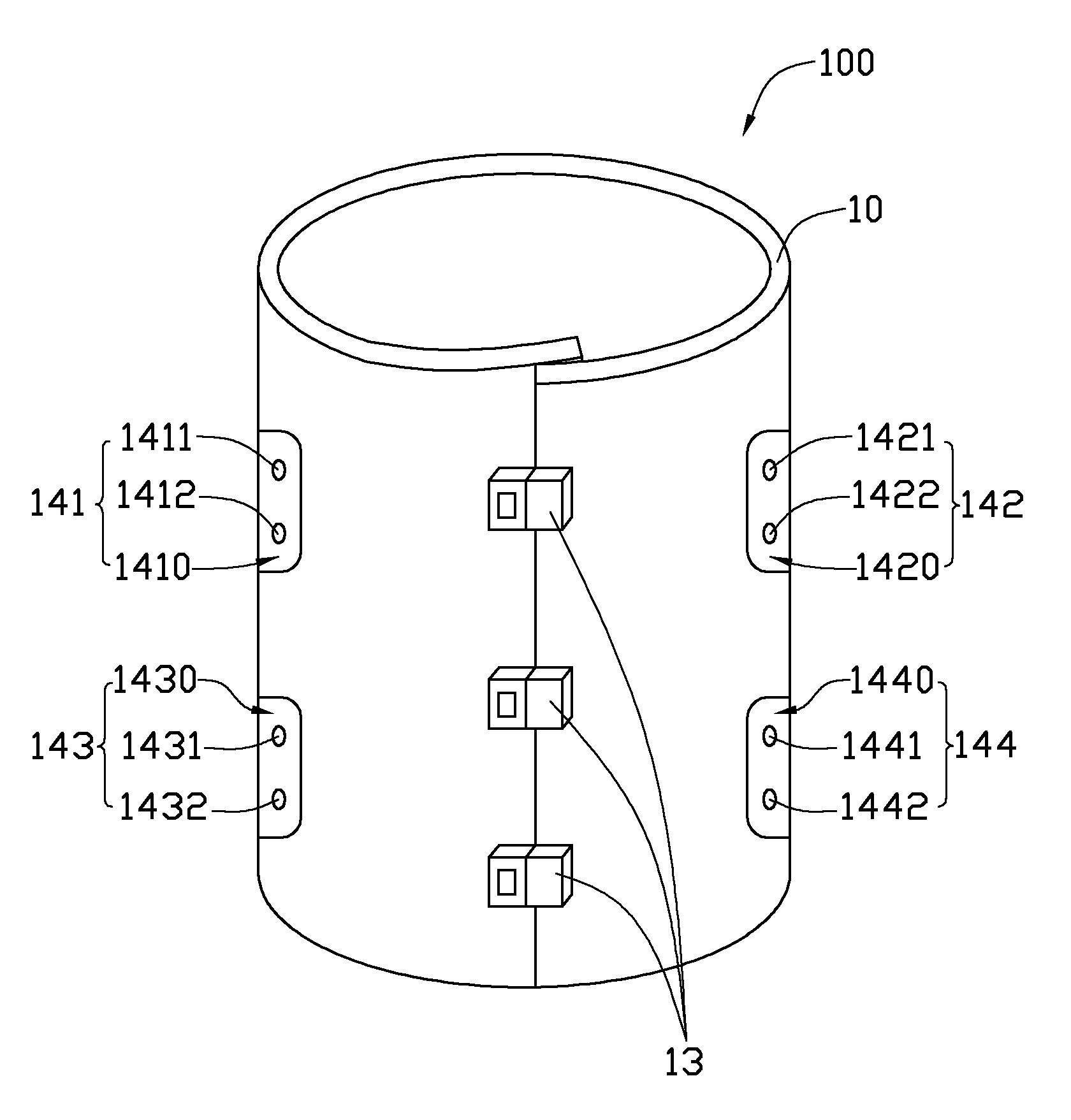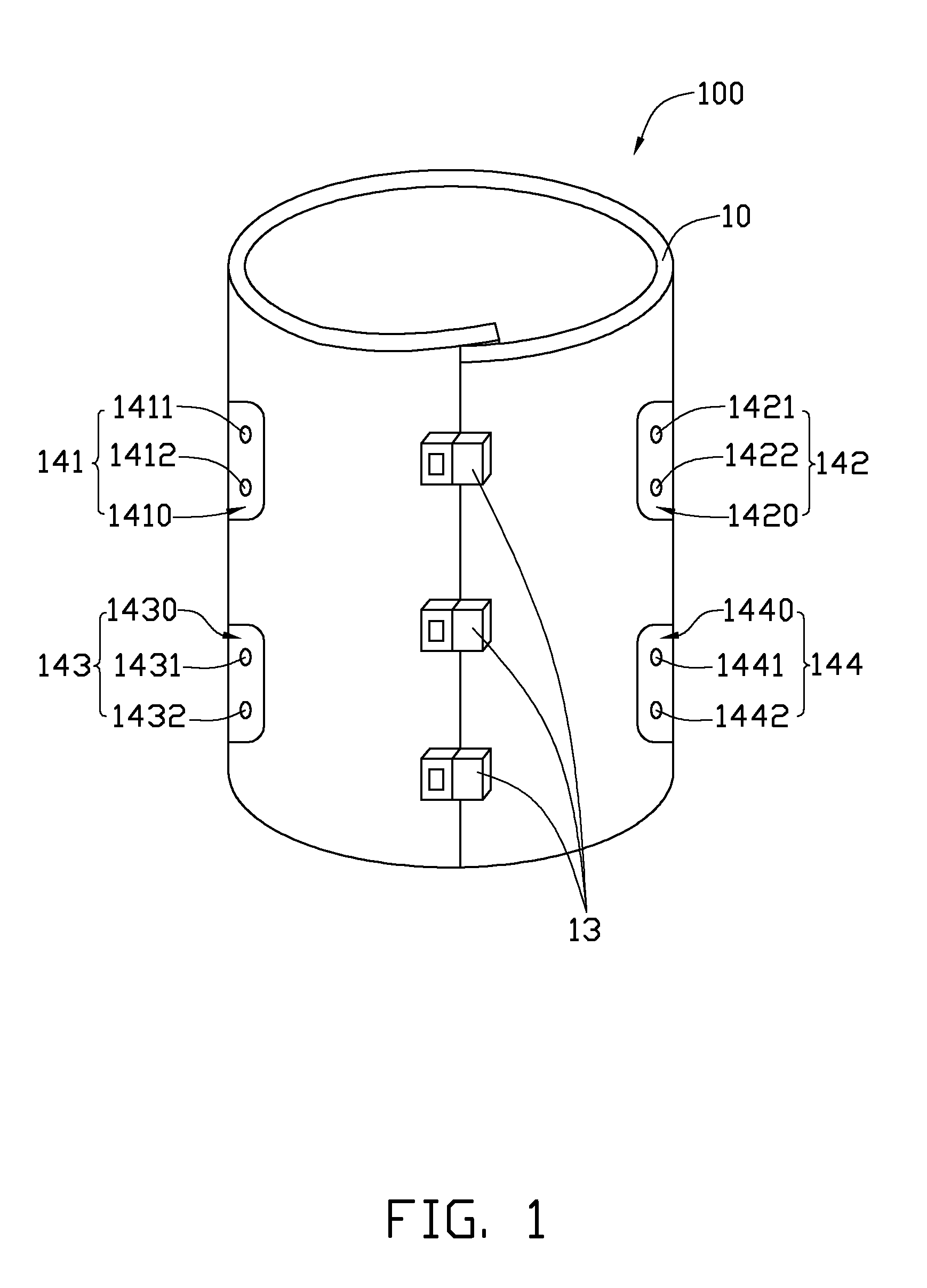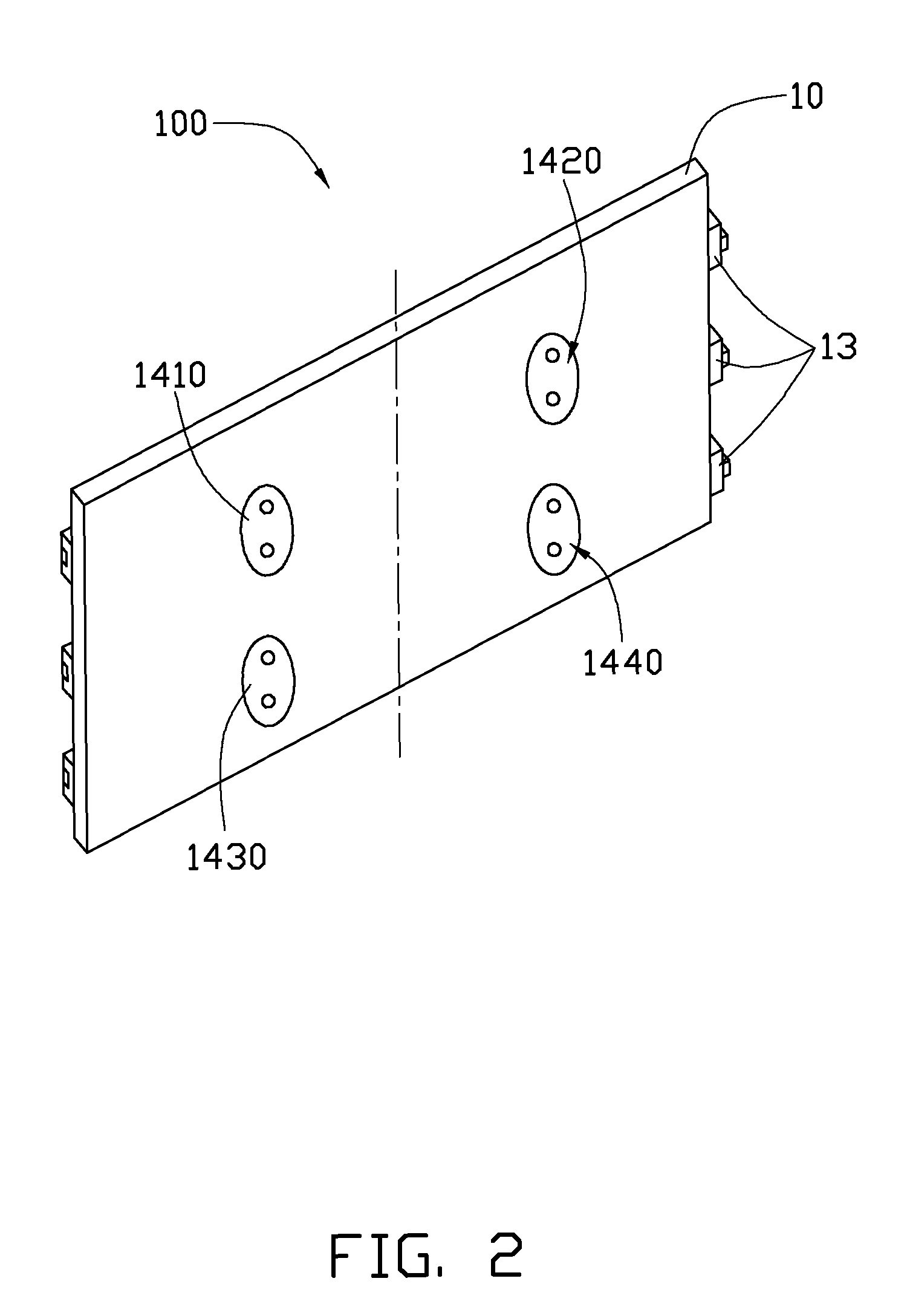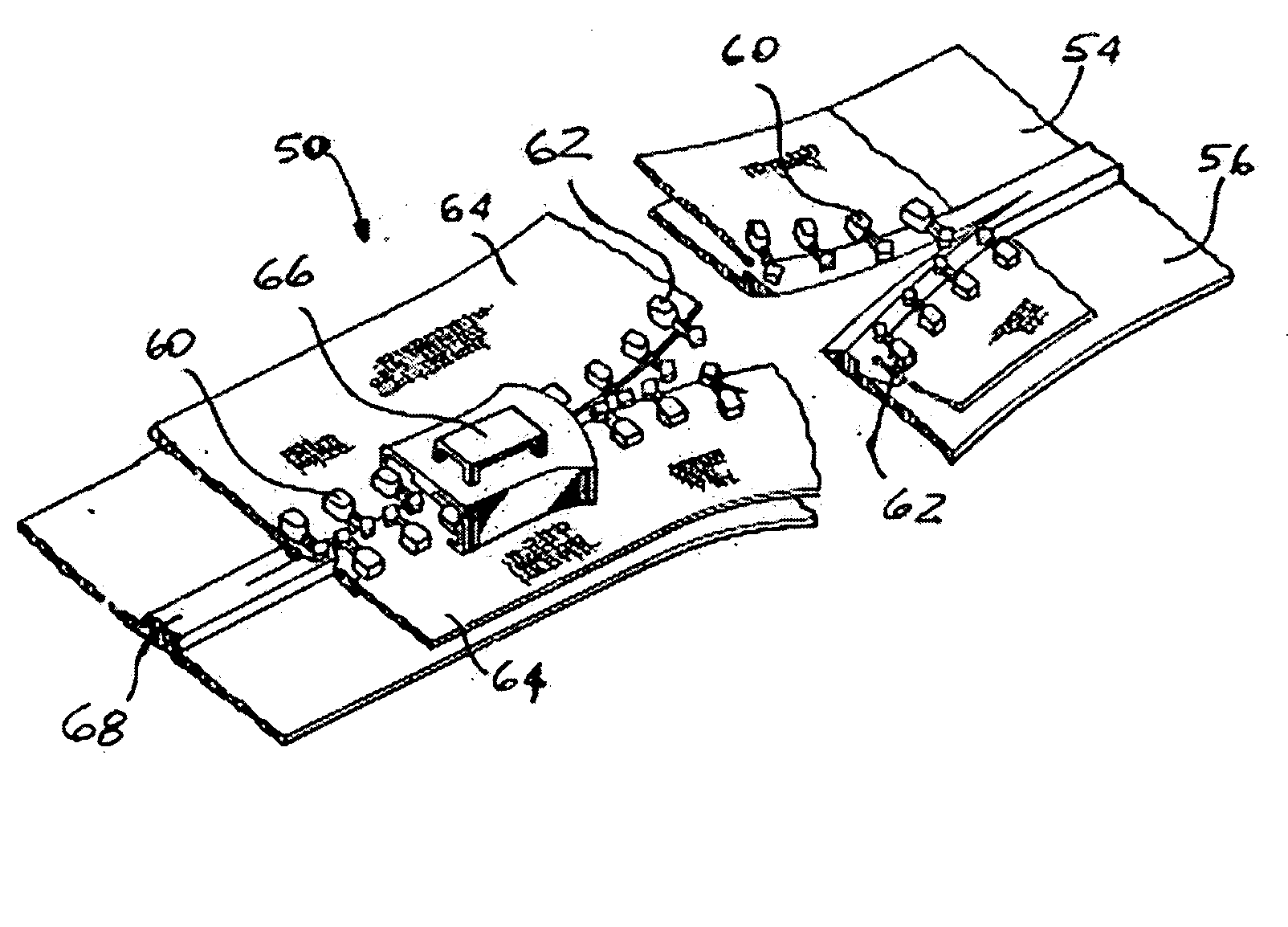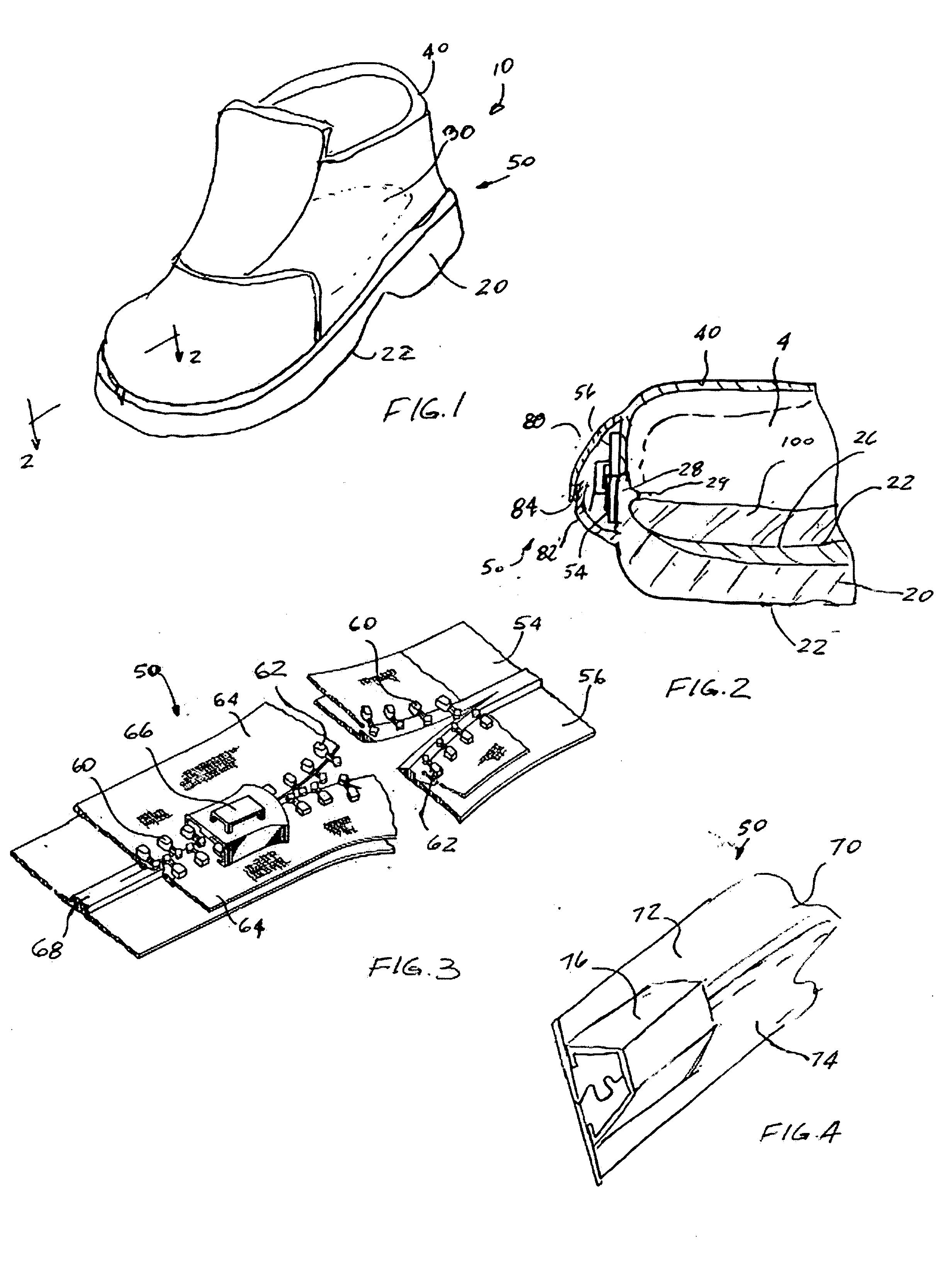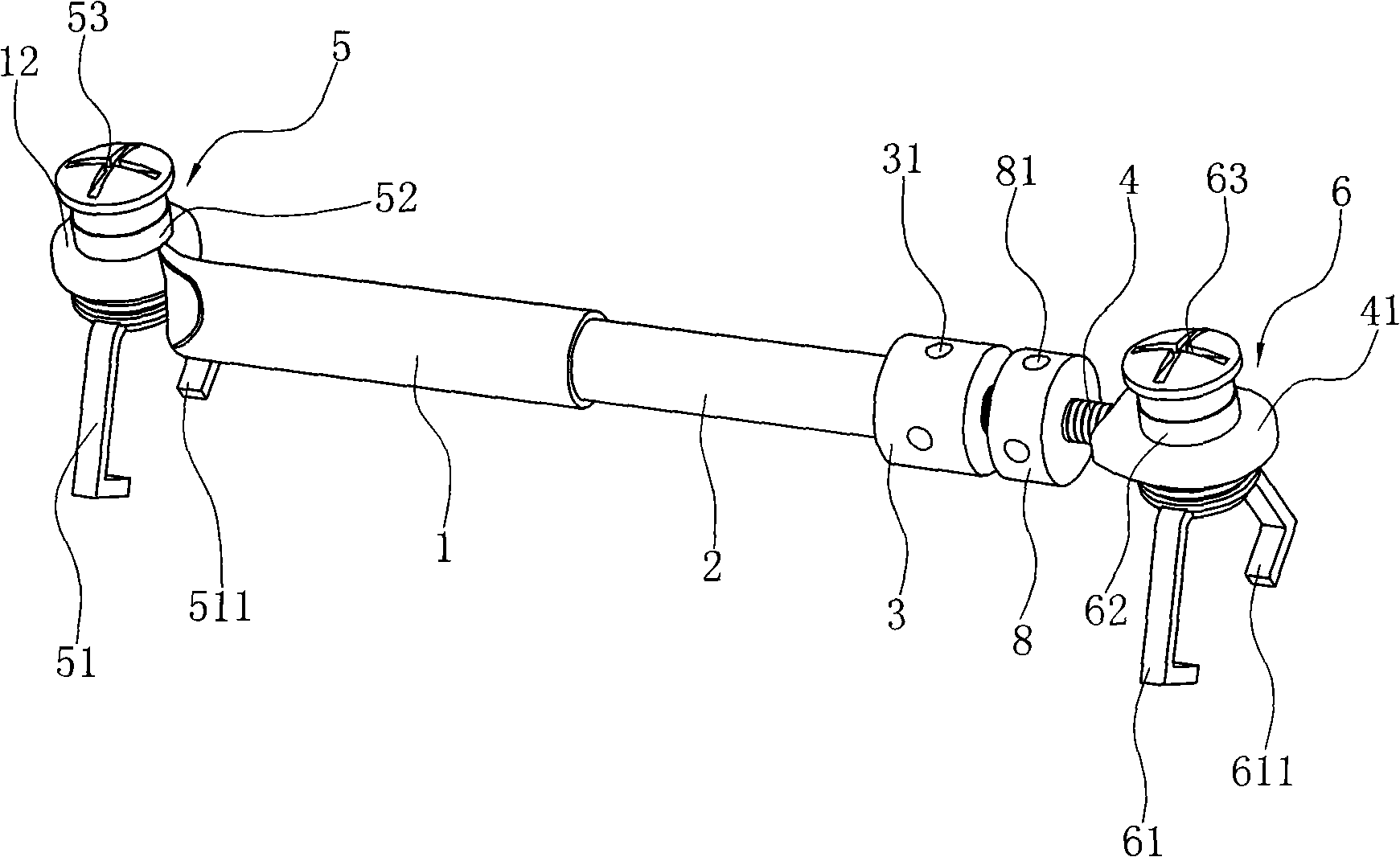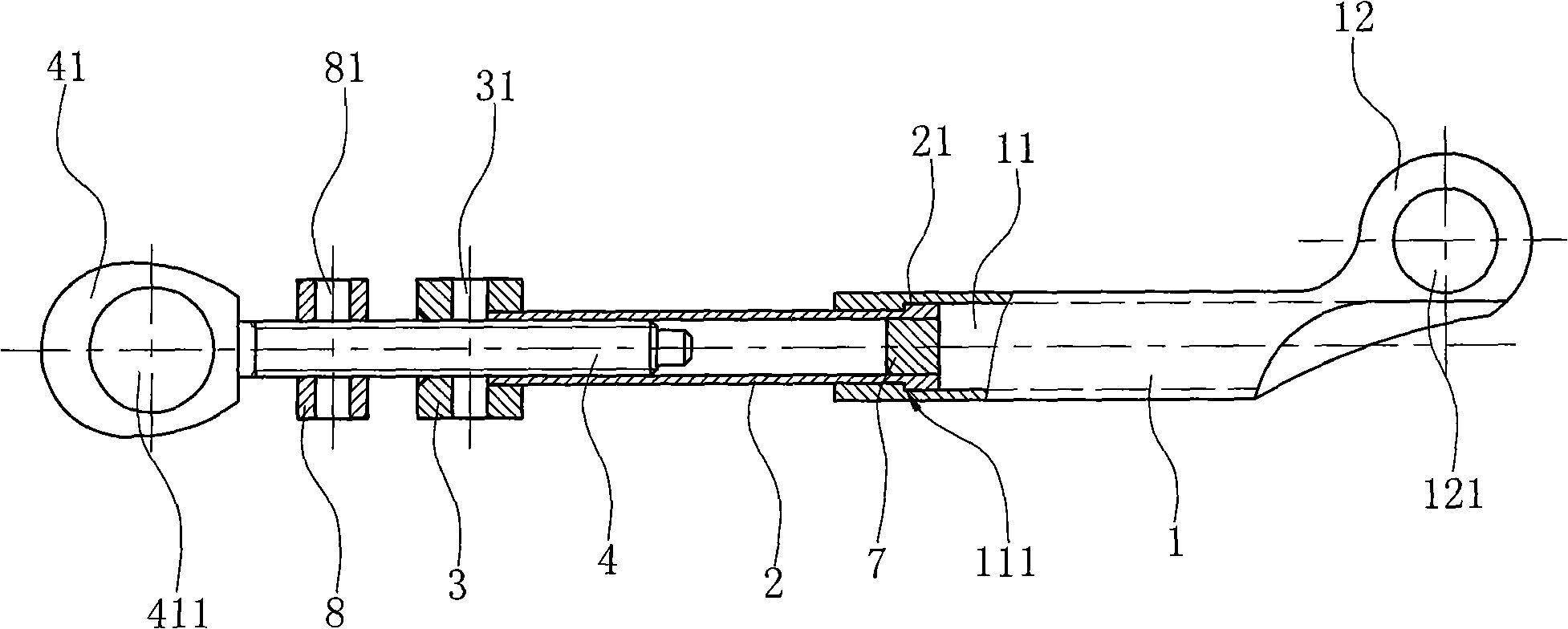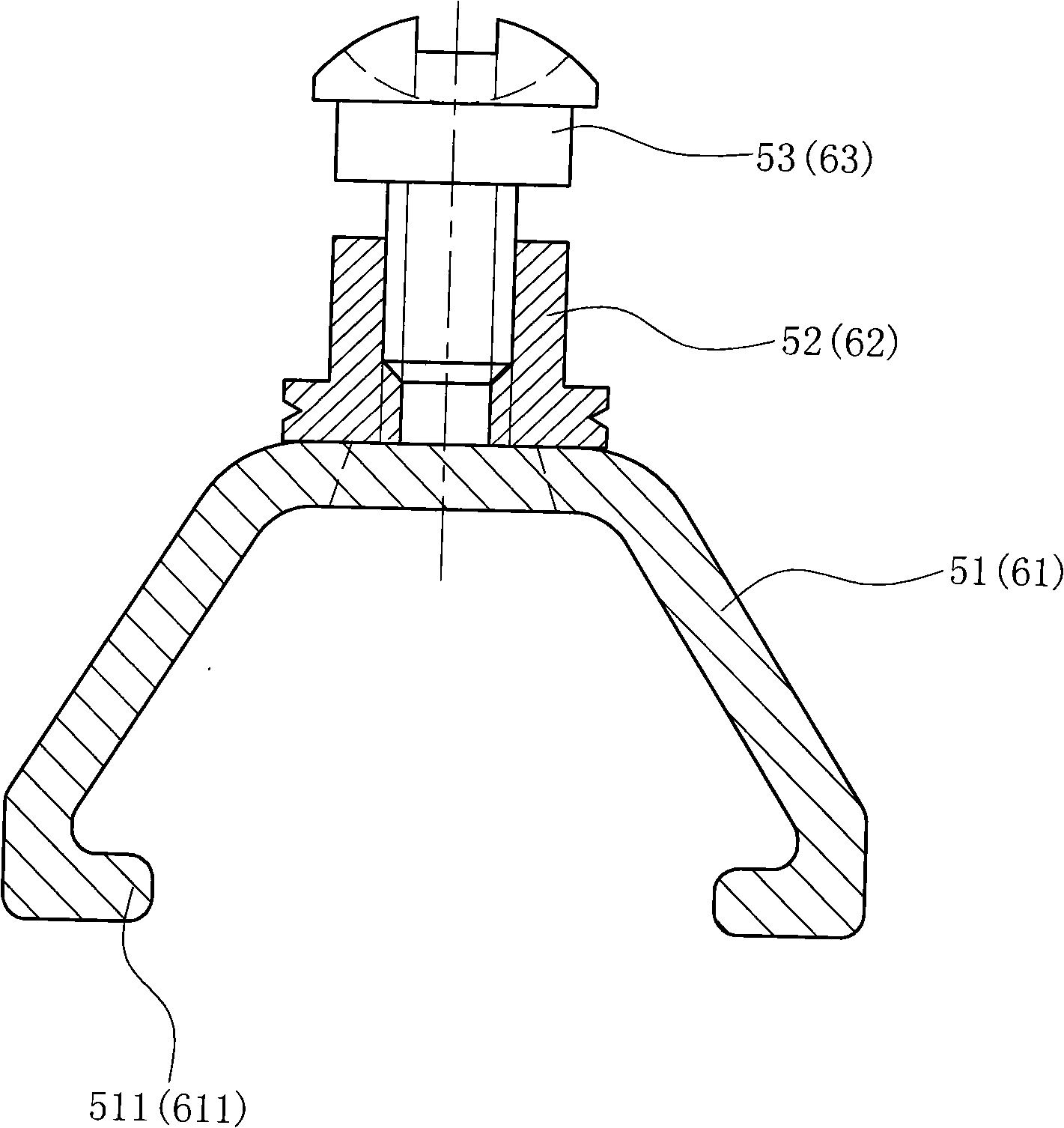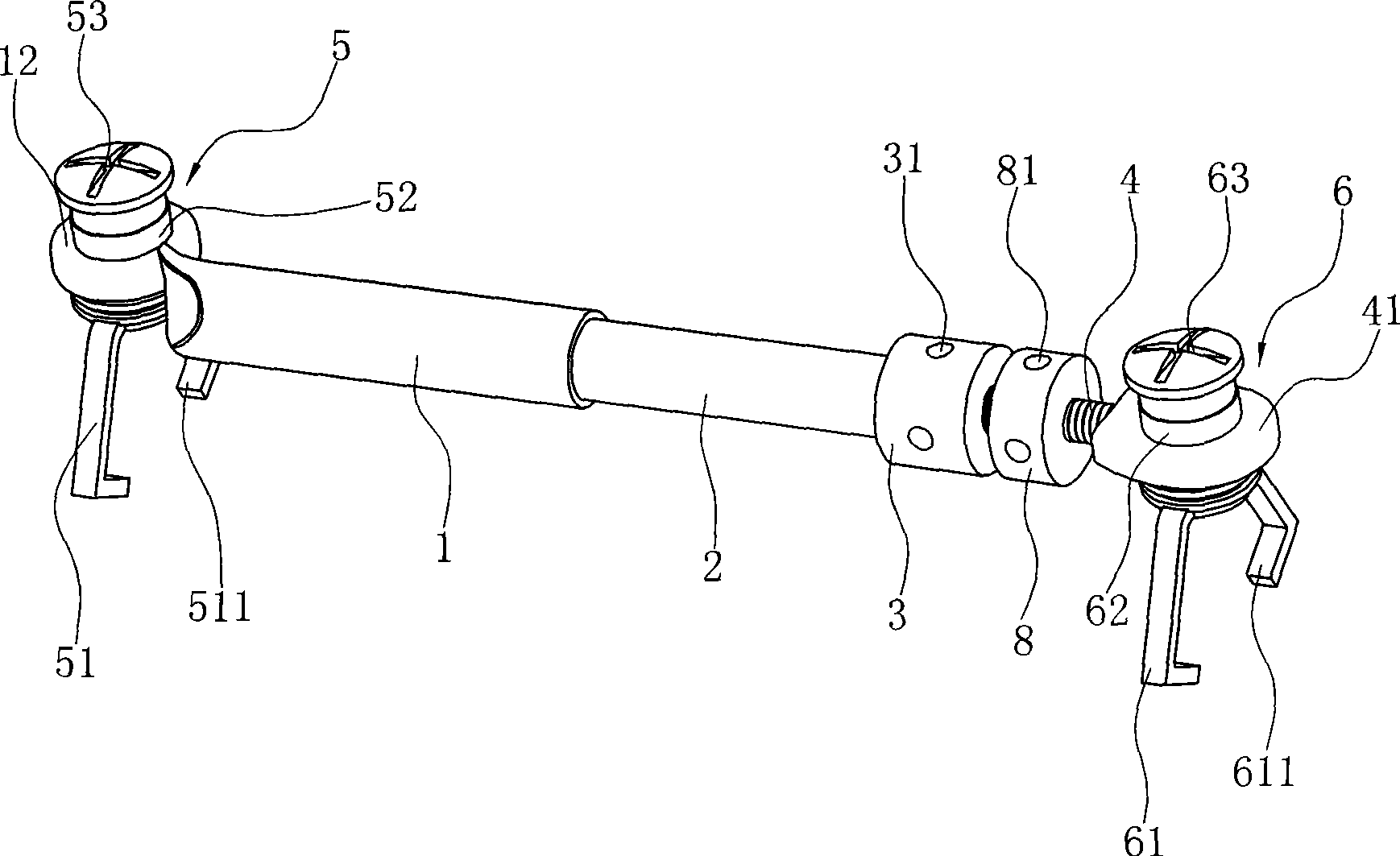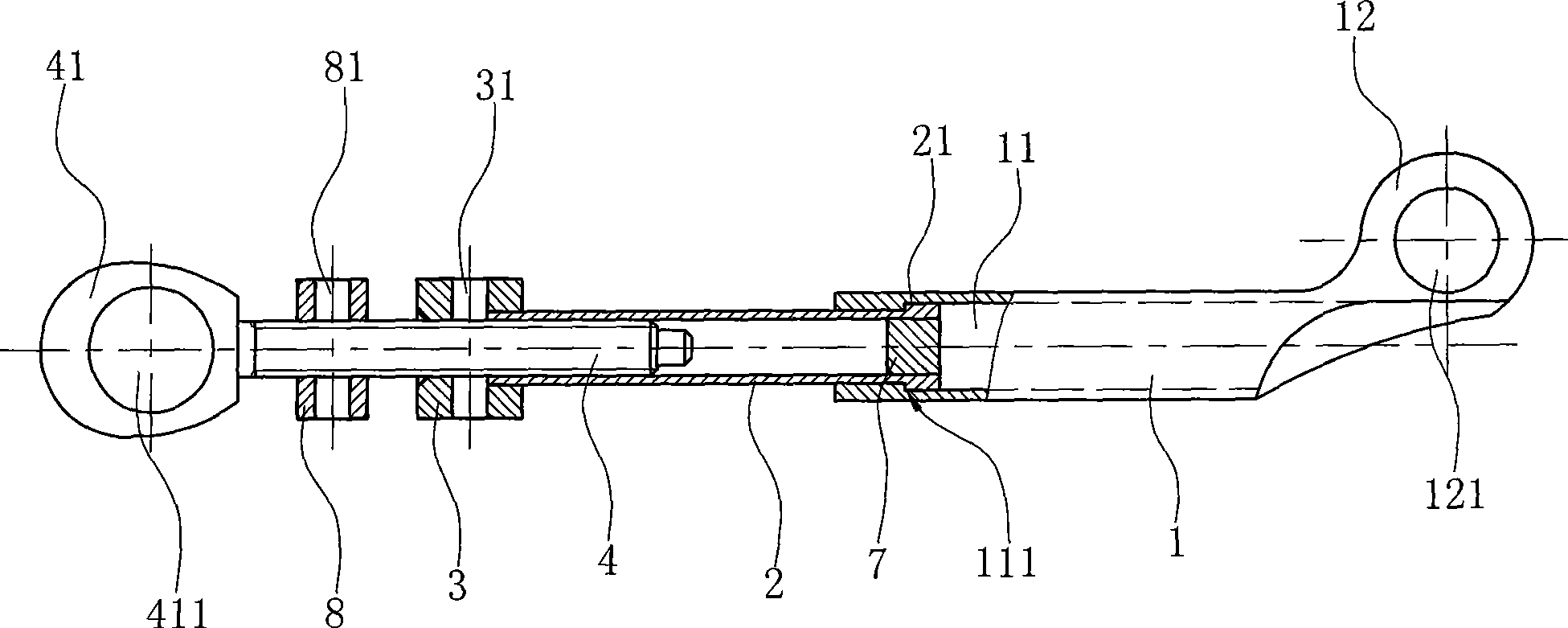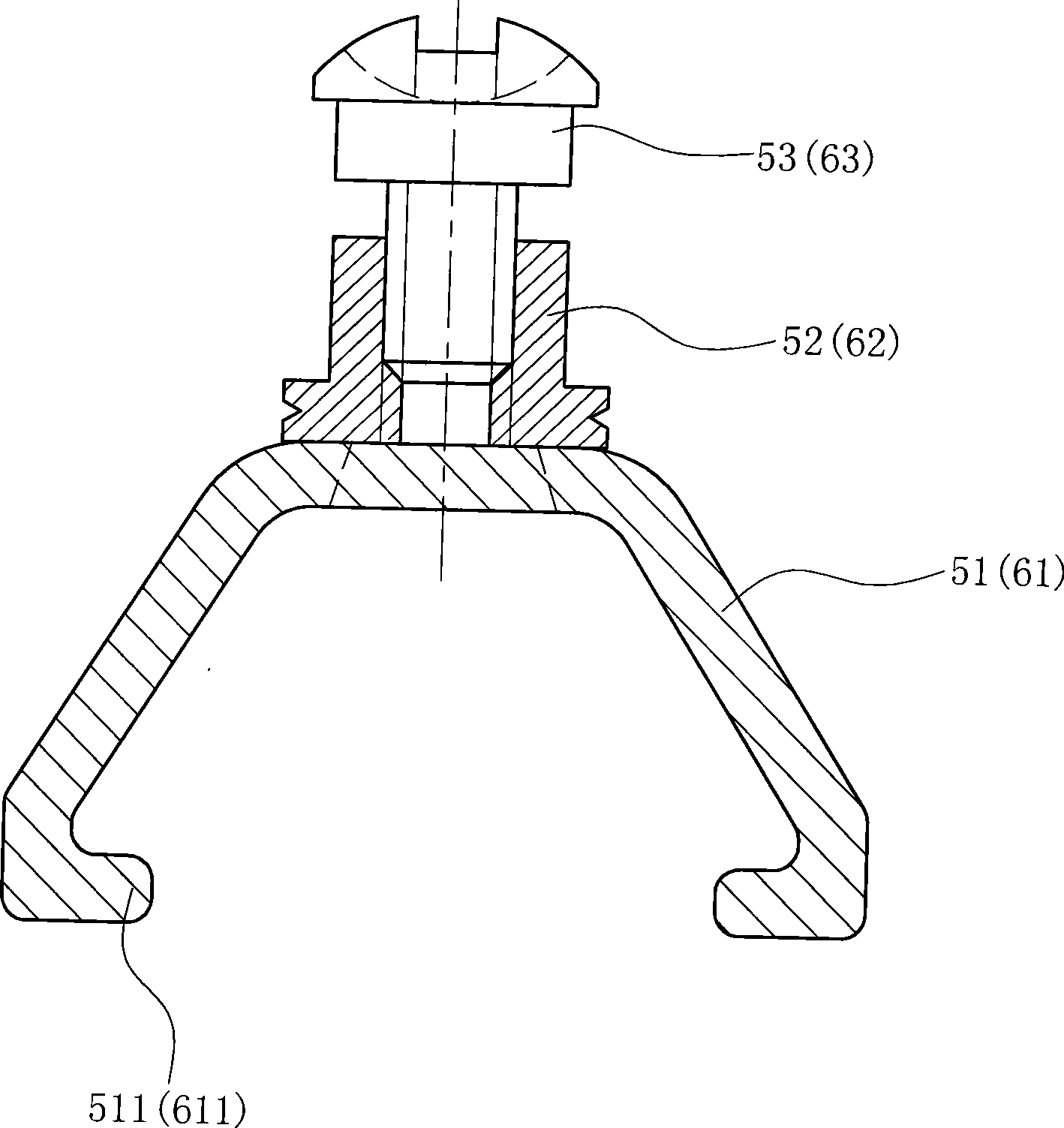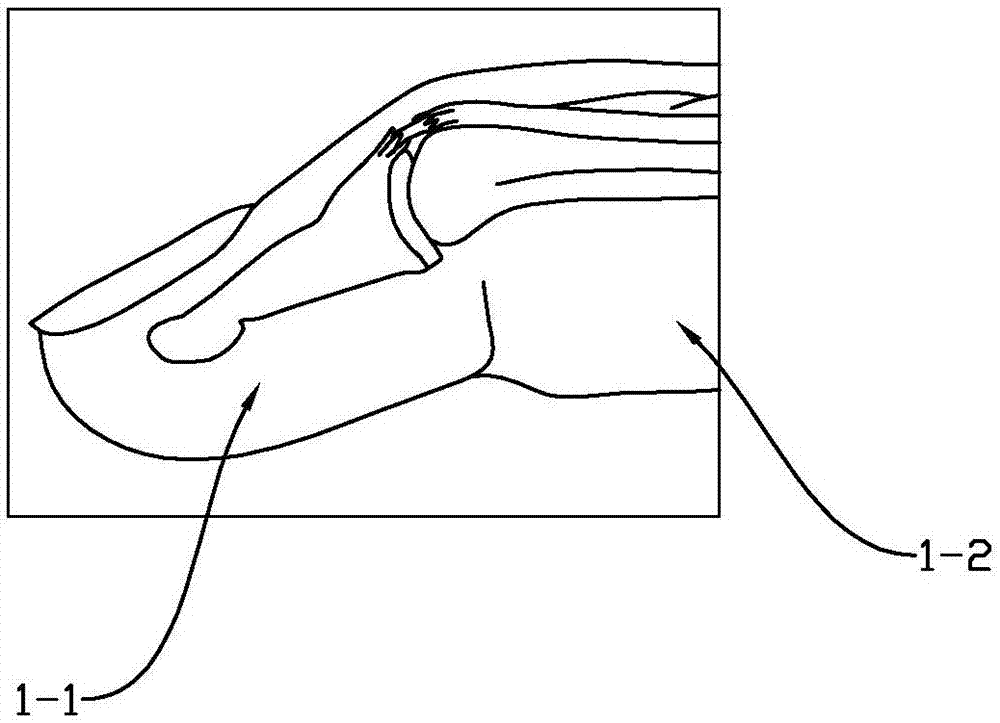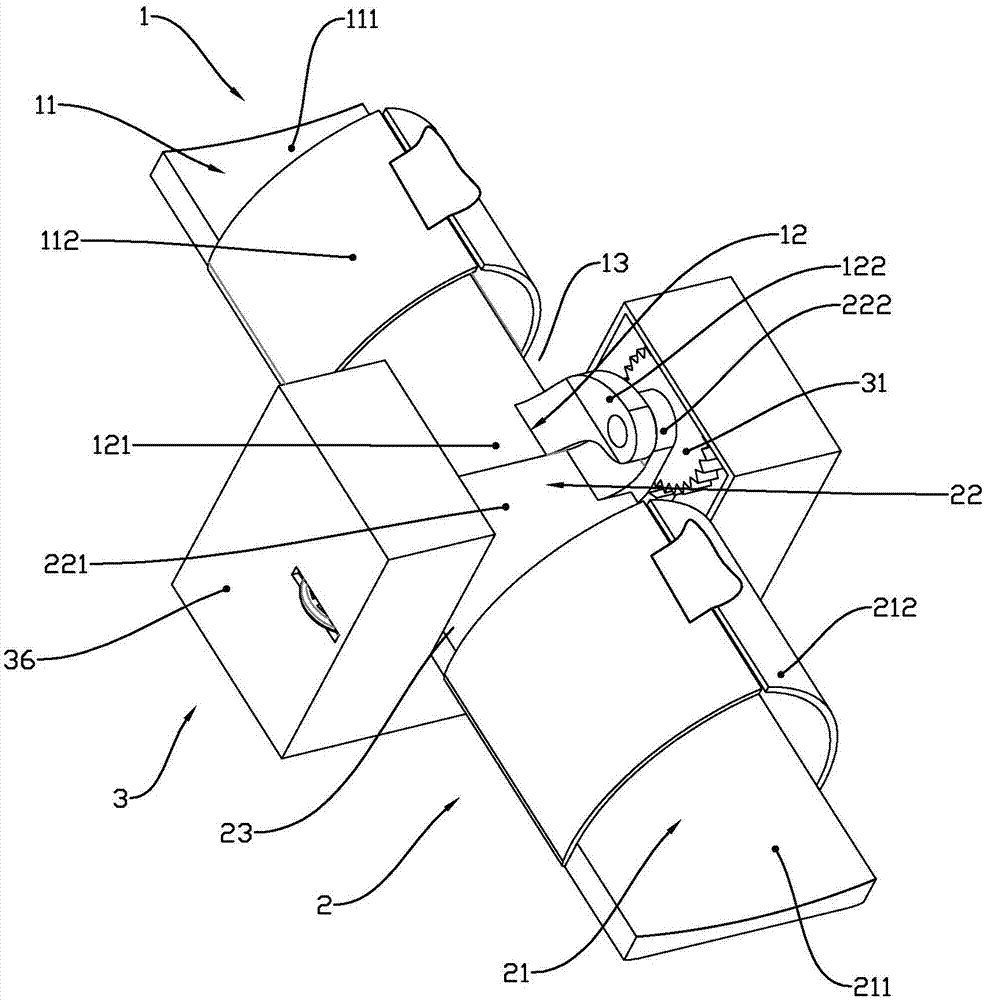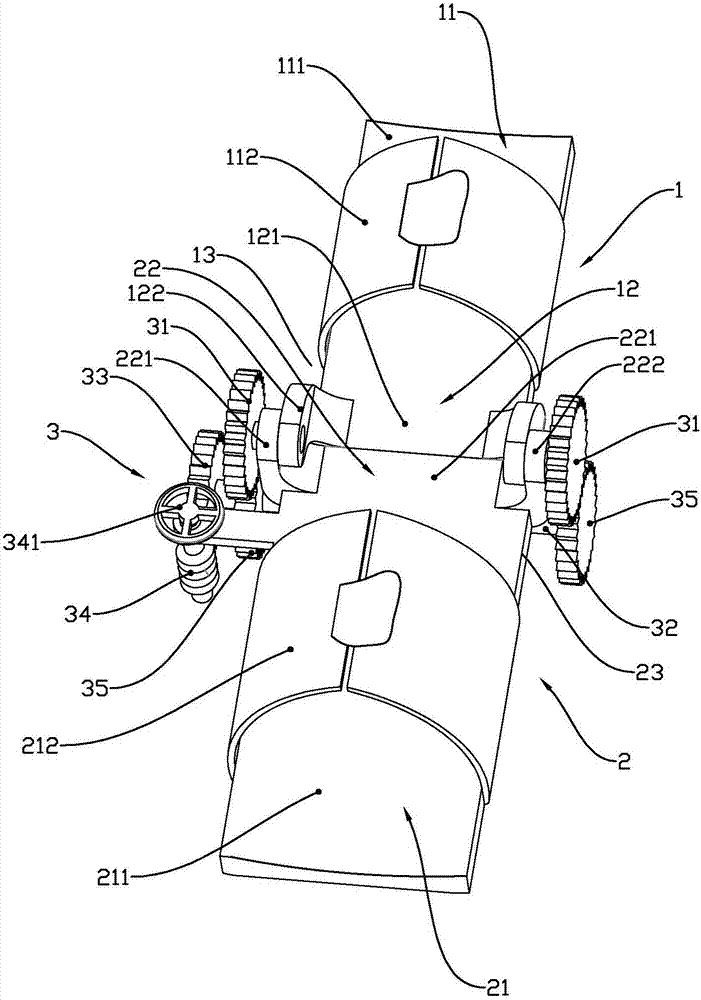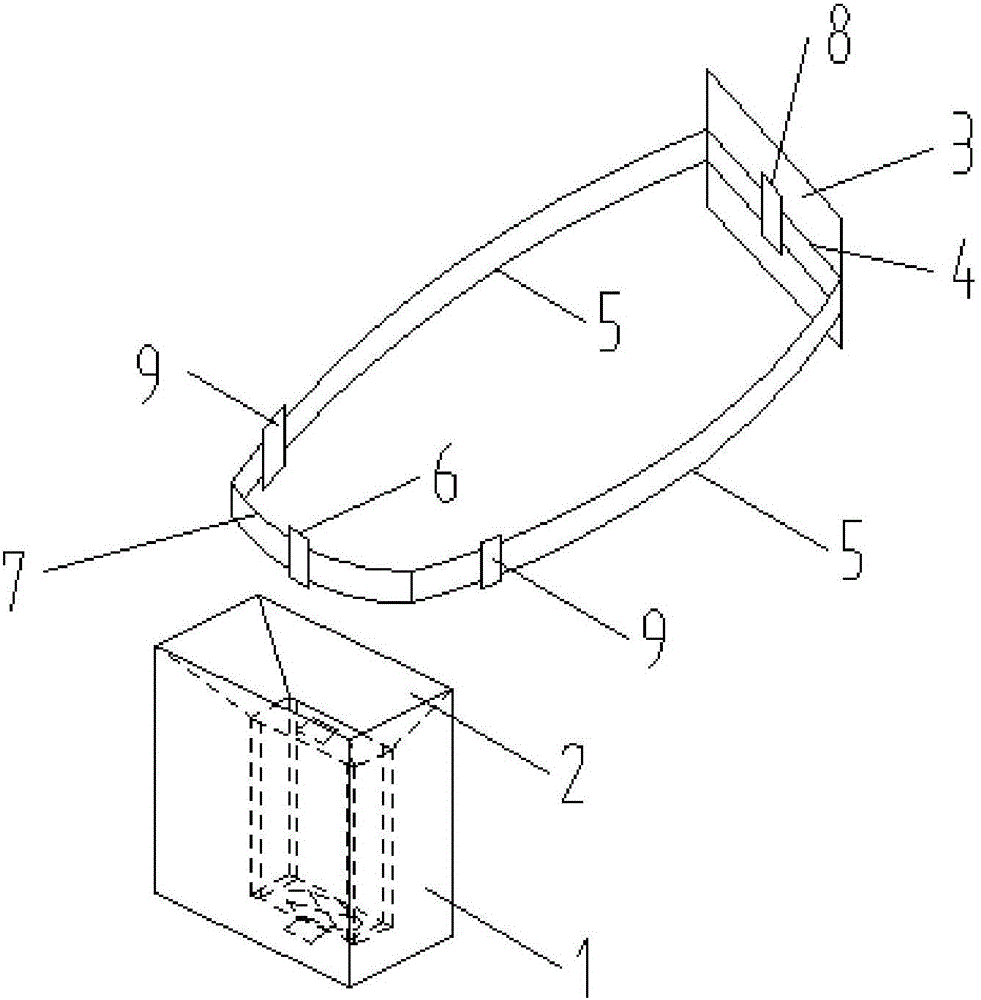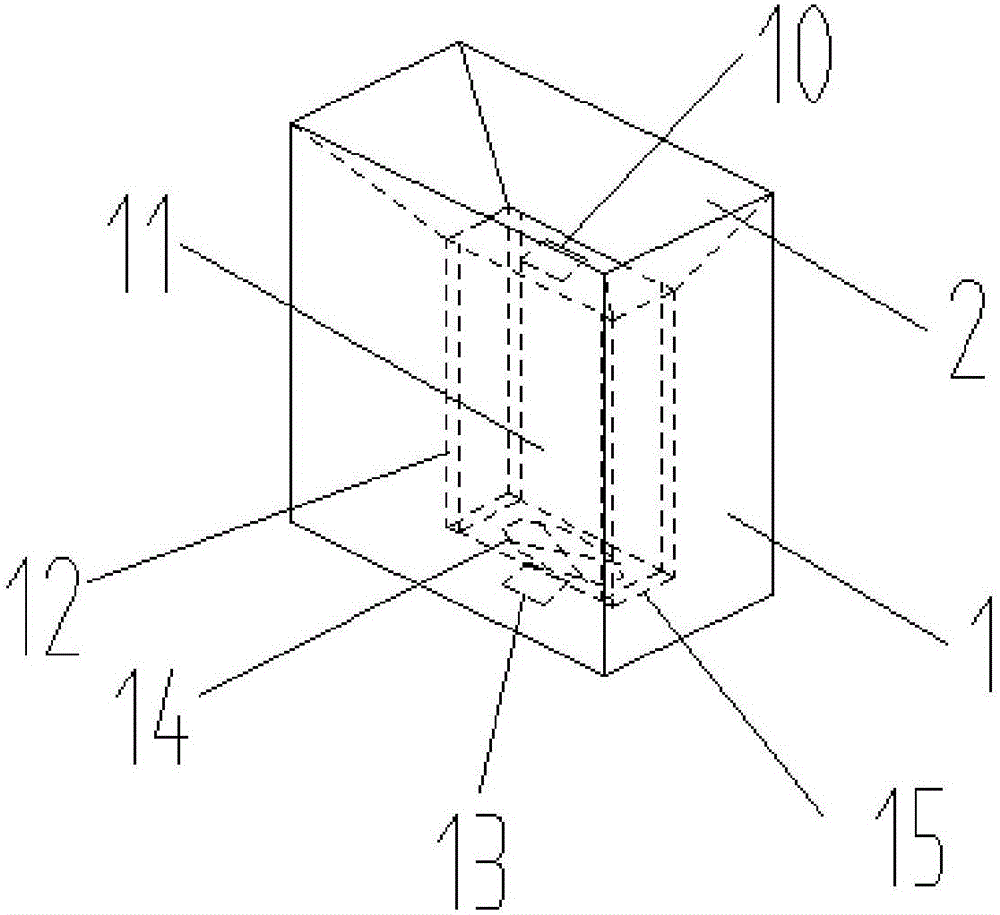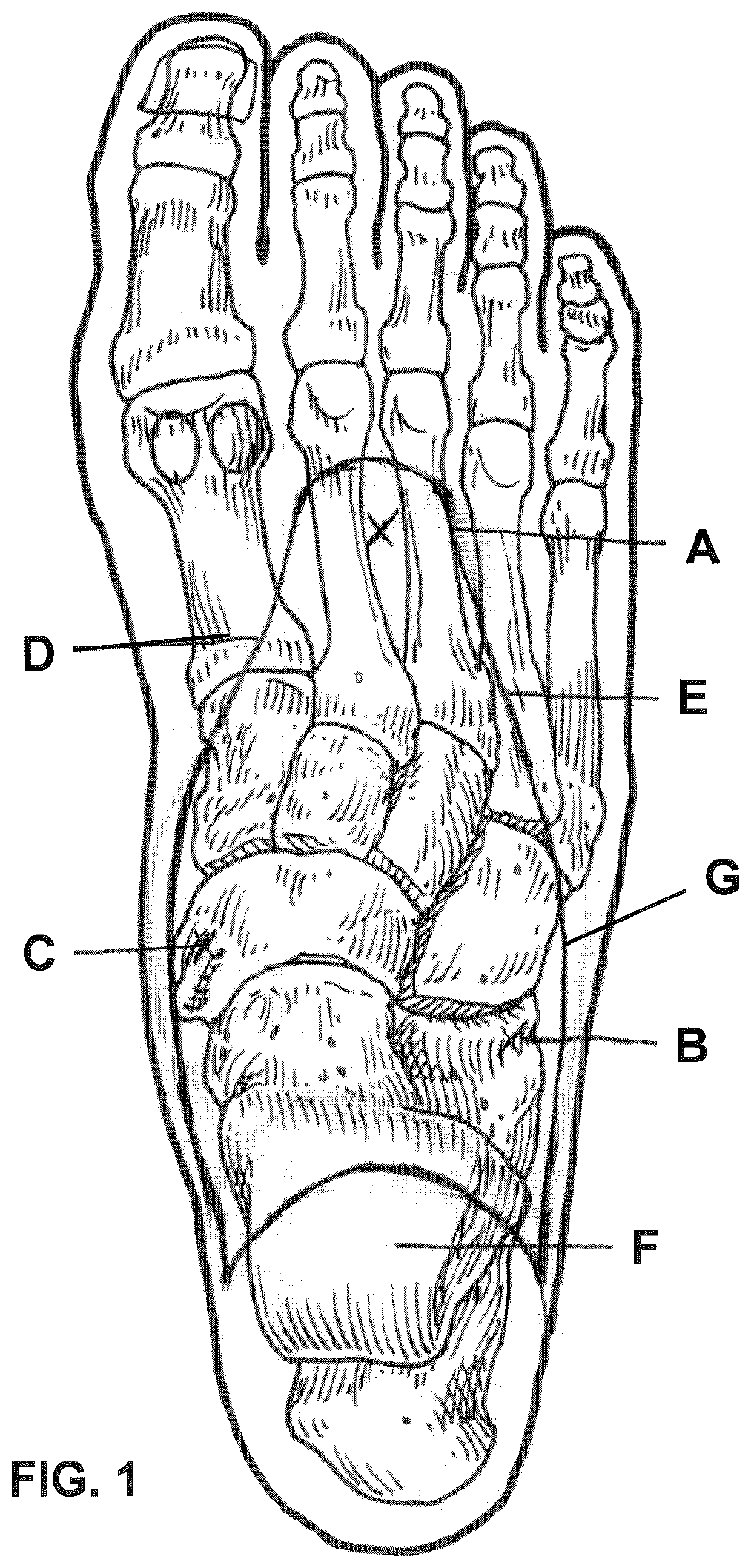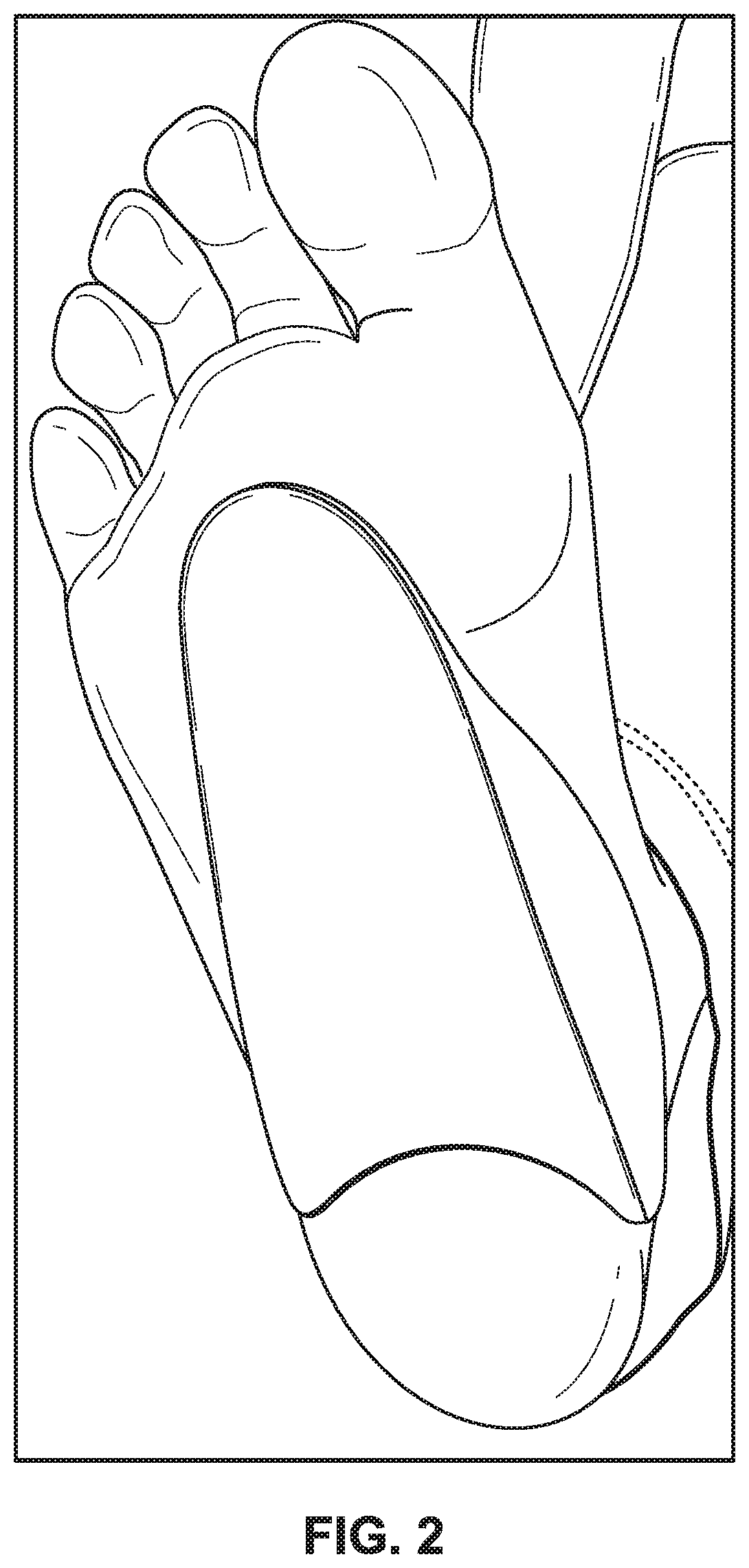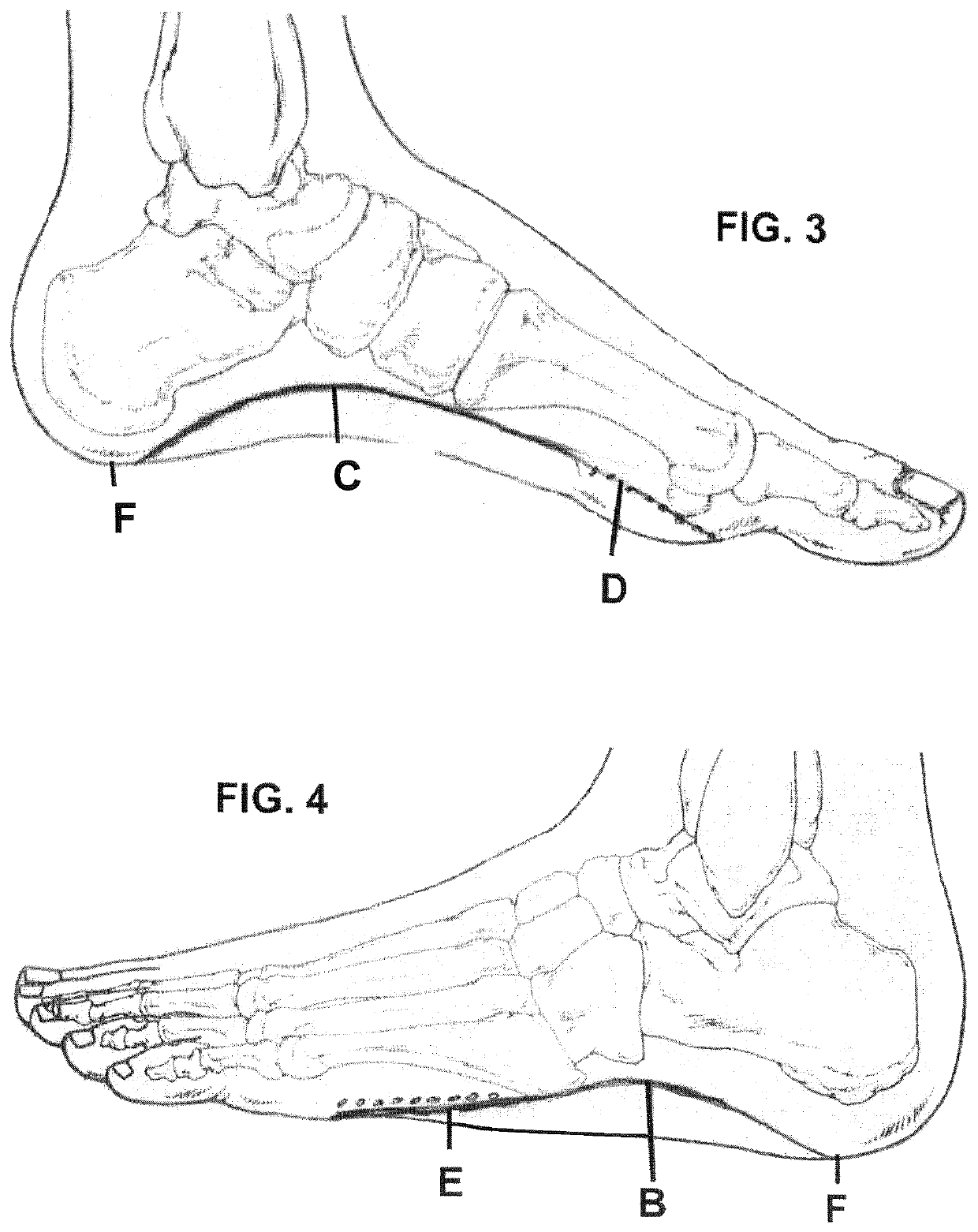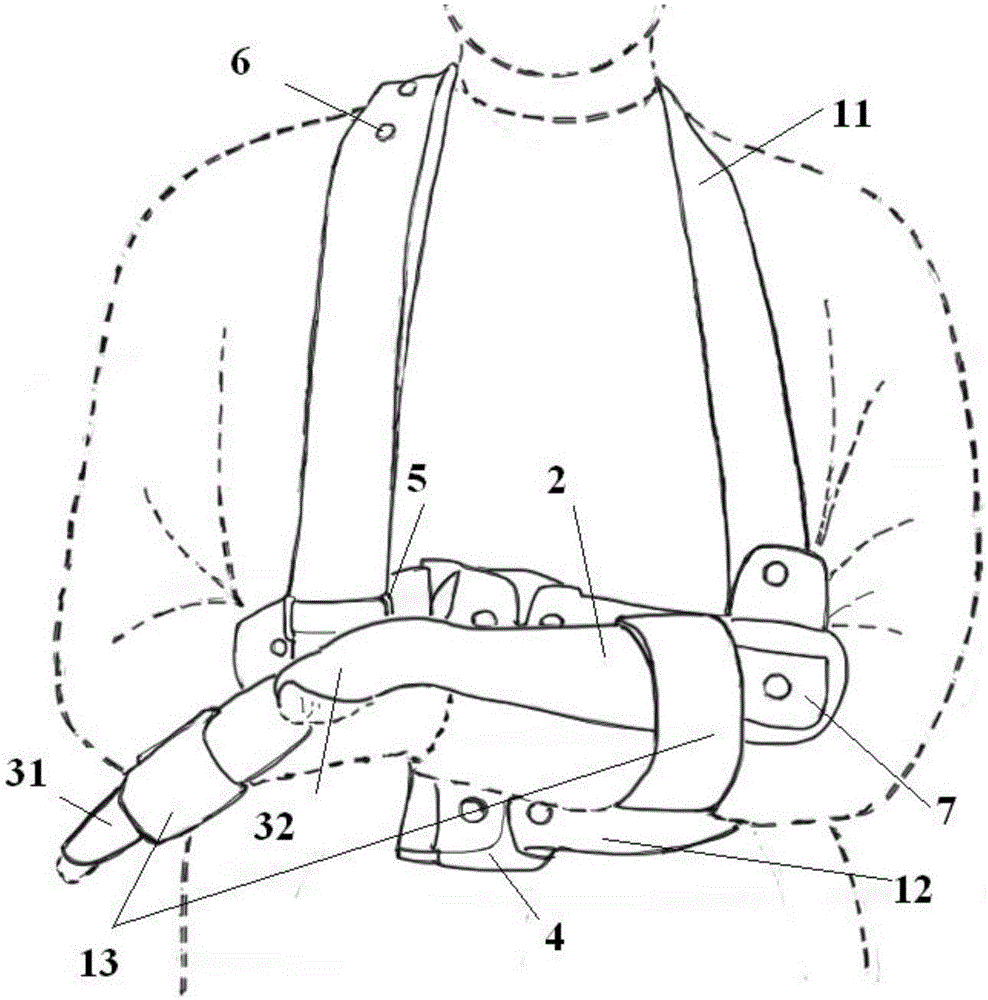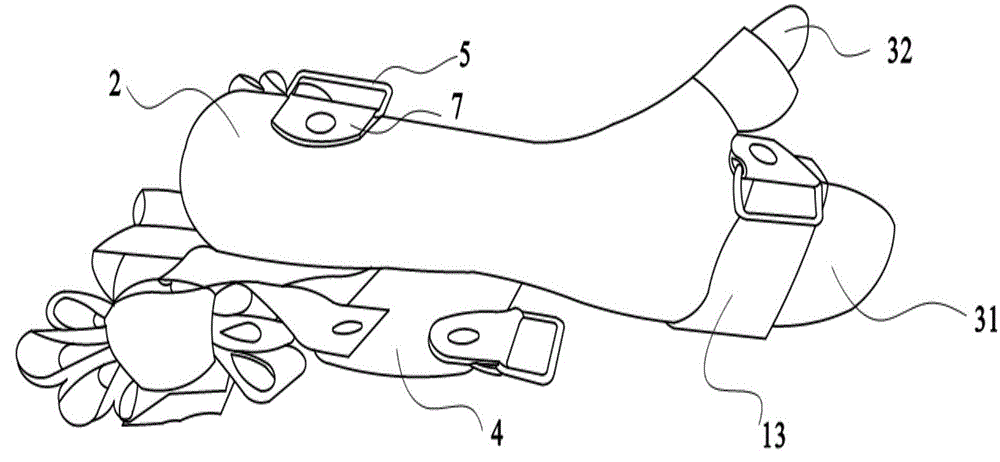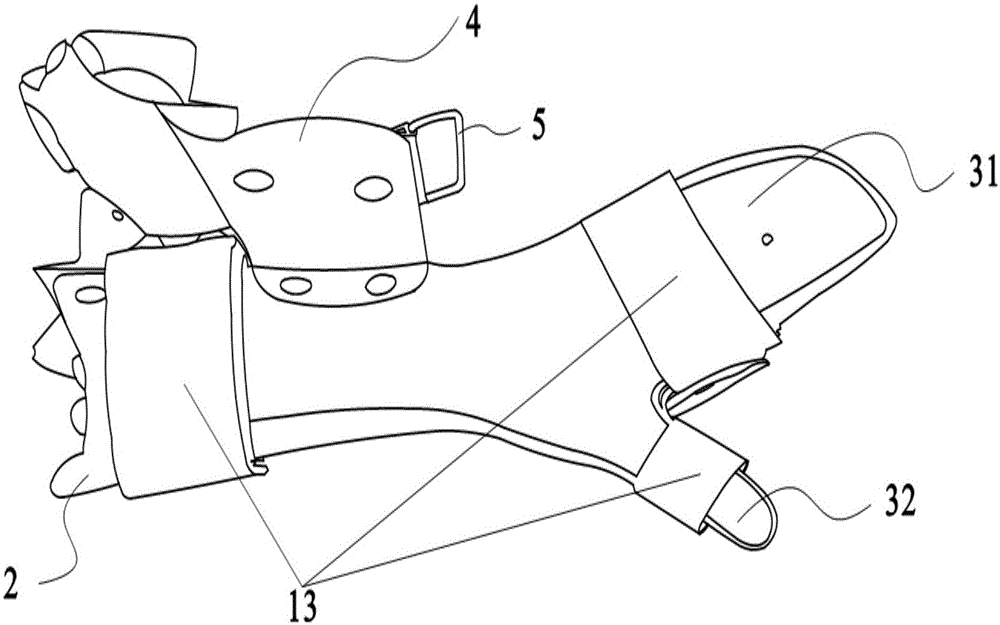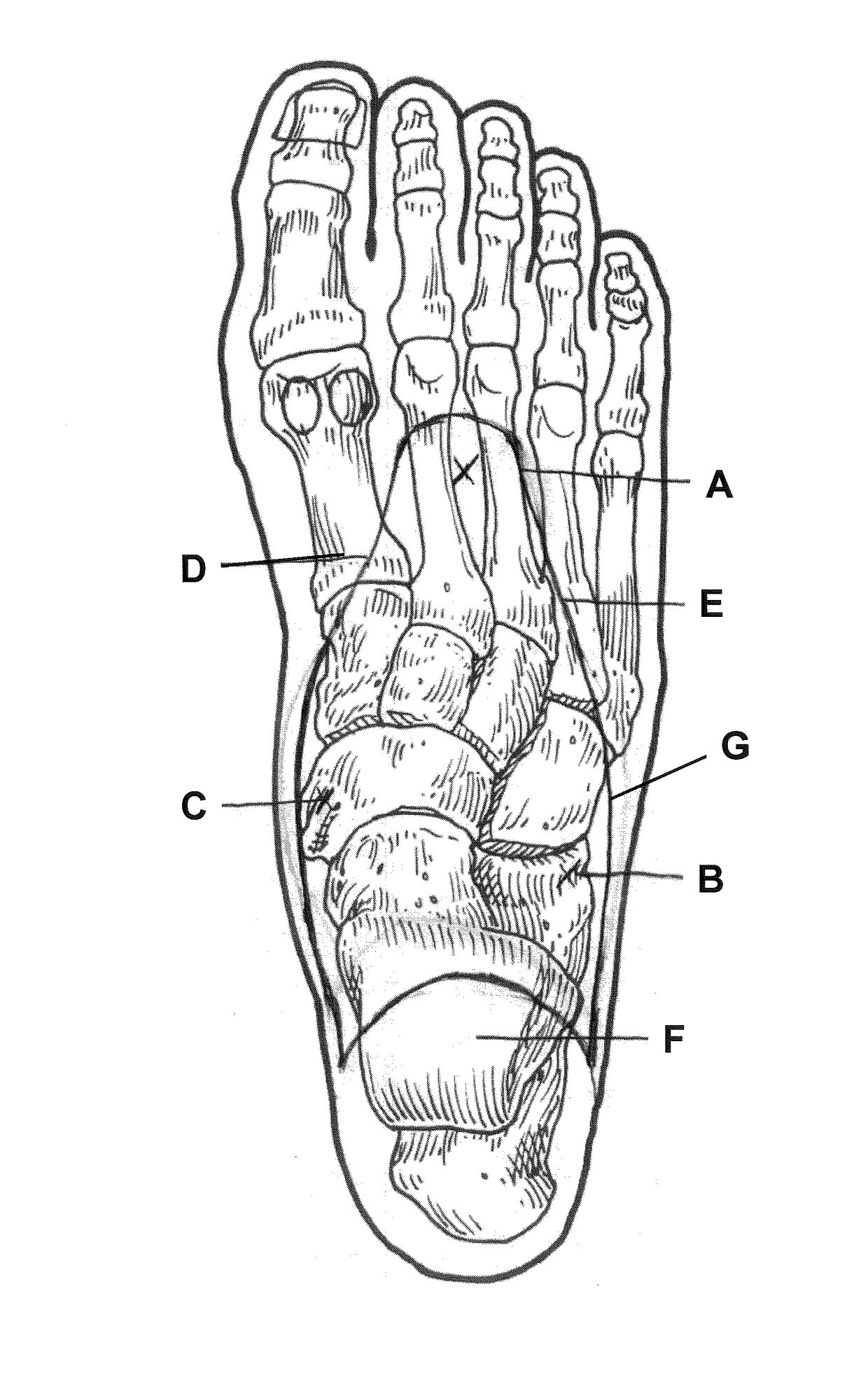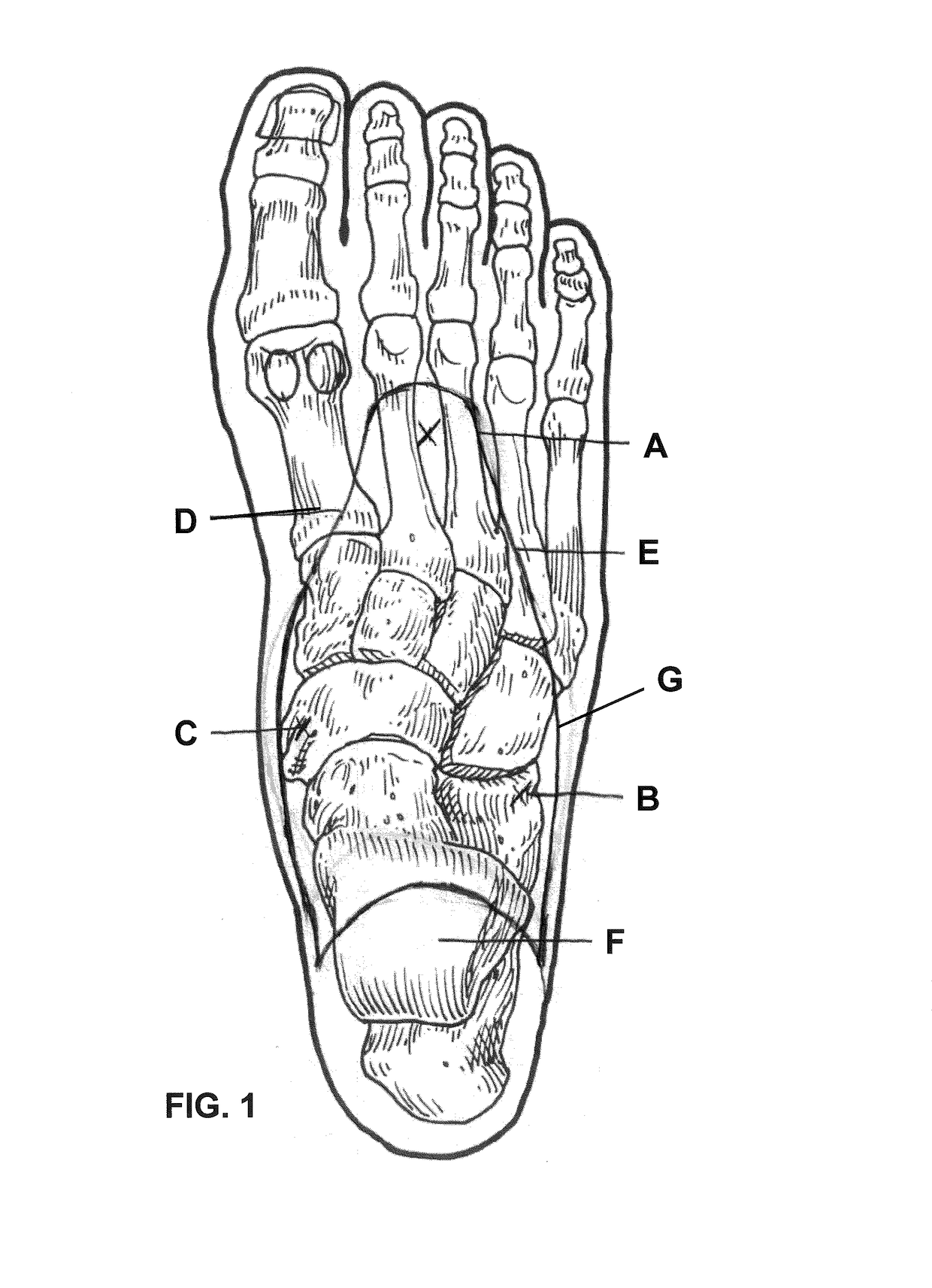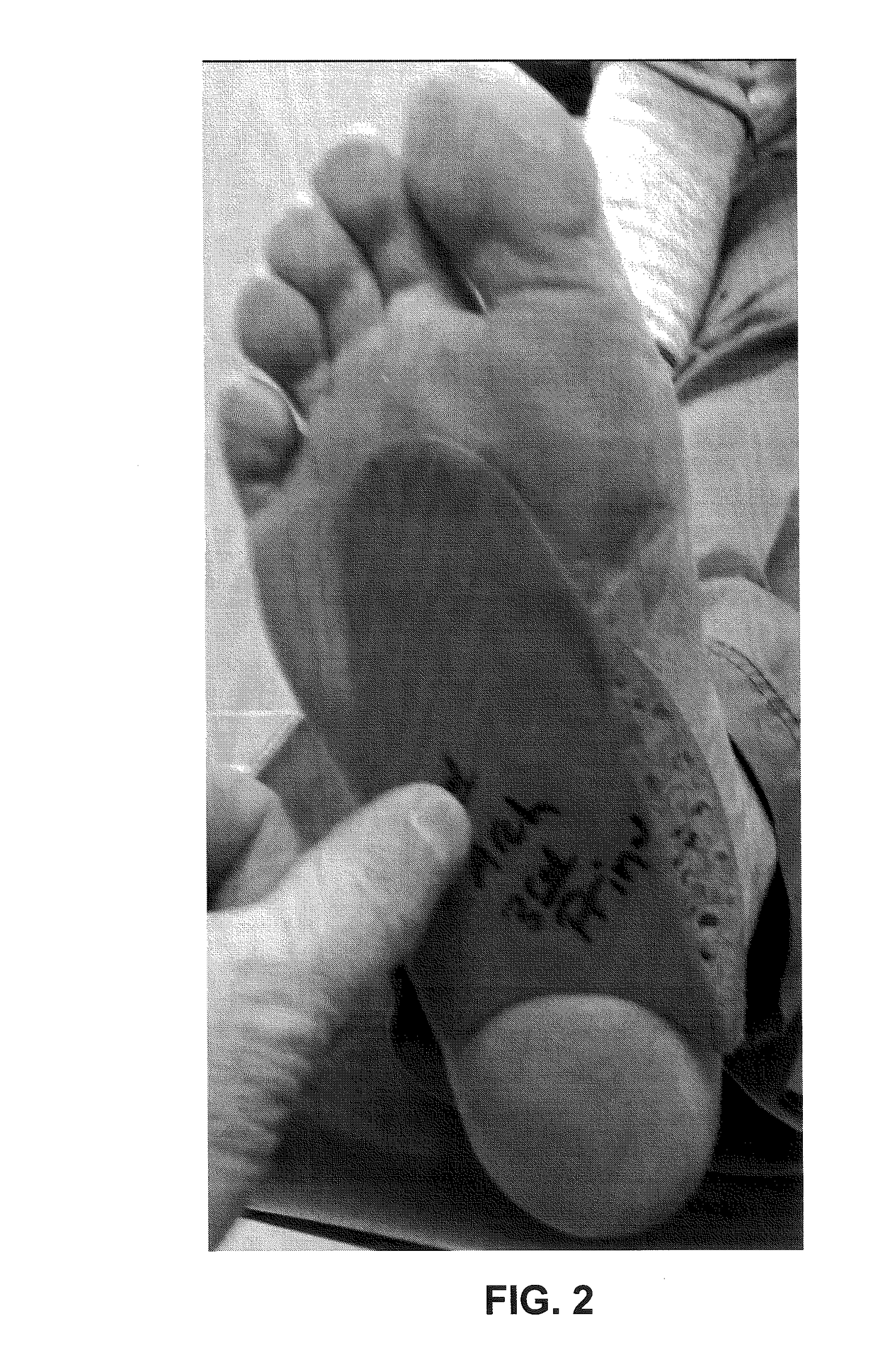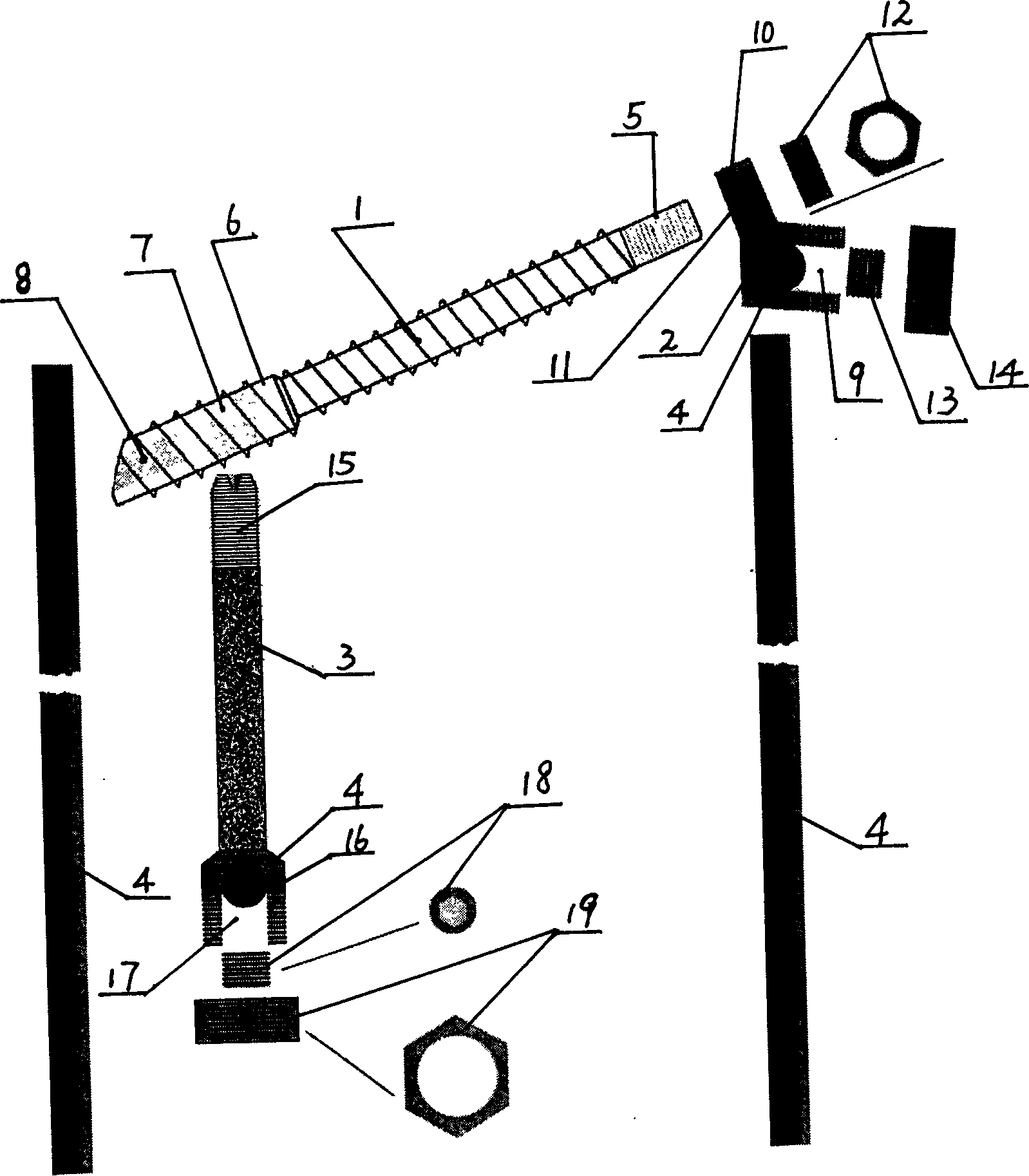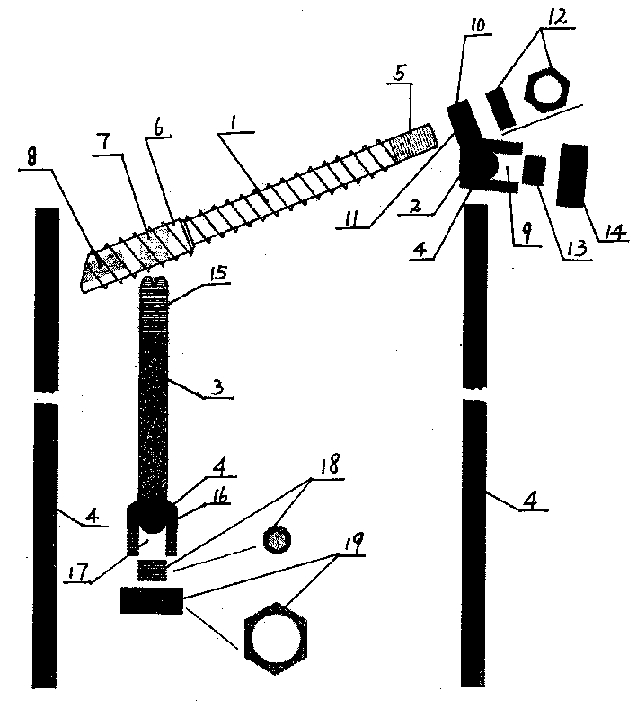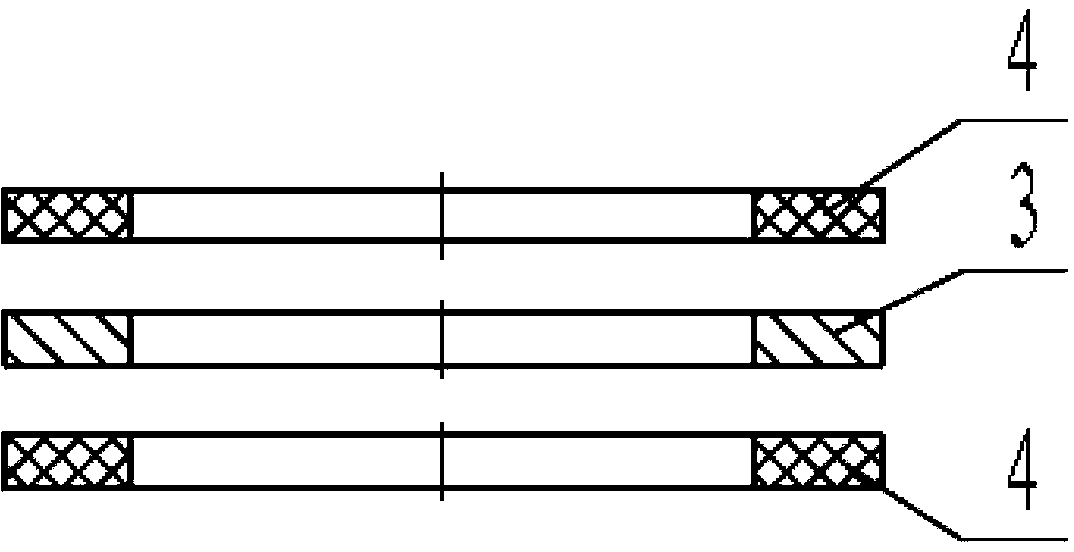Patents
Literature
47 results about "Orthopedic appliance" patented technology
Efficacy Topic
Property
Owner
Technical Advancement
Application Domain
Technology Topic
Technology Field Word
Patent Country/Region
Patent Type
Patent Status
Application Year
Inventor
Orthopedists, or orthopedic doctors, are either medical doctors (MDs) or doctors of osteopathy (DOs) who specialize in treating ……. Essential Information. Medical appliance technicians create medical and surgical appliances like braces, joints, supports and artificial limbs.
Polyaxial screw
ActiveUS7186255B2Easy to handleQuick connectionSuture equipmentsInternal osteosythesisSet screwSpherical shaped
A polyaxial screw is used to secure orthopedic appliances to bone, particularly the spine. The polyaxial screw has a shaft including a helical screw thread for securing the screw to bone. One end of the shaft has a reverse tapered head tapering toward and away from the shaft from an enlarged median. A spherical shaped swivel, having an opening smaller than the median, is snapped over the head to rotatably engage the shaft. A connector with a dome shaped cavity on one end and bifurcated tabs on the other is connected with the swivel and tightened in place with a set screw and guide ring. An appliance is held between the bifurcated tabs. The tabs are frangible to reduce the profile above the appliance.
Owner:INNOVATIVE SPINAL DESIGN +1
Systems and methods for fusing a sacroiliac joint and anchoring an orthopedic appliance
An orthopedic anchoring system for attaching a spinal stabilization system and concomitantly fusing a sacroiliac joint is disclosed that includes a delivery tool and an implant assembly for insertion into a joint space of a sacroiliac joint. The implant assembly may be secured using anchors inserted through bores within the implant body and into the underlying sacrum and / or ilium. The implant body may also include an attachment fitting reversibly attached to a guide to provide attachment fittings for elements of the spinal stabilization system. The implant assembly may be releasably coupled to an implant arm of the delivery tool such that the implant arm is substantially aligned with the insertion element of the implant assembly. An anchor arm used to insert the anchor may be coupled to the implant arm in a fixed and nonadjustable arrangement such that the anchor is generally aligned with a bore within the implant assembly.
Owner:JCBD
Distal targeting of locking screws in intramedullary nails
In a distal targeting system a hand-held location pad is integral with a guide section for a drill or similar surgical instrument, and has a plurality of magnetic field generators. A sensor, such as a wireless sensor, having a plurality of field transponders, is disposed in an orthopedic appliance, such as an intramedullary nail. The sensor is capable of detecting and discriminating the strength and direction of the different fields generated by the field generators. Control circuitry, preferably located in the location pad is responsive to a signal of the sensor, and determines the displacement and relative directions of an axis of the guide section, and a bore in the orthopedic appliance. A screen display and optional speaker in the location pad provide an operator-perceptible indication that enables the operator to adjust the position of the guide section so as to align its position and direction with the bore.
Owner:BIOSENSE
Systems and methods for fusing a sacroiliac joint and anchoring an orthopedic appliance
An orthopedic anchoring system for attaching a spinal stabilization system and concomitantly fusing a sacroiliac joint is disclosed that includes a delivery tool and an implant assembly for insertion into a joint space of a sacroiliac joint. The implant assembly may be secured using anchors inserted through bores within the implant body and into the underlying sacrum and / or ilium. The implant body may also include an attachment fitting reversibly attached to a guide to provide attachment fittings for elements of the spinal stabilization system. The implant assembly may be releasably coupled to an implant arm of the delivery tool such that the implant arm is substantially aligned with the insertion element of the implant assembly. An anchor arm used to insert the anchor may be coupled to the implant arm in a fixed and nonadjustable arrangement such that the anchor is generally aligned with a bore within the implant assembly.
Owner:JCBD
Systems and methods for fusing a sacroiliac joint and anchoring an orthopedic appliance
An orthopedic anchoring system for attaching a spinal stabilization system and concomitantly fusing a sacroiliac joint is disclosed that includes a delivery tool and an implant assembly for insertion into a joint space of a sacroiliac joint. The implant assembly may be secured using anchors inserted through bores within the implant body and into the underlying sacrum and / or ilium. The implant body may also include an attachment fitting reversibly attached to a guide to provide attachment fittings for elements of the spinal stabilization system. The implant assembly may be releasably coupled to an implant arm of the delivery tool such that the implant arm is substantially aligned with the insertion element of the implant assembly. An anchor arm used to insert the anchor may be coupled to the implant arm in a fixed and nonadjustable arrangement such that the anchor is generally aligned with a bore within the implant assembly.
Owner:JCBD
Ankle brace and support and method
InactiveUS6394971B1Less rigidEliminate useFeet bandagesNon-surgical orthopedic devicesPolyolefinEngineering
Disclosed is an ankle support which includes a low temperature, formable plastic, closed-cell foam sewn to a soft orthopedic appliance to provide the desired rigidity and conformability, and a method of making the same. The closed-cell foam is in a skeletal configuration comprising a relatively wide collar for encircling the leg of a wearer and supporting a plurality of relatively narrow elongated stiffeners depending therefrom substantially normal thereto. At least one of the stiffeners terminates in a J-shape. In producing the new brace, a polyolefin foam is laminated with nylon fabric on both of its surfaces. The laminated foam is then cut to desired blank shape. This blank is then sewn to the fabric of the soft brace, also in flat blank shape. The soft brace is then sewn into its sock configuration. The combined foam sheet and attached soft brace blanks in a sock configuration are then mounted upon a male die and subjected to low temperature heat and pressure forming. The molding step transforms the previously soft foam into a semi-rigid skeletal "shell" that extends around but does not substantially completely encase the ankle. The soft appliance provides the basic support, while the skeletal shell provides tailored localized flexible stiffening.
Owner:BSN MEDICAL INC
Orthopedic shoe appliance and method
An orthopedic appliance includes a slab configured to be placed underneath a big toe, forward of and not extending under a head of a first metatarsal, and wherein the slab has a predetermined height and is configured to deflect a proximal phalanx upwardly relative to the first metatarsal. A method for improving stability of a foot during ambulation includes placing an orthopedic appliance, having a predetermined height, under a big toe such that the orthopedic appliance is located forward of and does not extend under a head of a first metatarsal of the big toe; and deflecting a proximal phalanx upwardly relative to the first metatarsal.
Owner:CLUFFY LLC
Systems and methods for fusing a sacroiliac joint and anchoring an orthopedic appliance
An orthopedic anchoring system for attaching a spinal stabilization system and concomitantly fusing a sacroiliac joint is disclosed that includes a delivery tool and an implant assembly for insertion into a joint space of a sacroiliac joint. The implant assembly may be secured using anchors inserted through bores within the implant body and into the underlying sacrum and / or ilium. The implant body may also include an attachment fitting reversibly attached to a guide to provide attachment fittings for elements of the spinal stabilization system. The implant assembly may be releasably coupled to an implant arm of the delivery tool such that the implant arm is substantially aligned with the insertion element of the implant assembly. An anchor arm used to insert the anchor may be coupled to the implant arm in a fixed and nonadjustable arrangement such that the anchor is generally aligned with a bore within the implant assembly.
Owner:JCBD
Transducer mounting assembly
The invention relates to an apparatus for adjustably securing an ultrasonic transducer to an orthopedic appliance, having: (a) an optional adjustable clamp adapted to adjustably secure the apparatus to an element of an orthopedic appliance; (b) a transducer holder adapted to secure the transducer to the apparatus; (c) an adjustable connector adapted to adjustably connect the optional adjustable clamp to the transducer holder.
Owner:EXOGEN
Systems and methods for fusing a sacroiliac joint and anchoring an orthopedic appliance
An orthopedic anchoring system for attaching a spinal stabilization system and concomitantly fusing a sacroiliac joint is disclosed that includes a delivery tool and an implant assembly for insertion into a joint space of a sacroiliac joint. The implant assembly may be secured using anchors inserted through bores within the implant body and into the underlying sacrum and / or ilium. The implant body may also include an attachment fitting reversibly attached to a guide to provide attachment fittings for elements of the spinal stabilization system. The implant assembly may be releasably coupled to an implant arm of the delivery tool such that the implant arm is substantially aligned with the insertion element of the implant assembly. An anchor arm used to insert the anchor may be coupled to the implant arm in a fixed and nonadjustable arrangement such that the anchor is generally aligned with a bore within the implant assembly.
Owner:JCBD
Transducer mounting assembly
InactiveUS20050096548A1Precise positioningUltrasonic/sonic/infrasonic diagnosticsUltrasound therapyUltrasonic sensorTransducer
Owner:EXOGEN
Digital preparation method for orofacial cleft external nose orthopedic appliance
InactiveCN103006364AGuaranteed manufacturing accuracyEnsure scientific and controllableMedical scienceImage data processingPhysical medicine and rehabilitationIndividualized treatment
The invention belongs to an orofacial cleft external nose non-traumatic orthopedic treatment method in the medical field, and particularly relates to a digital preparation method for an orofacial cleft external nose deformity orthopedic appliance. The method is characterized by at least comprising the following steps: 1), acquiring three-dimensional data of the face of an orofacial cleft patient; 2) reconstructing a digital model for the face of the orofacial cleft patient in a three-dimensional manner; 3), constructing a digital model for the external nose orthopedic appliance according to a three-dimensional face model, wherein the digital model comprises a nose support C, a bridge body B and a base support A; 4), constructing solid models for the nose support C, the bridge B and the base support A through a rapid proto-typing technology according to the nose support, the bridge body and the base support made through the digital module; and 5) clinically applying the solid model of the external nose orthopedic appliance. According to the method, an existing pure manual operation is changed into computer controlled automatic processing, so that the manufacture precision of the appliance is guaranteed. Therefore, the standard and rapid individualized treatment method is provided for the orofacial cleft patient, and the clinical popularization and application of the technology can be promoted.
Owner:FOURTH MILITARY MEDICAL UNIVERSITY
Orthopedic adjustment device
An exemplary orthopedic adjustment device includes an orthopedic appliance, an adjustment unit module and a pressure control module. The appliance is configured for supporting a human spine. The adjustment unit module includes adjustment units. Each of the adjustment units includes a chamber, a pressure sensor and a pump. The pressure sensor and the pump are arranged in the chamber. Each of the pressure sensors is configured for detecting a pressure of each chamber corresponding thereto. Each of the pumps is configured for adjusting the pressure of each chamber corresponding thereto. The pressure control module is configured for receiving pressure signals from the pressure sensors of the chambers and providing pressure adjusting signals to the pumps to adjust the pressures of the chambers.
Owner:HON HAI PRECISION IND CO LTD
An orthopedic appliance and method to reduce anterior dislocation of shoulder and to provide post reduction immobilization
InactiveUS20070016121A1Prevent unfavorable occurrenceRisk minimizationRestraining devicesNon-surgical orthopedic devicesAxillaCuff
The disclosure is of an orthopedic appliance designed to facilitate the reduction of anterior dislocation of person's shoulder by utilizing the principle of a third class lever. After the elbow is immobilized against chest wall with a chest belt, the reduction is achieved by inflating a pouch tightly secured with straps under the involved axilla. Once the reduction is accomplished, immobilization of the injured shoulder is provided by transforming the chest belt into a waist belt to which an elbow cuff and a sling are anchored. This injury-specific immobilization provides for limited mobility and usage of the forearm, wrist, and hand.
Owner:KAMINSKI MAREK +1
Orthopedic shoe appliance and method
An orthopedic appliance includes a slab configured to be placed underneath a big toe, forward of and not extending under a head of a first metatarsal, and wherein the slab has a predetermined height and is configured to deflect a proximal phalanx upwardly relative to the first metatarsal. A method for improving stability of a foot during ambulation includes placing an orthopedic appliance, having a predetermined height, under a big toe such that the orthopedic appliance is located forward of and does not extend under a head of a first metatarsal of the big toe; and deflecting a proximal phalanx upwardly relative to the first metatarsal.
Owner:CLUFFY LLC
Tooth orthopedic appliance
InactiveUS20070224568A1Increase frictionIncrease strong bonding effectArch wiresBracketsOrthotic deviceMechanical engineering
A tooth orthopedic appliance has a bracket, a plurality of middle supporting portions and a plurality of side wing portions. The bracket is connected to a surface of the tooth, wherein a base is provided on a middle part of the bracket. A main wire trench is utilized to locate a correcting wire. The plurality of middle supporting portions are located respectively at a middle part of two protruding portions of the bracket, wherein the middle supporting portions are parallel to the bracket and perpendicular to the main wire trench. A wire holding slot is formed in between the bracket and every middle supporting portion for hooking a holding wire. A notch is defined by sidewalls of the middle supporting portions and the side wing portions in order to locate the holding wire for locking a top portion of the correcting wire such that an unfastened condition is formed.
Owner:LIN FU YI
Orthopedic appliance for temporomandibular joint
An orthopedic appliance for a temporomandibular joint, includes: an upper teeth supporter and a lower teeth supporter, each of which includes a front arch portion corresponding to front teeth, and a pair of rear legs extended from the front arch portion, facing with each other and corresponding to a molar region; at least one set of upper and lower pivots which are respectively coupled to the upper teeth supporter and the lower teeth supporter and rotatable in at least one direction among forward, backward, leftward and rightward directions; and a connection member which connects the upper pivot and the lower pivot and adjusts a space between the upper pivot and the lower pivot. Thus, it is easy to adjust relative movement in a horizontal direction and height between the upper and lower teeth supporters.
Owner:HI FEEL WORLD CO LTD
Telescopic funnel chest correction device and preparation method thereof
ActiveCN111759561AImprove flexibilityLarge deformationMedical scienceOrthotic deviceRange of movement
The invention relates to a medical orthopedic appliance, in particular to a telescopic funnel chest correction device and a preparation method thereof. The correction device comprises a shell and a sucker which are connected in a sealed manner; and a folding structure is arranged at the local position of the sucker side wall and used for increasing the deformation amount of the sucker side wall atthe local position and enlarging the telescopic movement range of the sucker side wall at the local position. According to the correction device, the folding structure is arranged at the local position of the side wall of the suction cup, and the folding structure has high telescopic performance, so that the correction device can generate proper deformation quantity at the concave position corresponding to the thorax, the correction effect is optimized, and the wearing comfort of the correction device is improved.
Owner:广州易康医疗科技有限公司
Orthopedic adjustment device
An exemplary orthopedic adjustment device includes an orthopedic appliance, an adjustment unit module and a pressure control module. The appliance is configured for supporting a human spine. The adjustment unit module includes adjustment units. Each of the adjustment units includes a chamber, a pressure sensor and a pump. The pressure sensor and the pump are arranged in the chamber. Each of the pressure sensors is configured for detecting a pressure of each chamber corresponding thereto. Each of the pumps is configured for adjusting the pressure of each chamber corresponding thereto. The pressure control module is configured for receiving pressure signals from the pressure sensors of the chambers and providing pressure adjusting signals to the pumps to adjust the pressures of the chambers.
Owner:HON HAI PRECISION IND CO LTD
Interchangeable orthopedic footwear
An article of footwear includes an outer sole having a bottom walking surface and an opposed top surface, an upper member and a zipper member connected to the outer sole and to the upper member for releasably securing the upper member to the outer sole. An orthopedic appliance is received within a cavity that is disposed within the top surface of the outer sole.
Owner:THRELKELD TRINA ANN
Adjustable oral cavity orthopedic appliance
Owner:SHANGHAI NINTH PEOPLES HOSPITAL AFFILIATED TO SHANGHAI JIAO TONG UNIV SCHOOL OF MEDICINE
Adjustable oral cavity orthopedic appliance
The invention relates to an adjustable nonnasality appliance, comprising a movable rod (1), a sleeve (2), an adjusting nut (3) and an adjusting screw (4); the sleeve movably passes through the axial perforation (11) of the movable rod (1); furthermore, mutual position limit of the sleeve (2) and the axial perforation (11) is carried out by the external convex shoulder (21) at the internal end of the sleeve (2) and the internal shoulder blade (111) at the end of the perforation (11); the adjusting nut (3) is fixed at the external end of the sleeve (2); the adjusting screw (4) is inserted into the sleeve (2) and connected with the adjusting nut by screw thread; the external end of the movable rod (1) is provided with a first connecting head (12); the external end of the adjusting screw (4) is provided with a second connecting head (41). When in use, the connecting heads of the movable rod and the adjusting screw are respectively fixed with tooth sockets which are sheathed on the upper teeth and the lower teeth; the appliance of the invention supports the upper teeth and the lower teeth, ensures the nonnasality to have a certain opening angle, adjusts the length of the adjusting screw extending into the sleeve by adjusting the relative rotation of the adjusting screw and the sleeve, and realizes the adjustment on the minimum opening angle of the patient.
Owner:SHANGHAI NINTH PEOPLES HOSPITAL SHANGHAI JIAO TONG UNIV SCHOOL OF MEDICINE
Hammer finger orthopedic appliance
PendingCN107212956AImprove rehabilitation effectImprove reliabilityToothed gearingsMedical scienceEngineeringOrthotic device
The invention relates to a hammer finger orthopedic appliance which comprises a finger tip rest and a near-end finger rest. The finger tip rest comprises a front finger tip rest protector and a first hinge portion positioned at the tail end, the near-end finger rest comprises a front second hinge portion and a middle section rest protector positioned at the tail end, the first hinge portion and the second hinge portion are connected in a hinged manner and rotate along the extending and retracting direction of fingers, the first hinge portion is provided with an angle adjusting mechanism for driving the finger tip rest to rotate around a hinge point, and the angle adjusting mechanism is provided with an operating end and a driving end and is a unidirectional locking angle adjusting mechanism with the operating end unidirectionally transmitted to the driving end. The finger tip rest and the near-end finger rest are hinged in design and matched with the angle adjusting mechanism, the hammer finger orthopedic appliance more effectively adapt to hammer finger orthopedics of different people, and rehabilitation effects of patients are improved.
Owner:THE SECOND HOSPITAL AFFILIATED TO WENZHOU MEDICAL COLLEGE
Heel suspension orthopedic appliance
The invention relates to the technical field of nursing consumable items, and discloses a heel suspension orthopedic appliance which comprises a suspension sponge, a sole pad, an ankle fixing band and an elastic connecting portion. A groove is formed in the suspension sponge, the ankle fixing band is connected with the sole pad by the elastic connecting portion, the heel of a patient is suspended in the groove of the suspension sponge when about to be subjected to orthopedic treatment, the ankle fixing band is bound at the ankle of the patient, and the sole pad is fixed to the sole of the patient. The heel suspension orthopedic appliance has the advantages that the purpose of preventing foot drop and pressure sore at the heel and the ankle of the long-term bedridden critical patient can be achieved, and resource consumption can be reduced; the heel suspension orthopedic appliance is simple in structure, recovery of functions of the foot of the patient can be promoted, and the life quality of the patient can be improved.
Owner:NANFANG HOSPITAL OF SOUTHERN MEDICAL UNIV
Orthopedic shoe appliance
An orthopedic shoe appliance includes a pad for providing support for midfoot arches, the second metatarsal, and the third metatarsal of a foot, wherein the pad does not provide substantial support under a heel of the foot or under the first metatarsal, the fourth metatarsal, and the fifth metatarsal. A method for manufacturing an orthopedic appliance includes obtaining a pad; and shaping the pad to provide support for midfoot arches, the second metatarsal, and the third metatarsal of a foot, but not provide substantial support under a heel of the foot or under the first metatarsal, the fourth metatarsal, and the fifth metatarsal.
Owner:CLUFFY LLC
Pronated deformity orthopedic appliance for upper limbs
InactiveCN105055066AExpand the scope of activitiesRelieve muscle tensionMedical scienceKnee orthosisUpper limb
The invention belongs to the field of medical apparatus and instruments, and particularly discloses a pronated deformity orthopedic appliance for upper limbs. The pronated deformity orthopedic appliance for the upper limbs comprises a belt, a forearm orthopedic sleeve, a hand orthopedic sleeve and an elbow connecting piece. The belt is made of elastic fibers; the belt made of the elastic fibers comprises a waist elastic belt, a shoulder elastic belt and fixing elastic belts, the elbow connecting piece which is used for fixing the forearm orthopedic sleeve and the hand orthopedic sleeve is positioned in the waist elastic belt; one end of the shoulder elastic belt is fixed onto the forearm orthopedic sleeve, and the other end of the shoulder elastic belt is fixed onto the waist elastic belt. The pronated deformity orthopedic appliance has the advantages that the belt made of the elastic fibers is connected with the forearm orthopedic sleeve and the hand orthopedic sleeve, so that the upper limbs of patients can be kept at pronated posterior positions of the chests of the patients, and deformity of the upper limbs of the patients can be effectively improved; the pronated deformity orthopedic appliance is easy to use, convenient to put on and take off and free of interference on daily life, and only has few control joints.
Owner:CHILDRENS HOSPITAL OF CHONGQING MEDICAL UNIV
Orthopedic shoe appliance
An orthopedic shoe appliance includes a pad for providing support for midfoot arches, the second metatarsal, and the third metatarsal of a foot, wherein the pad does not provide substantial support under a heel of the foot or under the first metatarsal, the fourth metatarsal, and the fifth metatarsal. A method for manufacturing an orthopedic appliance includes obtaining a pad; and shaping the pad to provide support for midfoot arches, the second metatarsal, and the third metatarsal of a foot, but not provide substantial support under a heel of the foot or under the first metatarsal, the fourth metatarsal, and the fifth metatarsal.
Owner:CLUFFY LLC
Front and rear combined scoliosis correcting system through pedicle of vertebral arch
The scoliosis treating inner fixing orthopedic appliance consists of bolt in pedicle of vertebral arch, connecting buckle, bolt in centrum and orthopedic rod. The bolt in pedicle of vertebral arch is in bone screw structure and has mechanical thread head and expanded bylinder tail with screw hole in some angle to the cylinder axis, dpositioing hole at the end face and U-shaped groove in the middle part to match the orthopedic rod. The bolt in centrum is a straight rod with thread head and expanded back end cyliner with U-shaped groove to match the connecting buckle.
Owner:NANJING GENERAL HOSPITAL NANJING MILLITARY COMMAND P L A
Structure of eyelet installation hole in orthopedic appliance of low temperature thermoplastic plate
ActiveCN102784022BInhibit sheddingSuitable for factory productionMedical scienceThermoplasticEngineering
The invention discloses a structure of an eyelet installation hole in an orthopedic appliance of a low temperature thermoplastic plate. The structure comprises an installing hole (2) arranged in an orthopedic appliance body (1), and is characterized in that a hard polymer plate (3) with softening temperature being higher than that of the low temperature thermoplastic plate, is adhered or in heat seal in the middle of the orthopedic appliance body (1) on the periphery of the installing hole (2); an area of the hard polymer plate (3) is slightly larger than an area of a cap of an eyelet; the thickness of the hard polymer plate (3) is 1 / 3-3 / 5 of the thickness of the orthopedic appliance body (1); and the installation hole (2) penetrates through the hard polymer plate (3) and the orthopedic appliance body (1) on the upper part and the lower part of the hard polymer plate (3). According to the orthopedic appliance of the low temperature thermoplastic plate, which adopts the structure, the eyelet installation hole cannot be deformed severely in a moulding stretching process, the eyelet can be prevented from dropping or shaking, and the structure is applicable to industrialized production.
Owner:广州人福医疗设备有限公司
Features
- R&D
- Intellectual Property
- Life Sciences
- Materials
- Tech Scout
Why Patsnap Eureka
- Unparalleled Data Quality
- Higher Quality Content
- 60% Fewer Hallucinations
Social media
Patsnap Eureka Blog
Learn More Browse by: Latest US Patents, China's latest patents, Technical Efficacy Thesaurus, Application Domain, Technology Topic, Popular Technical Reports.
© 2025 PatSnap. All rights reserved.Legal|Privacy policy|Modern Slavery Act Transparency Statement|Sitemap|About US| Contact US: help@patsnap.com
